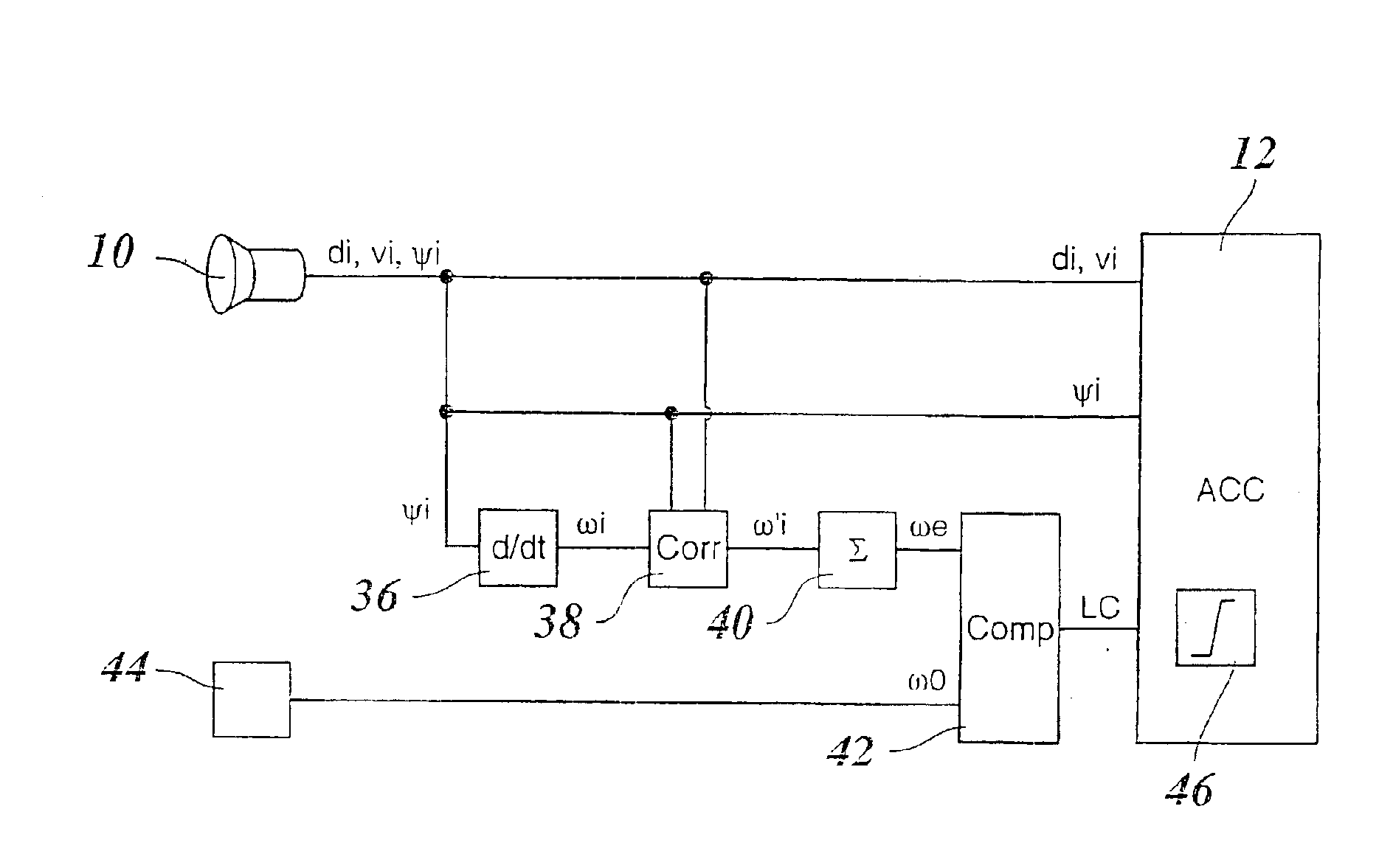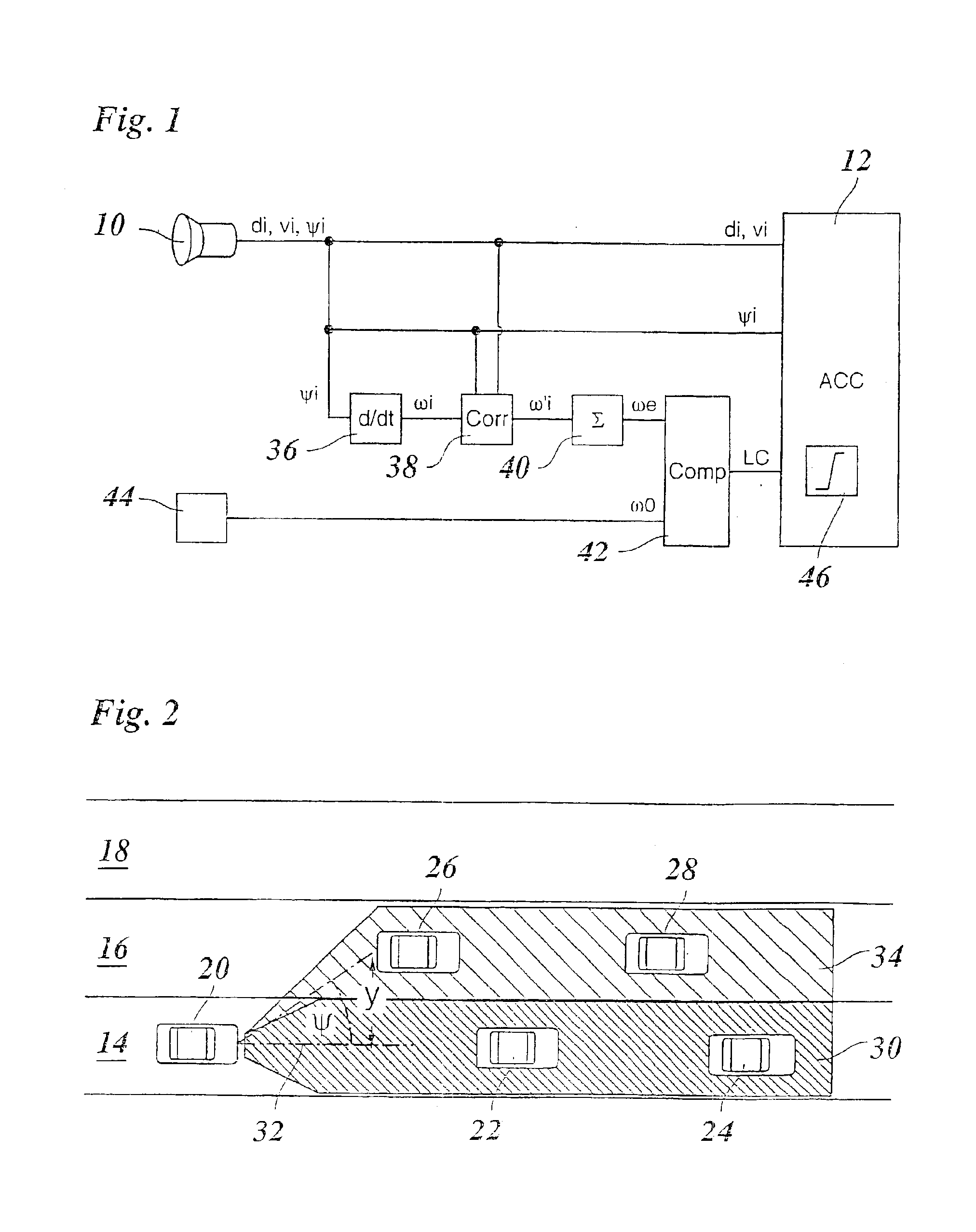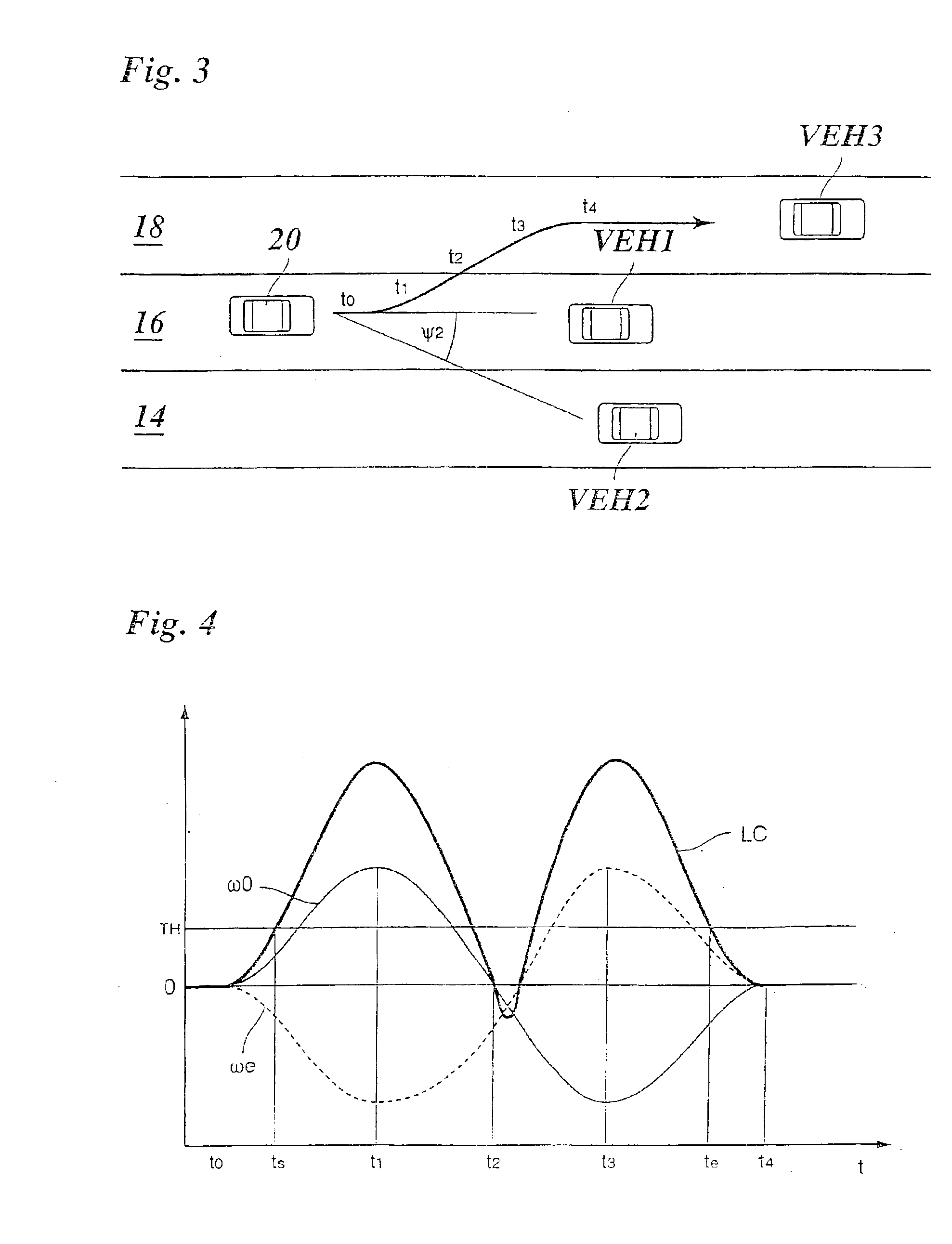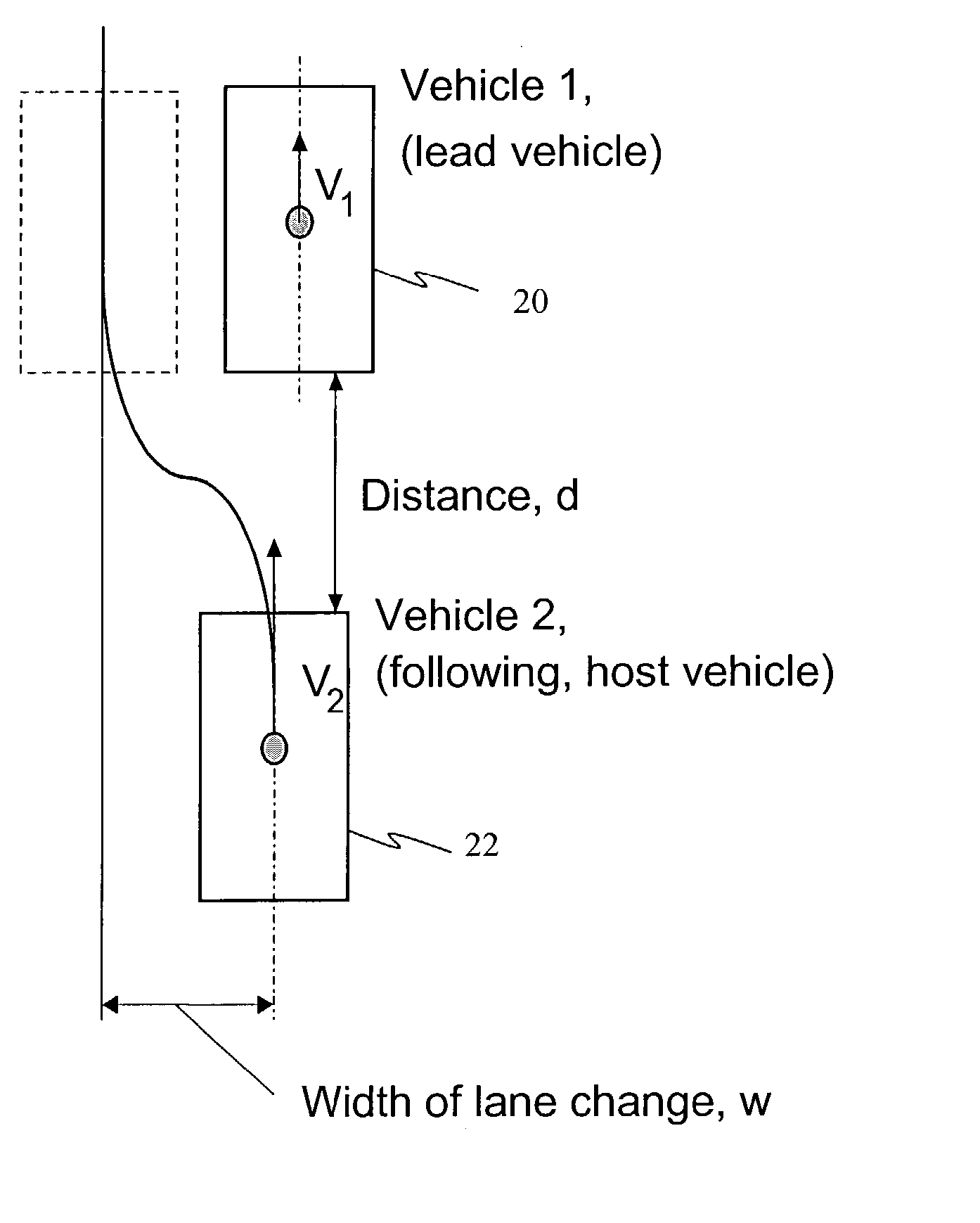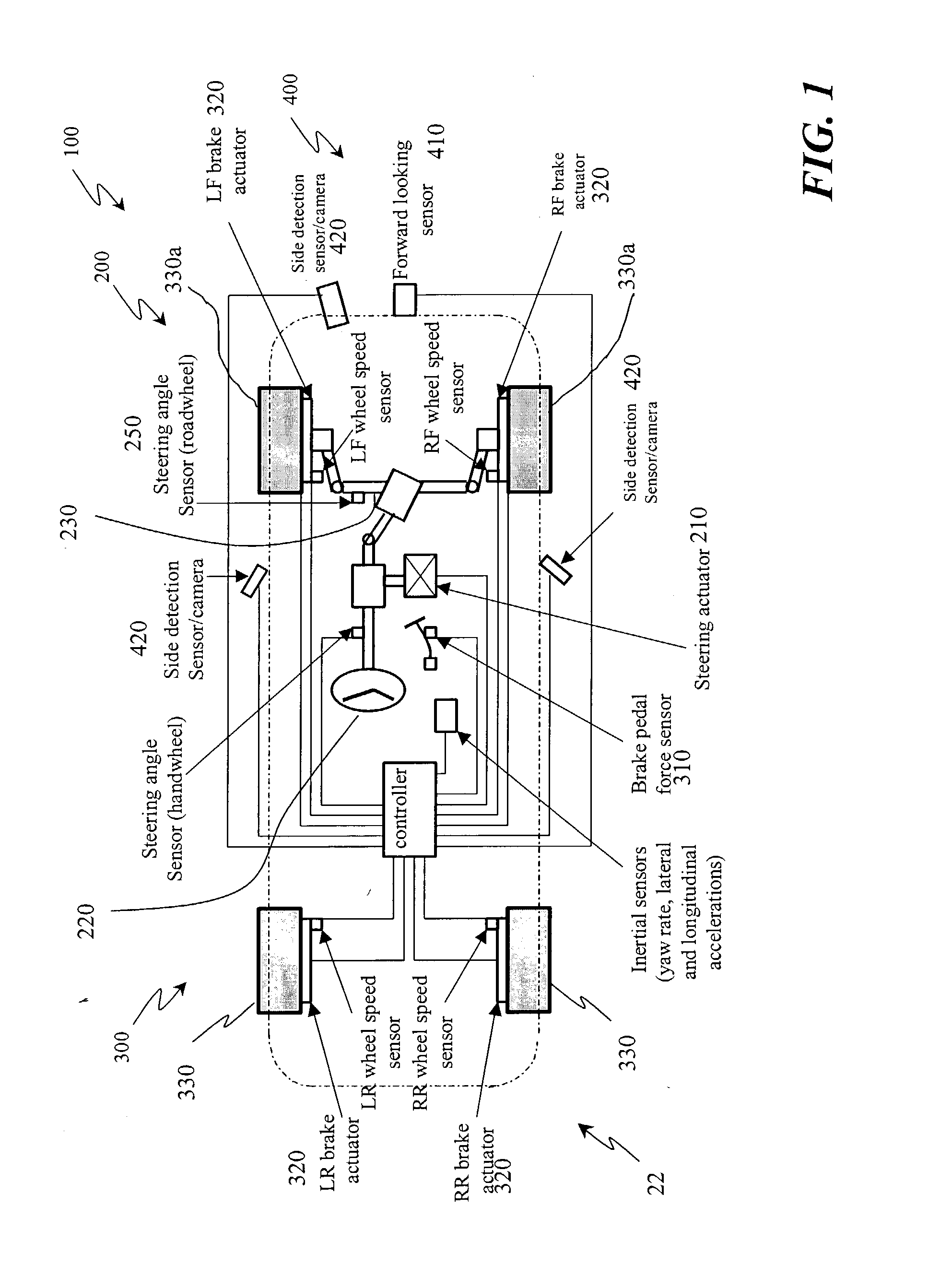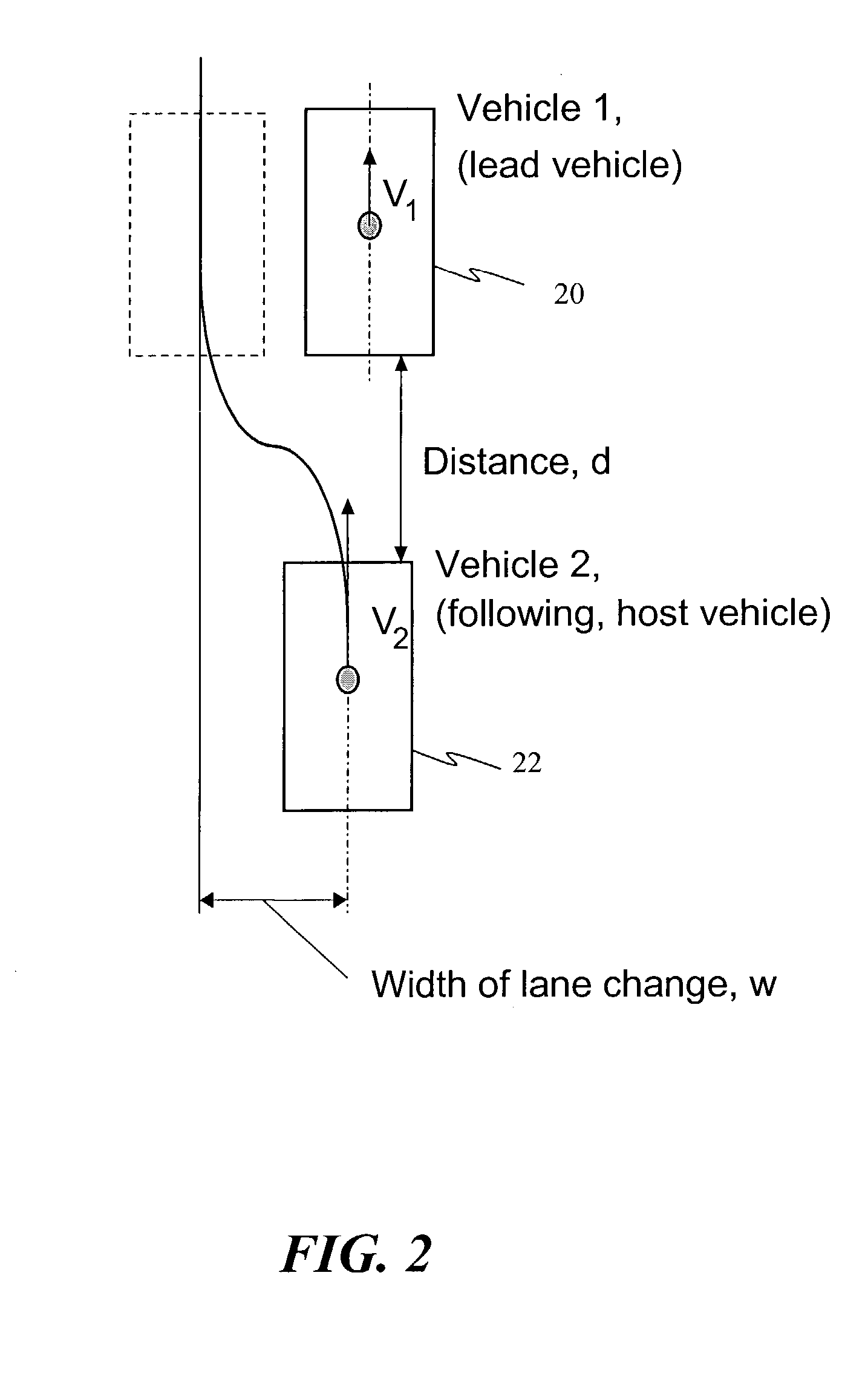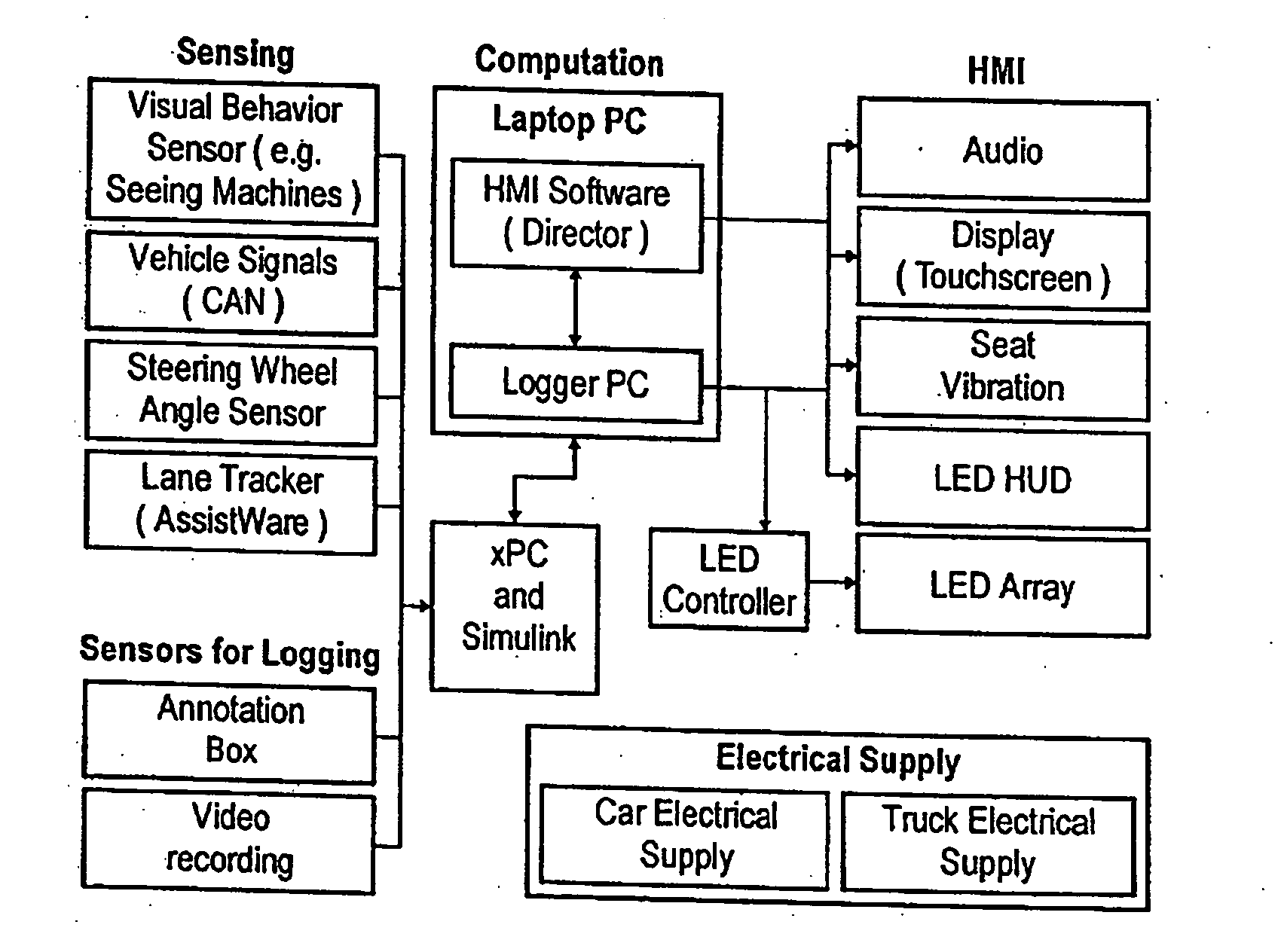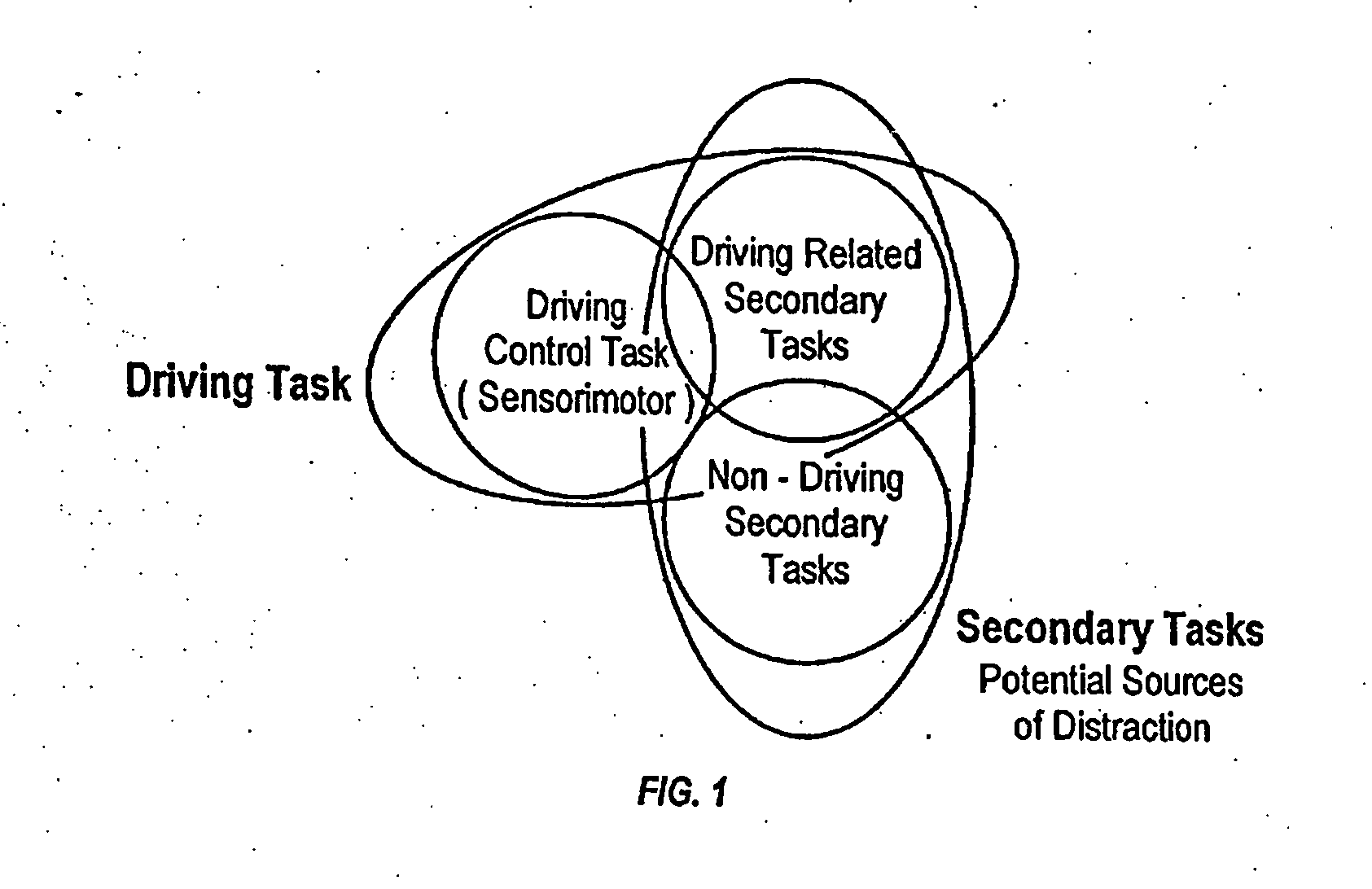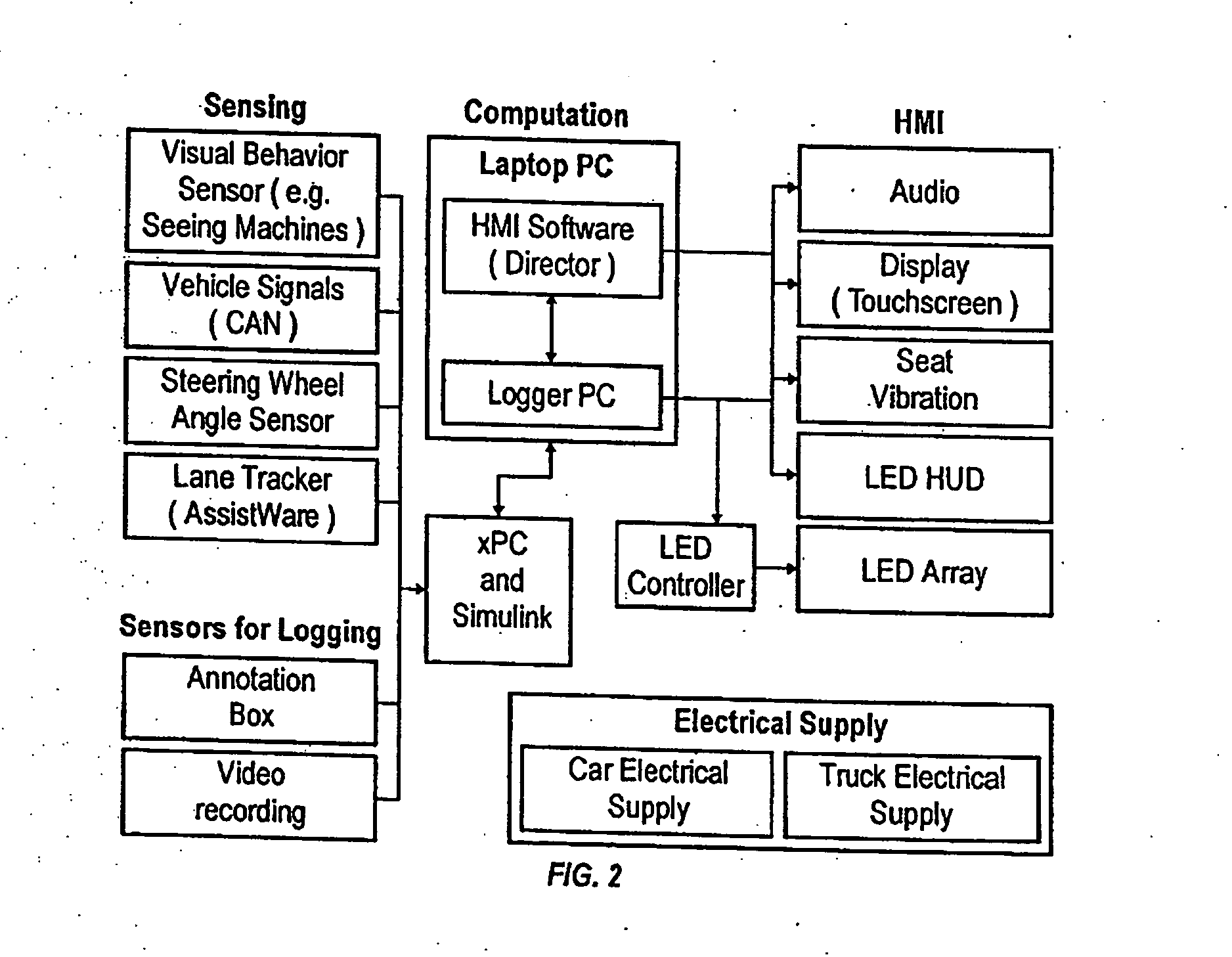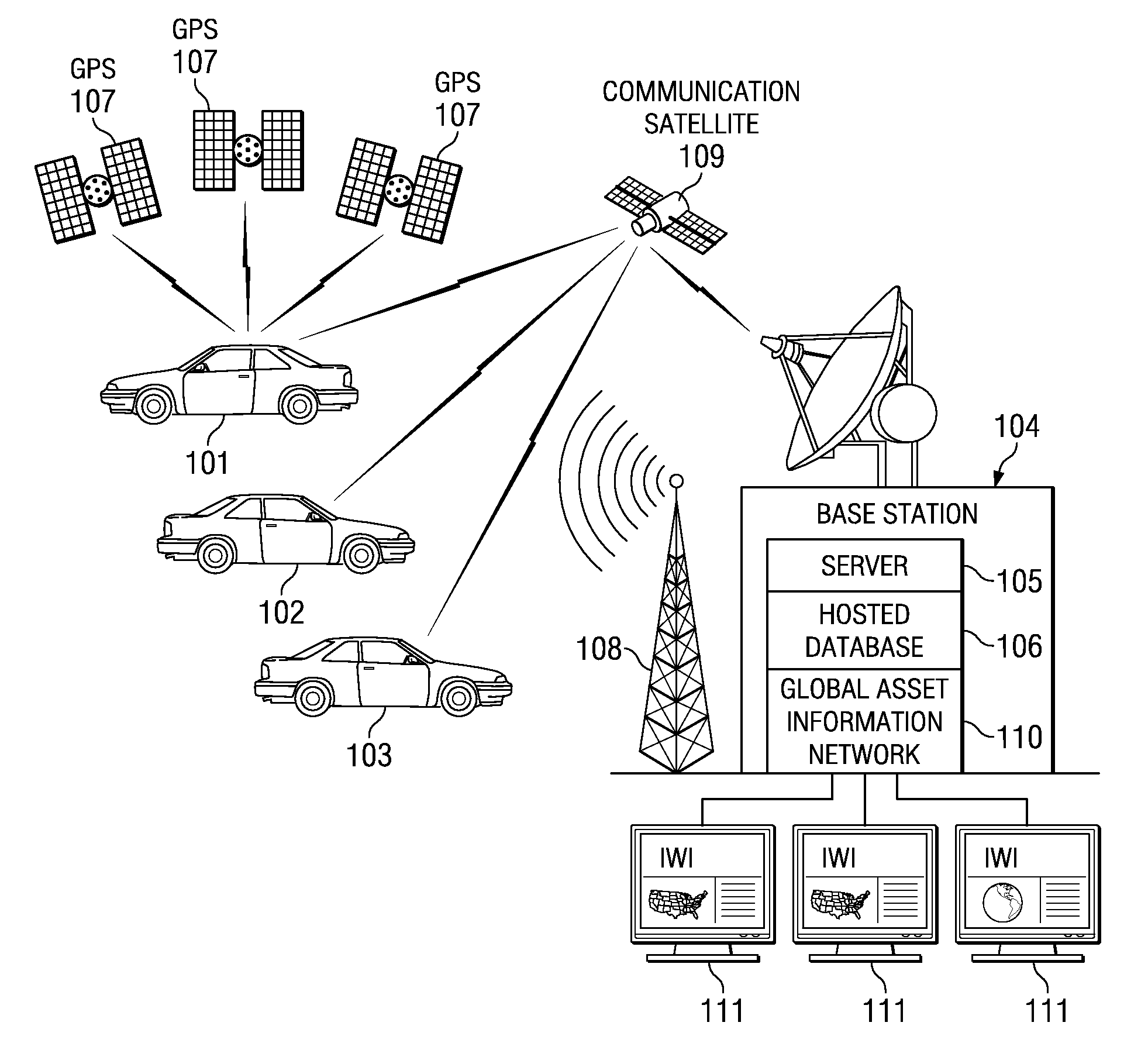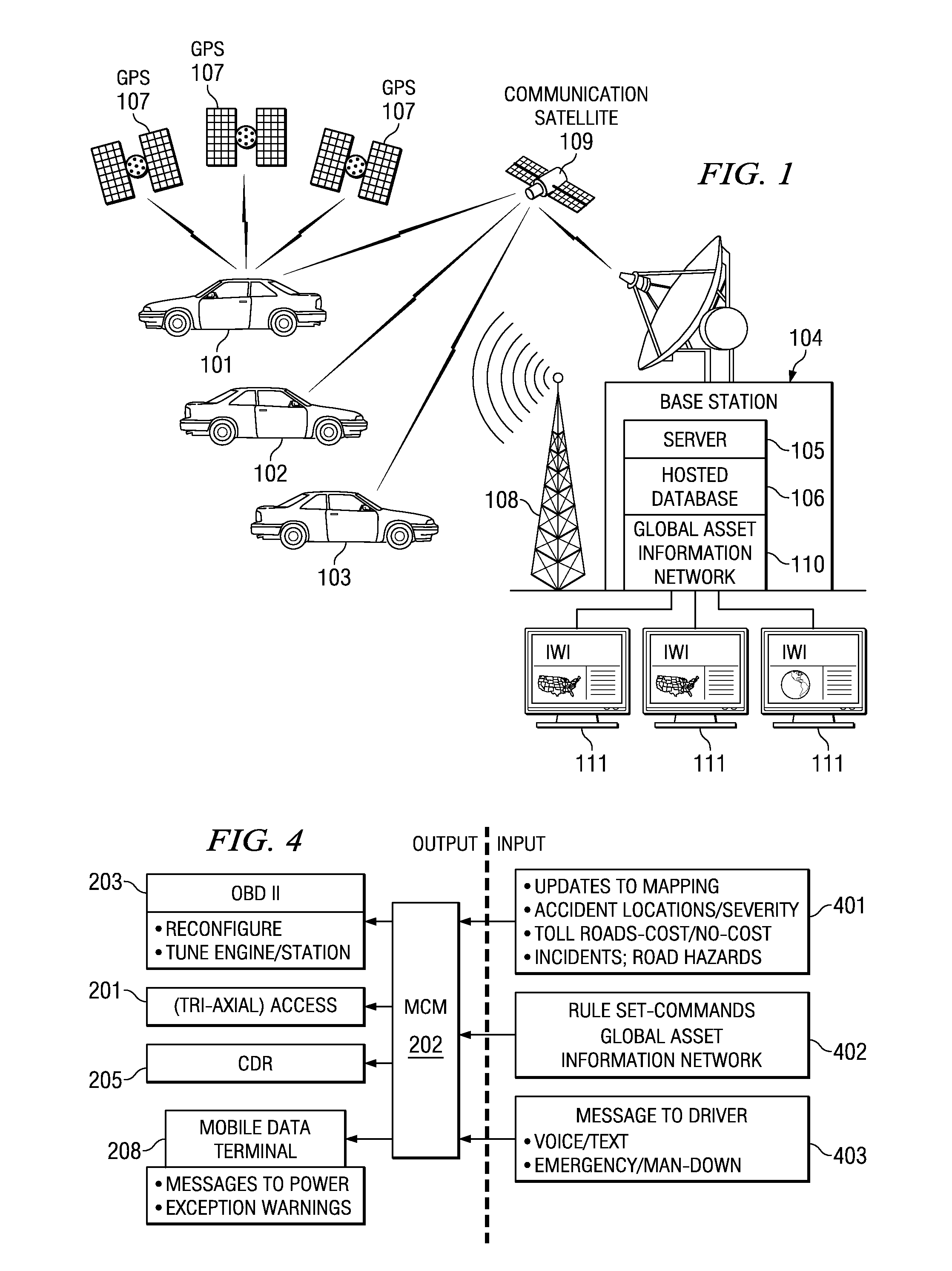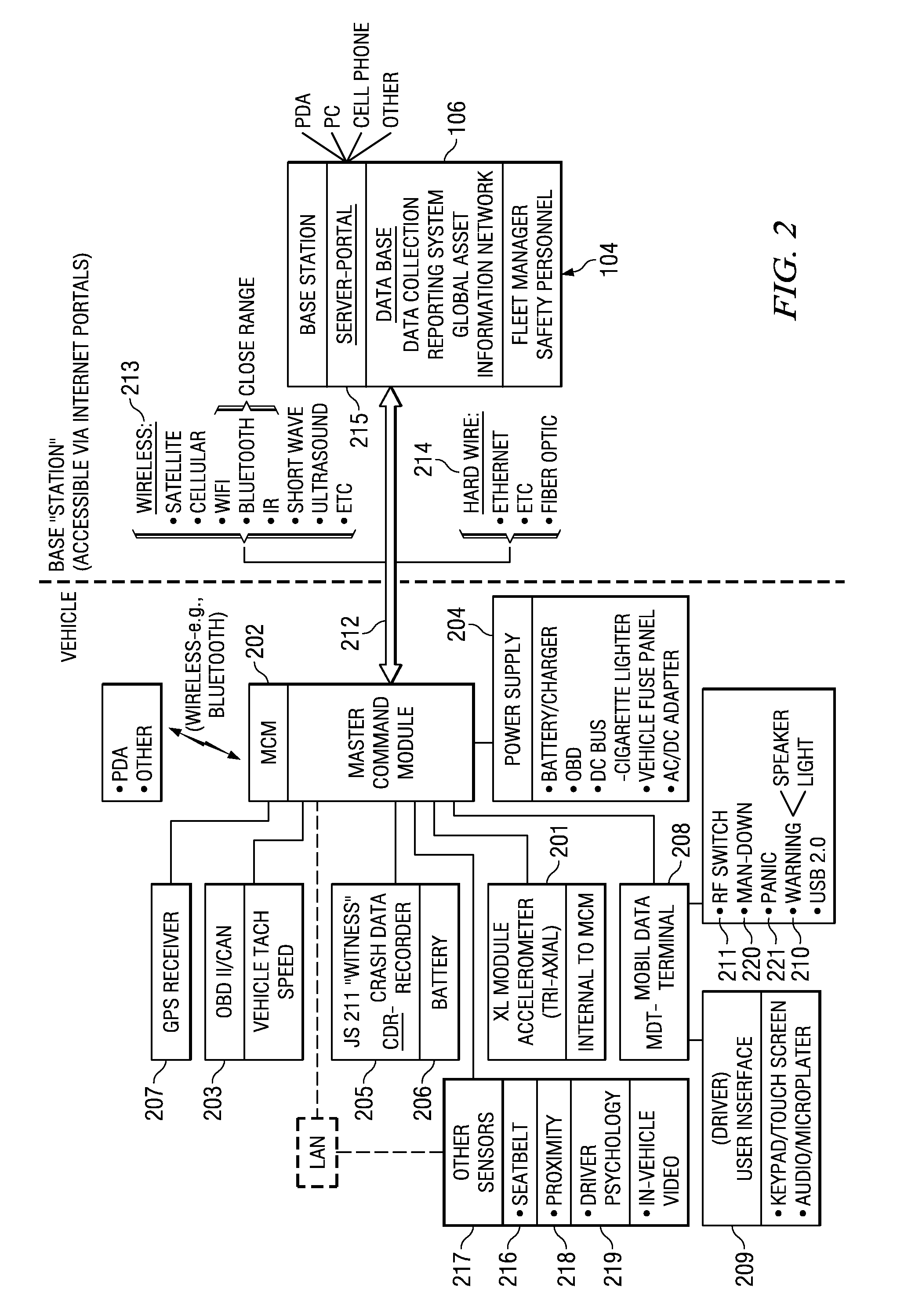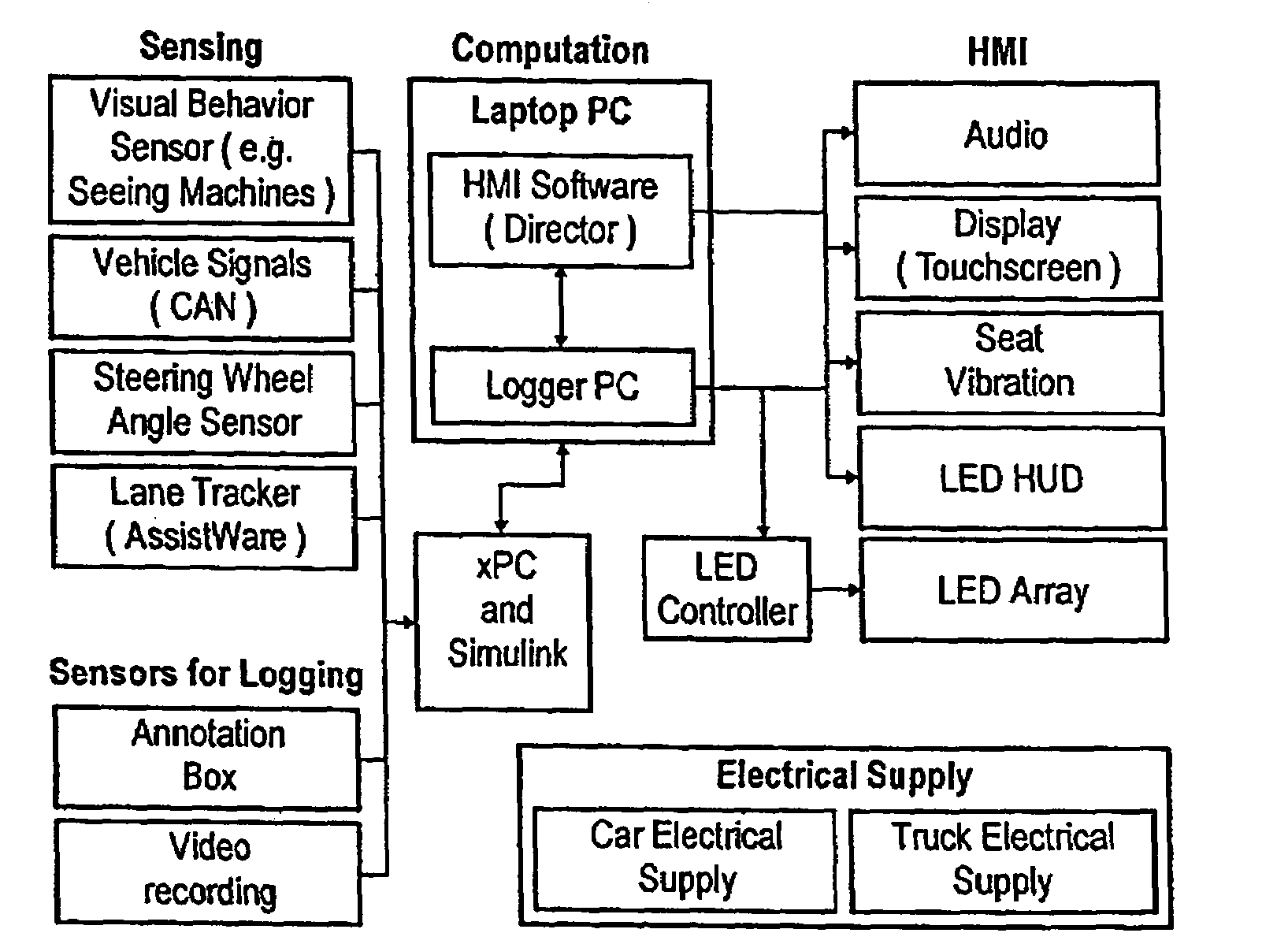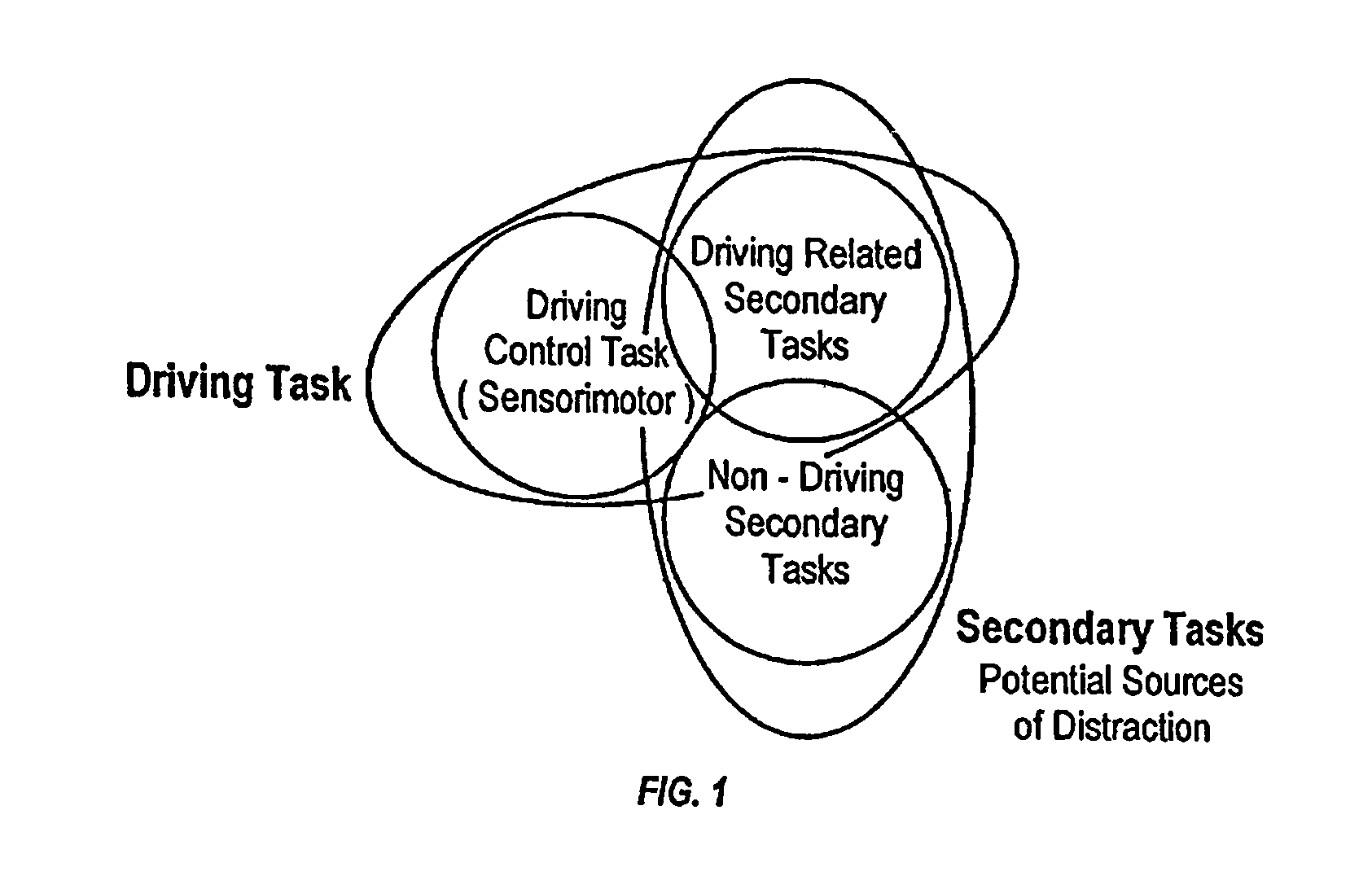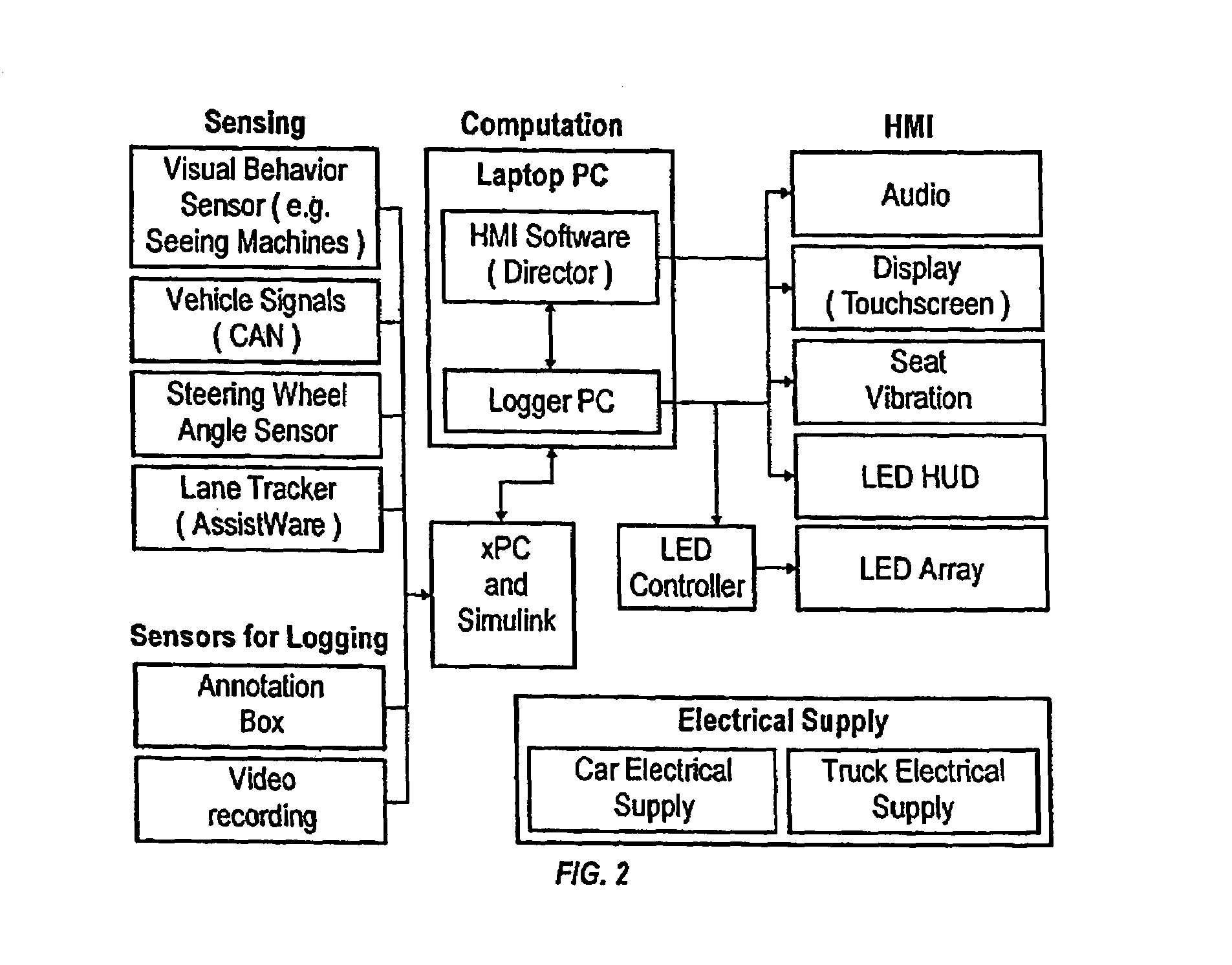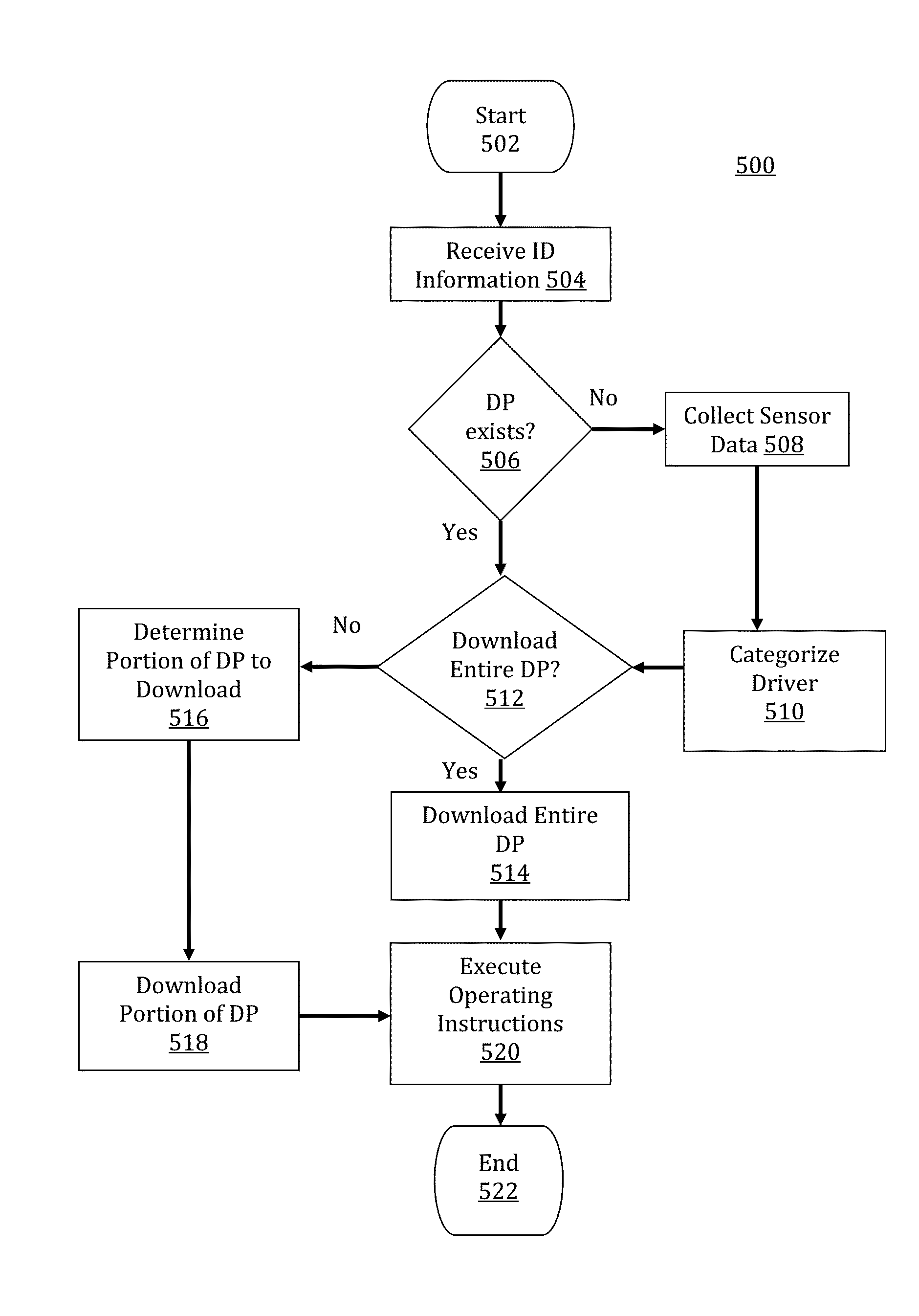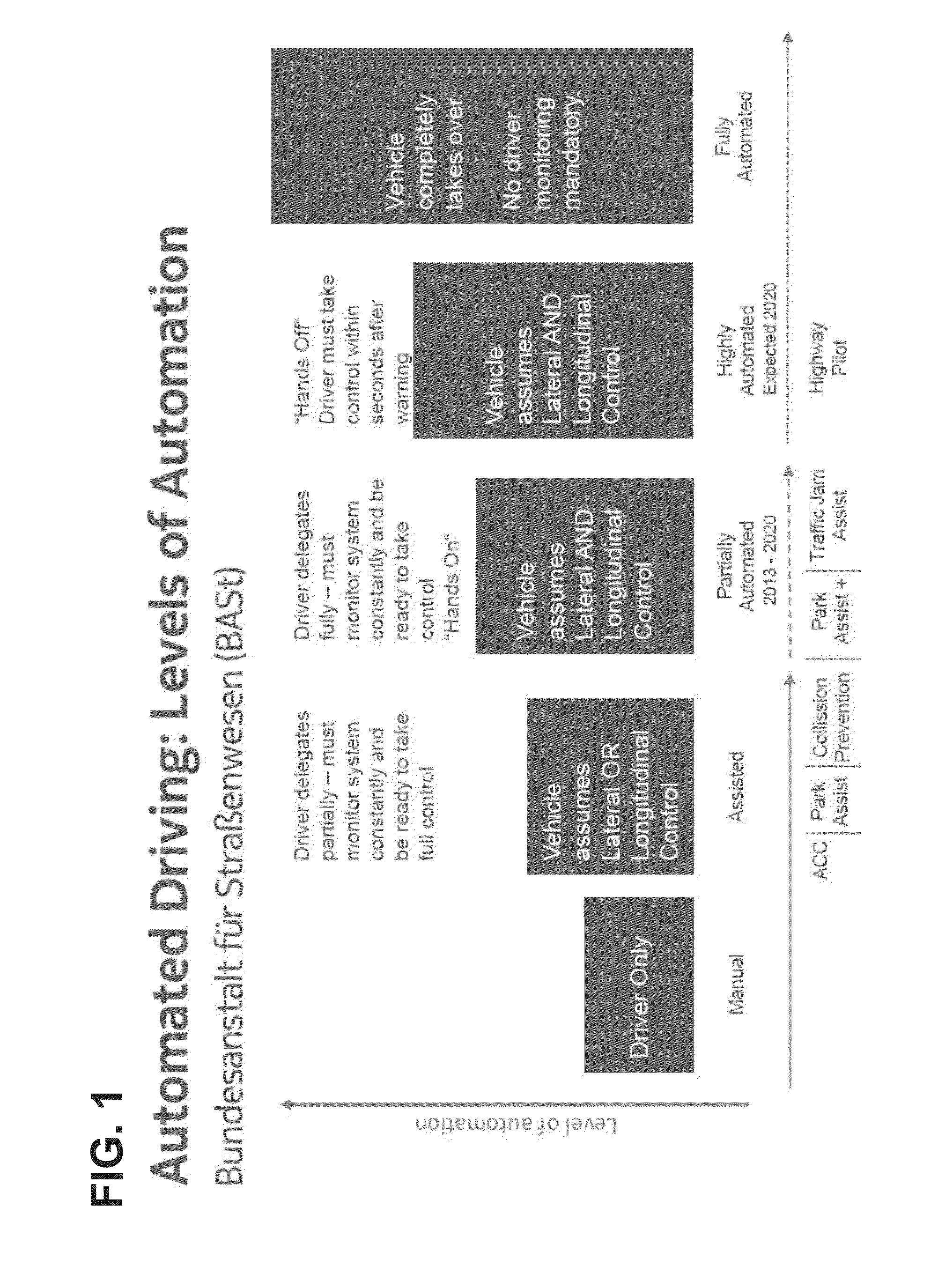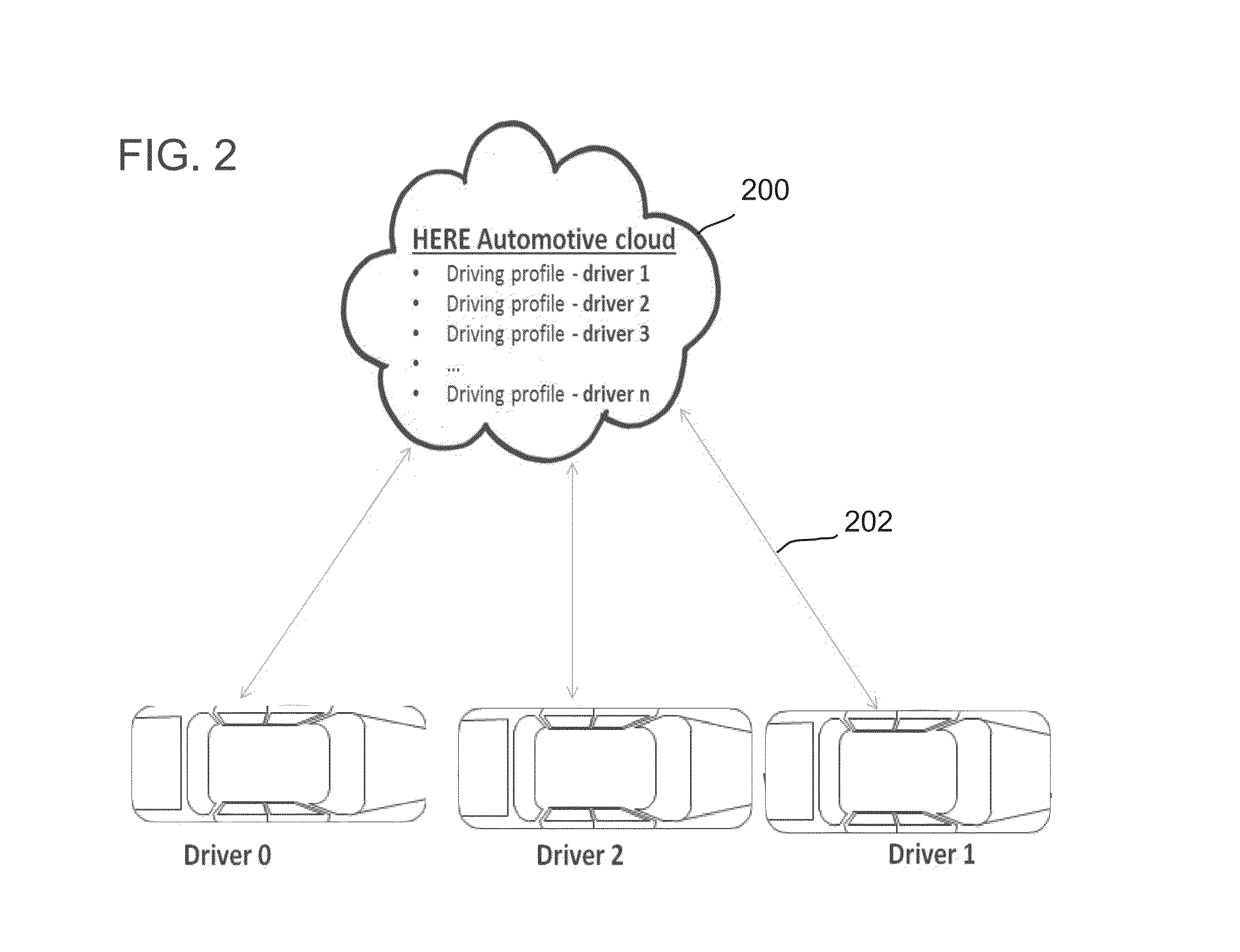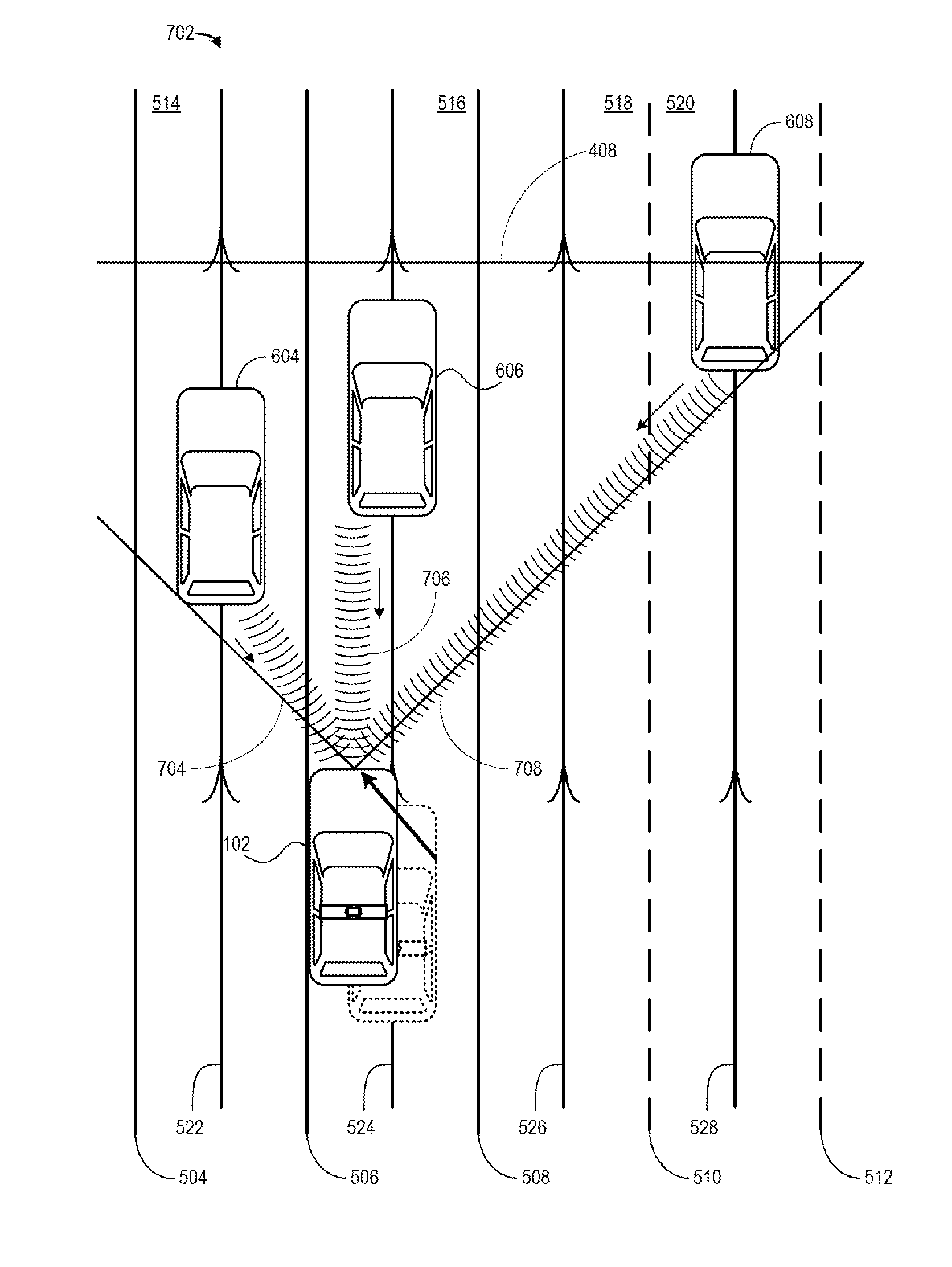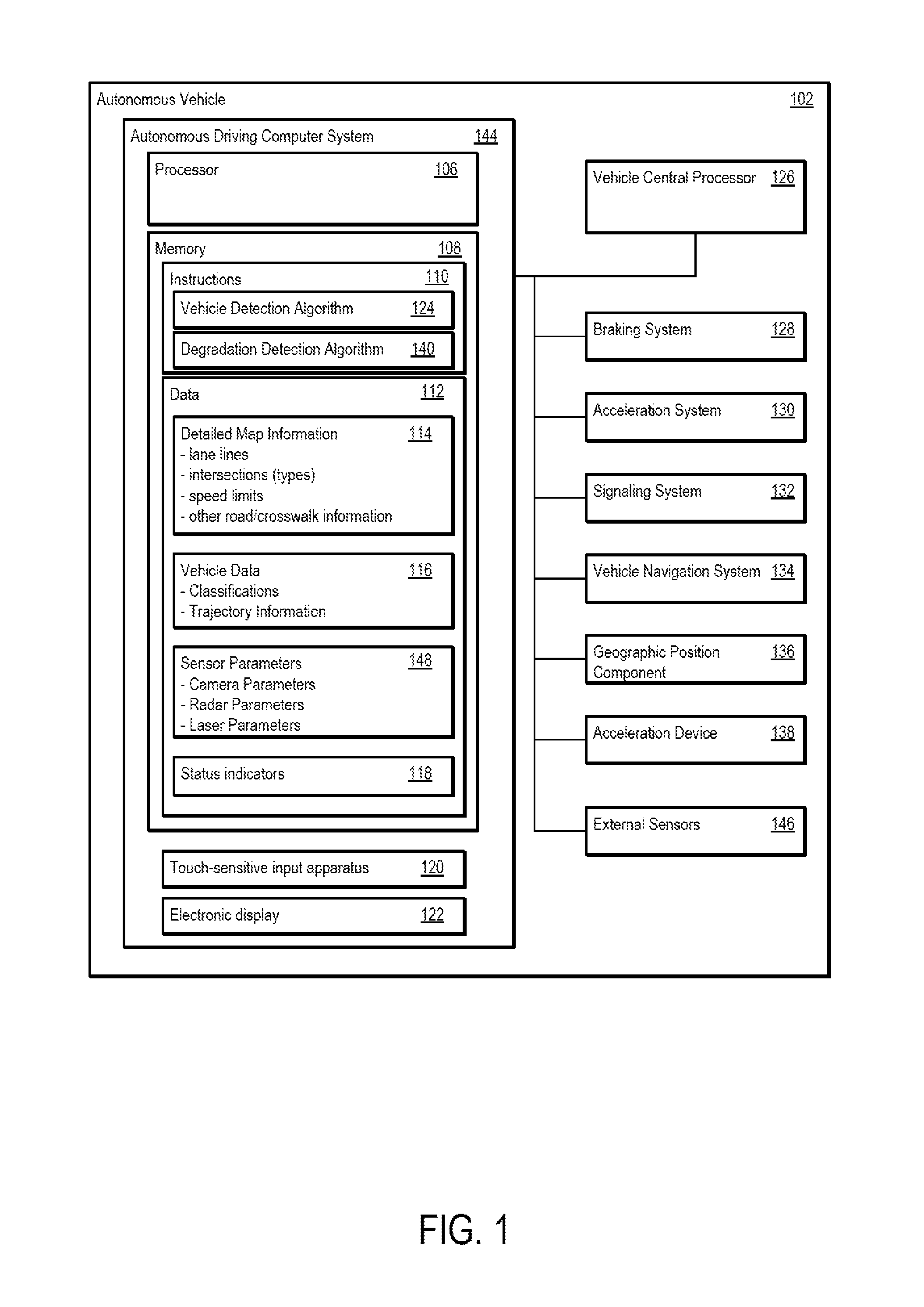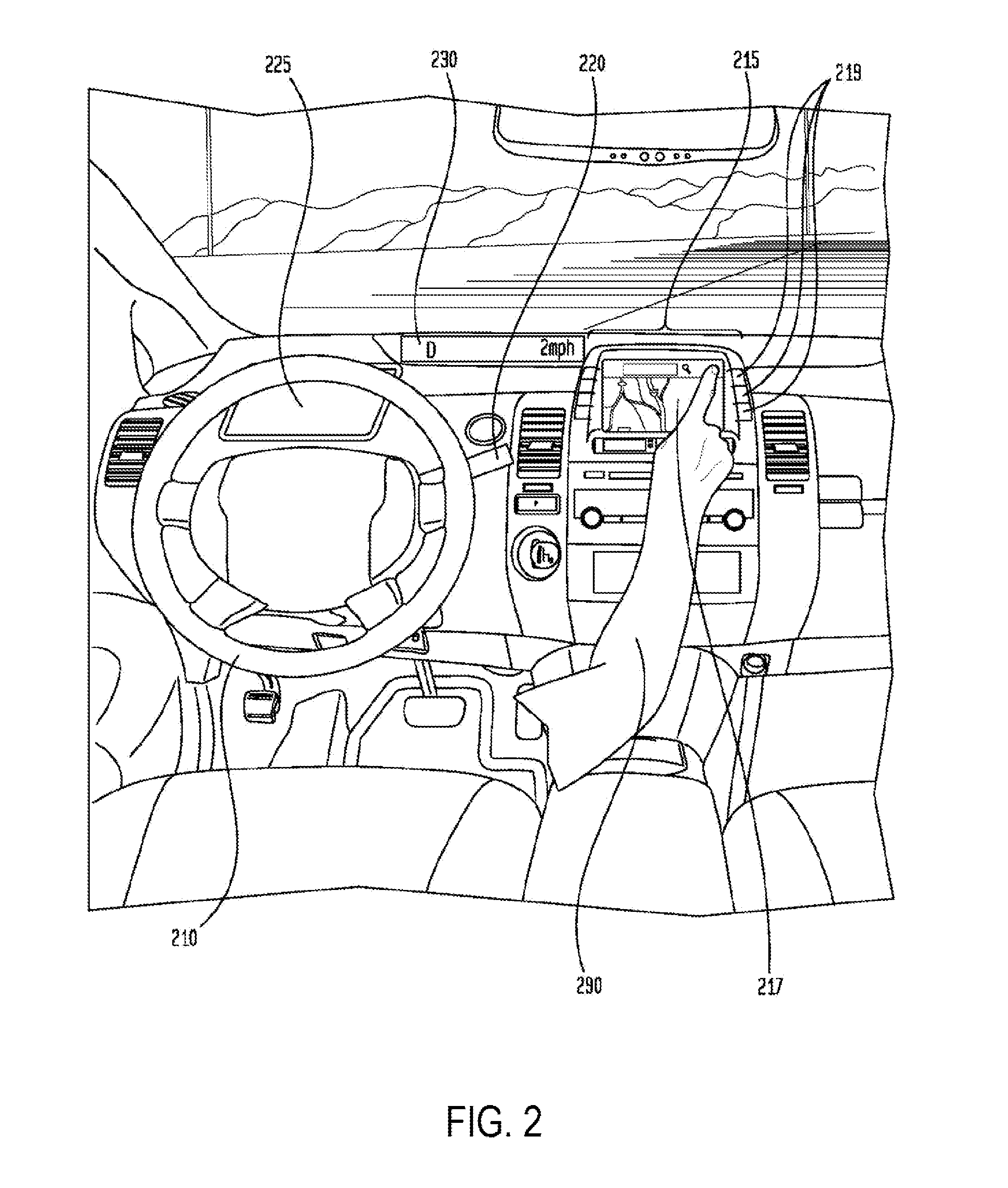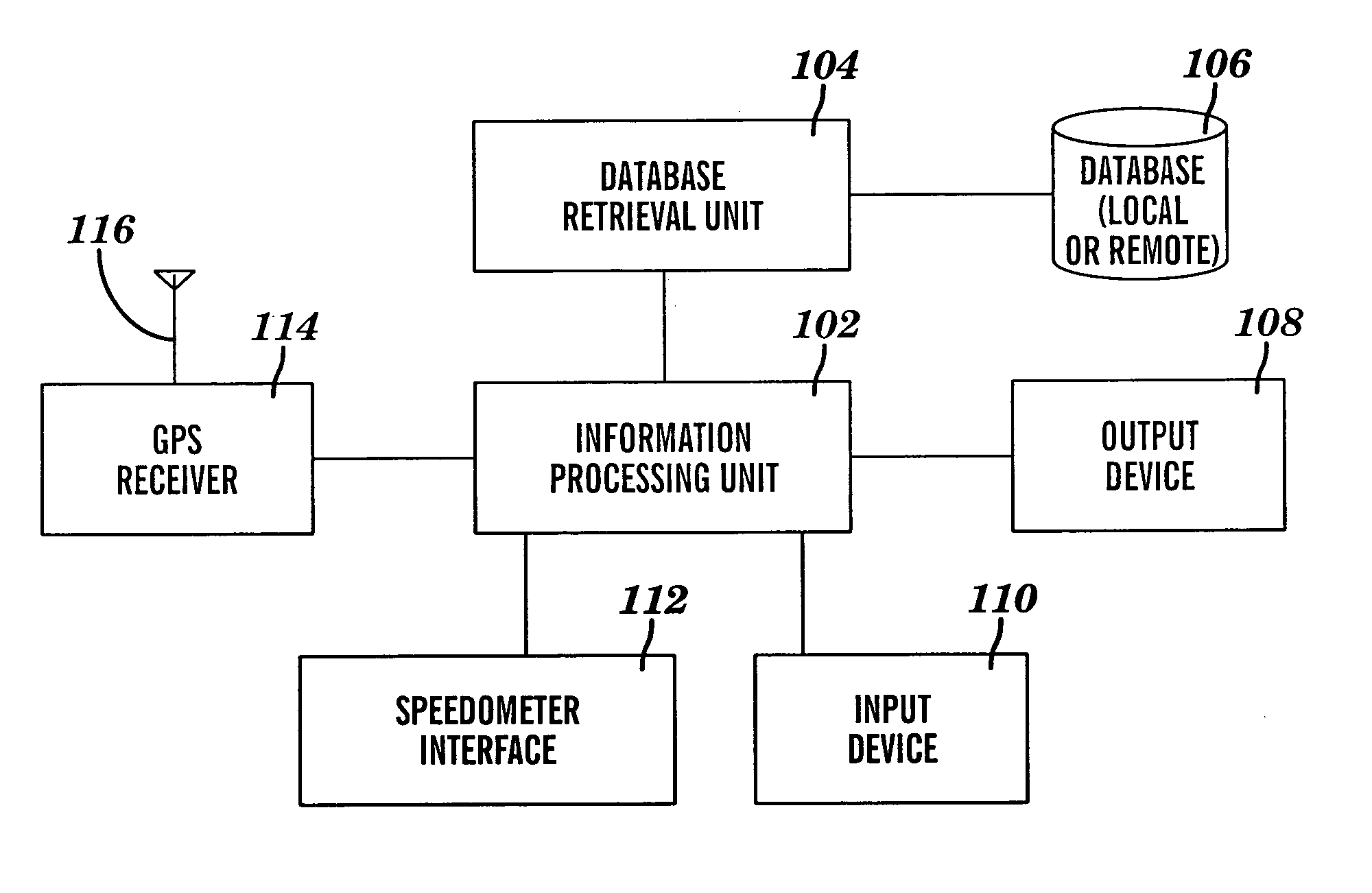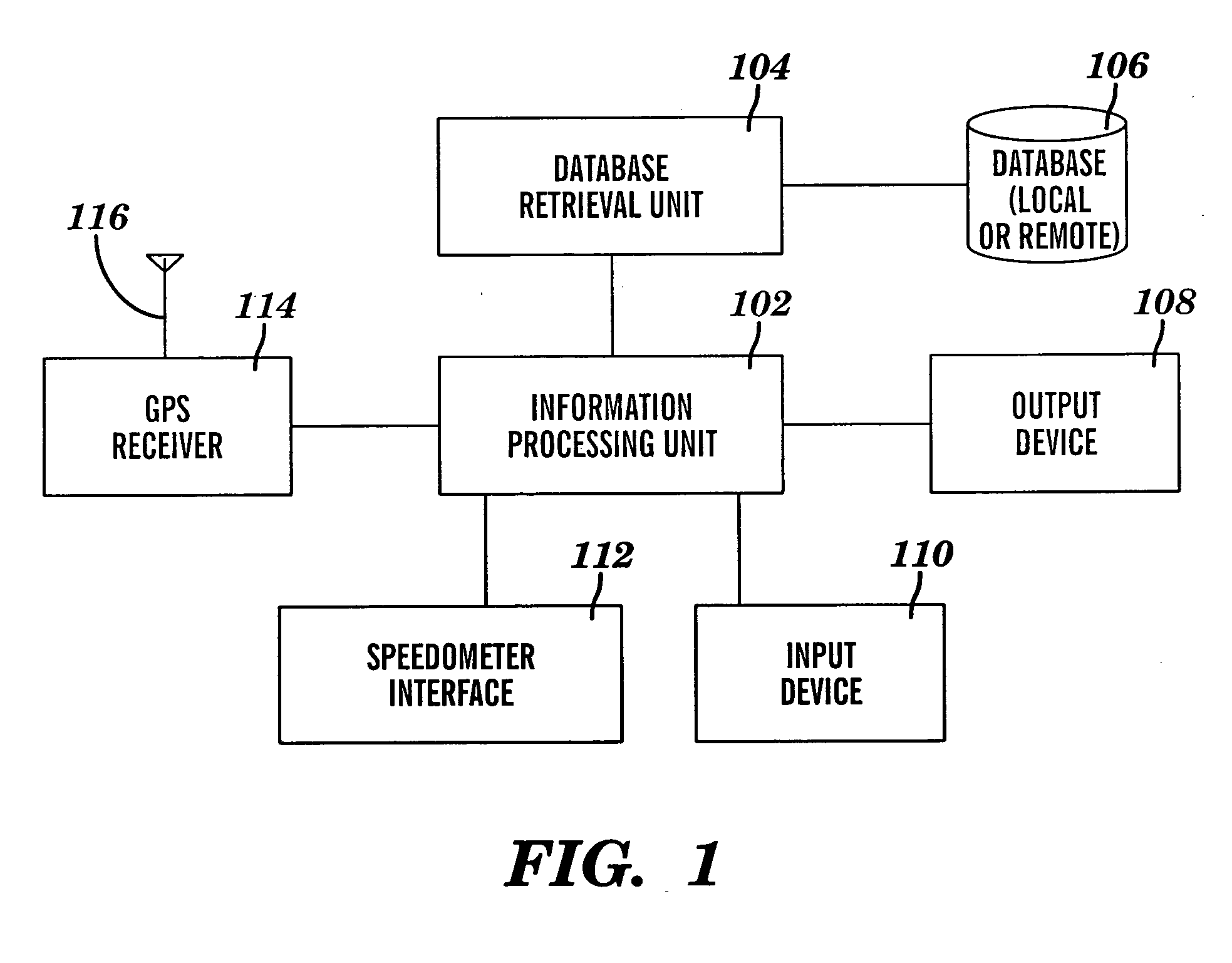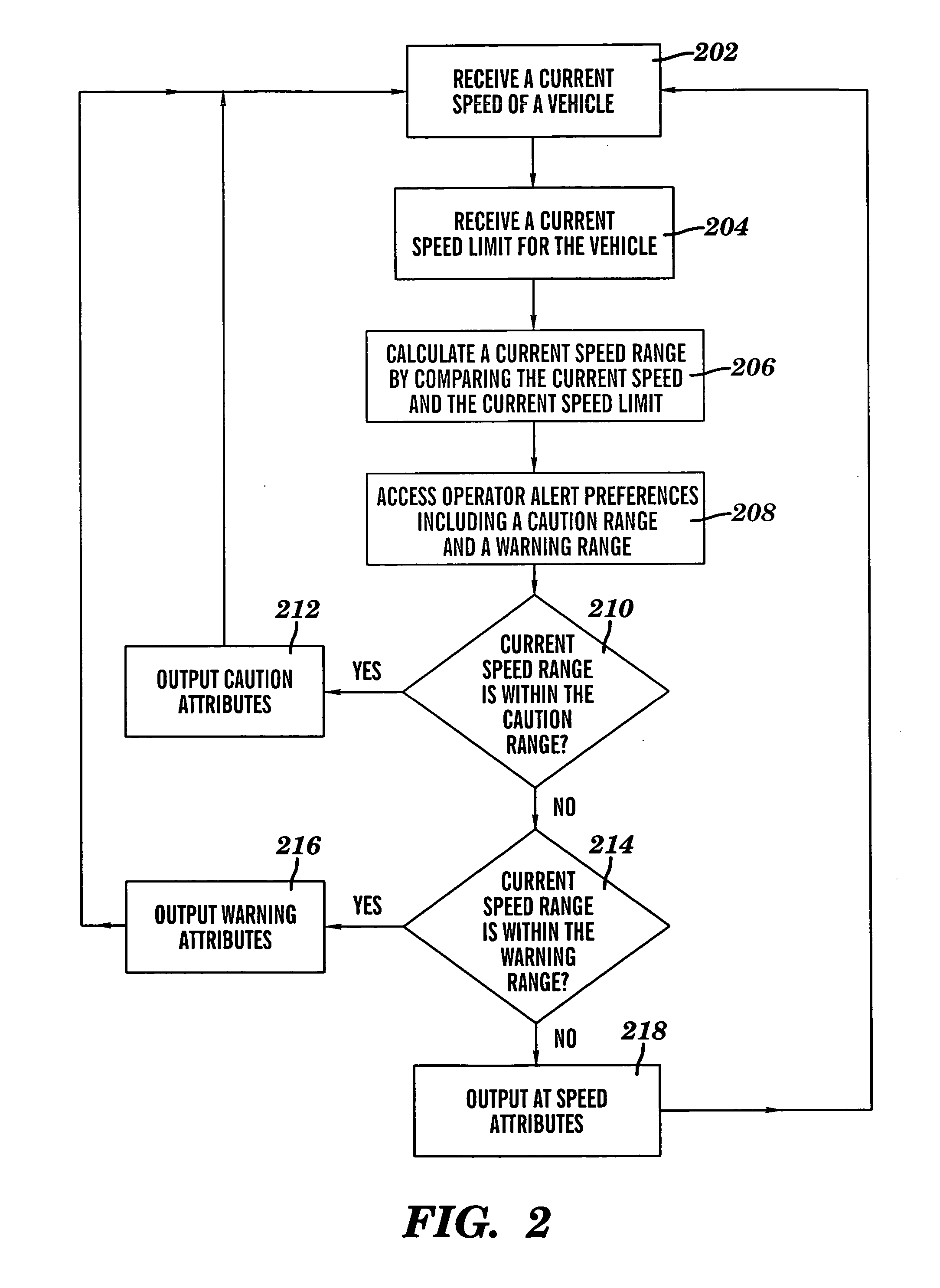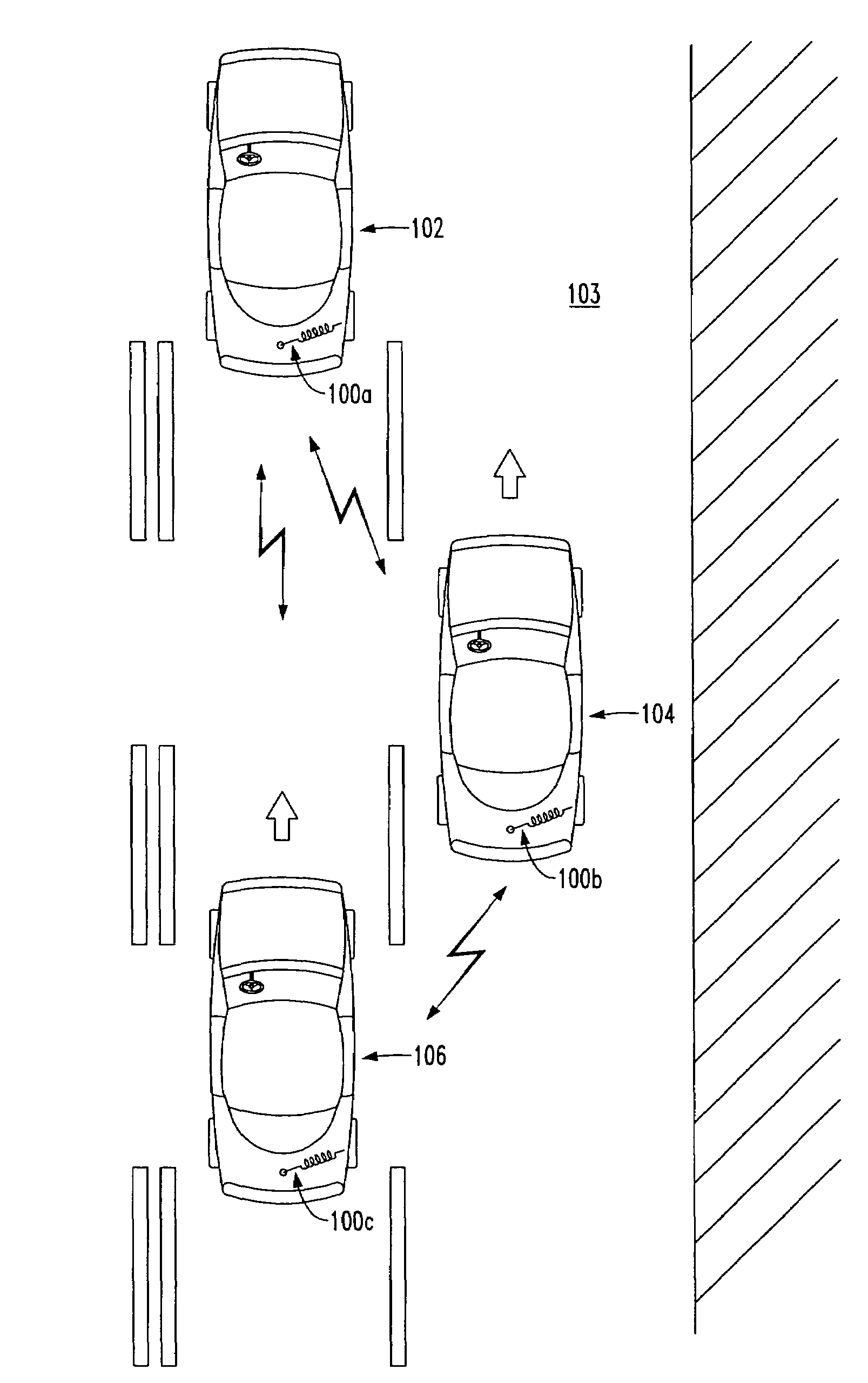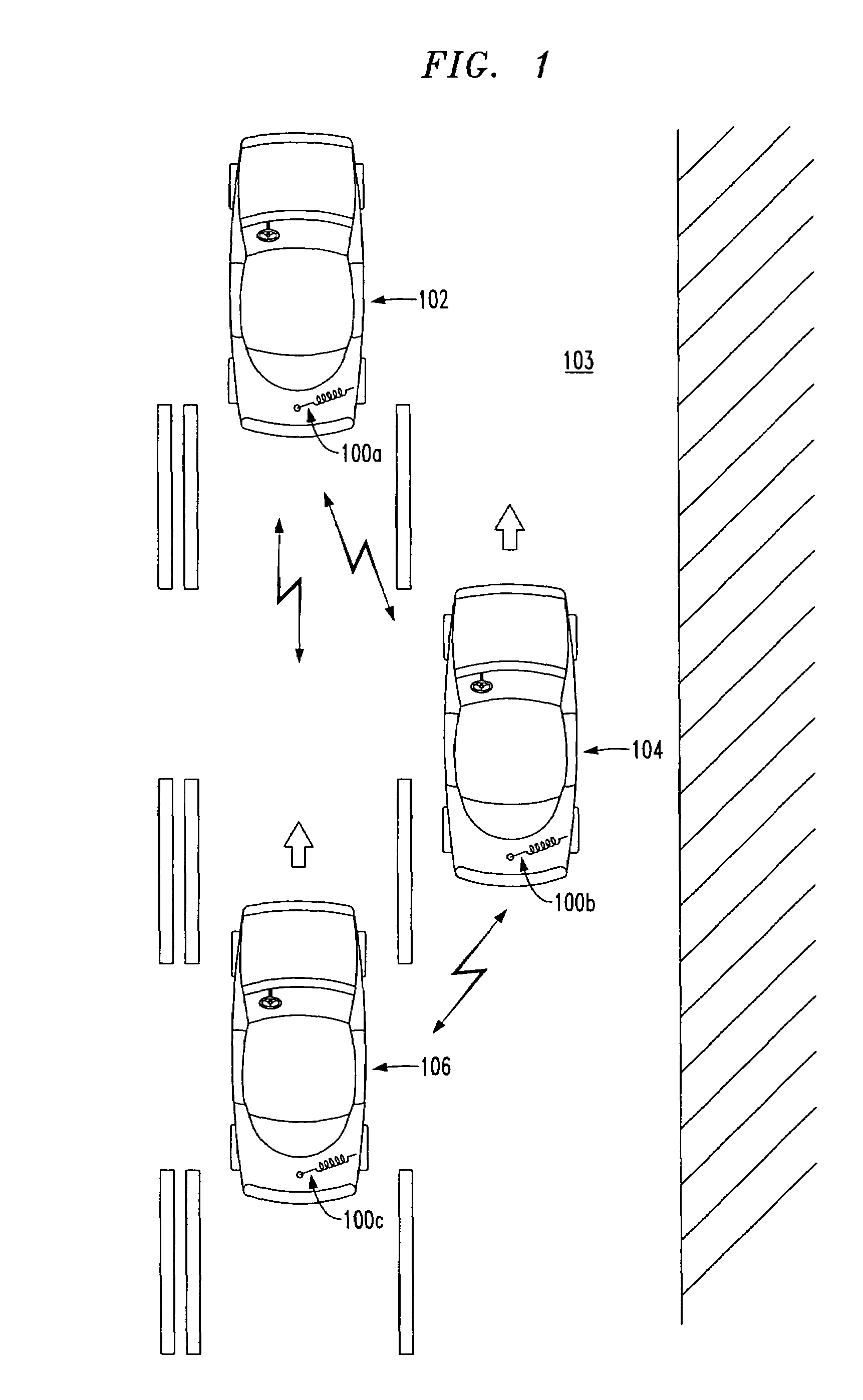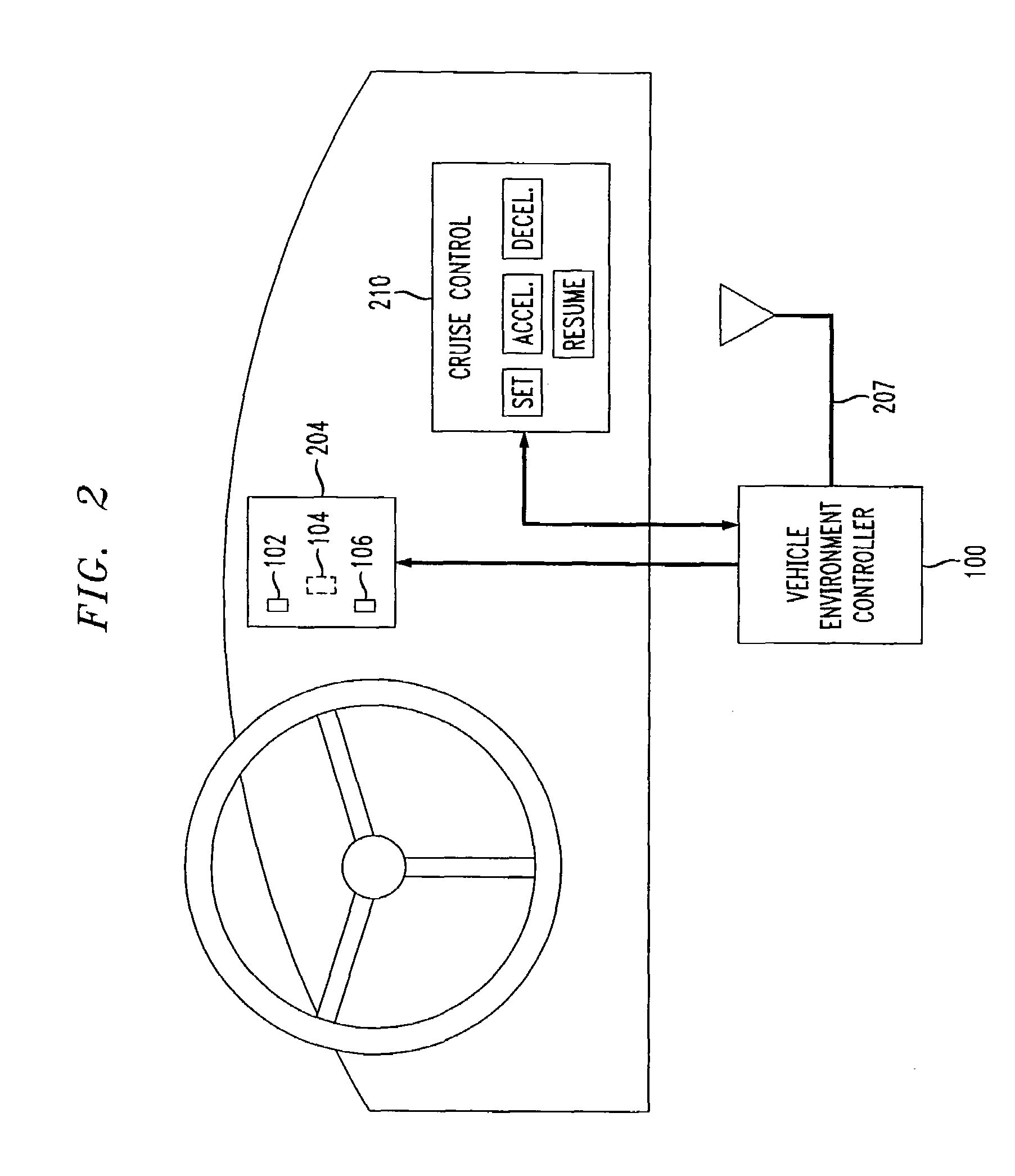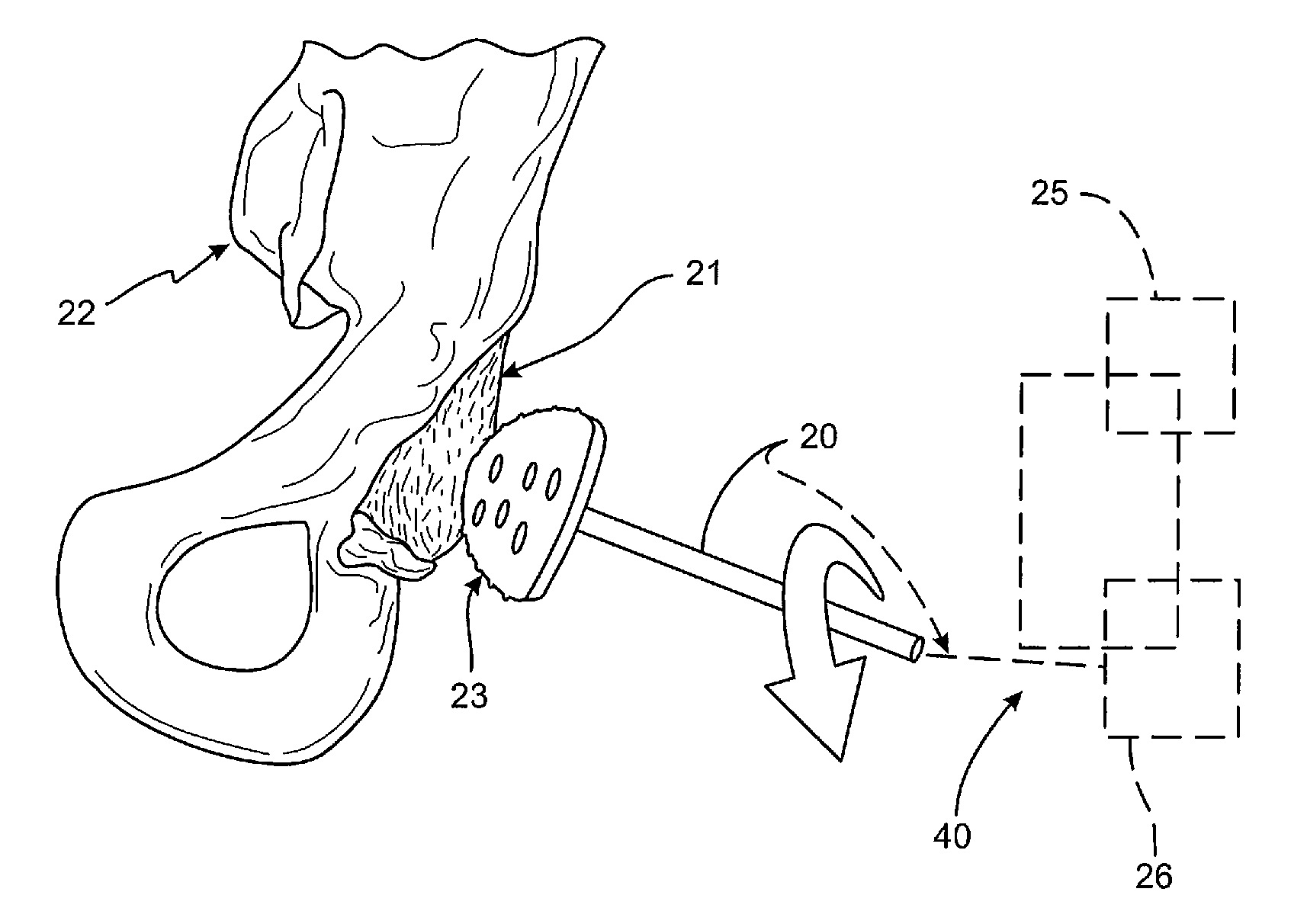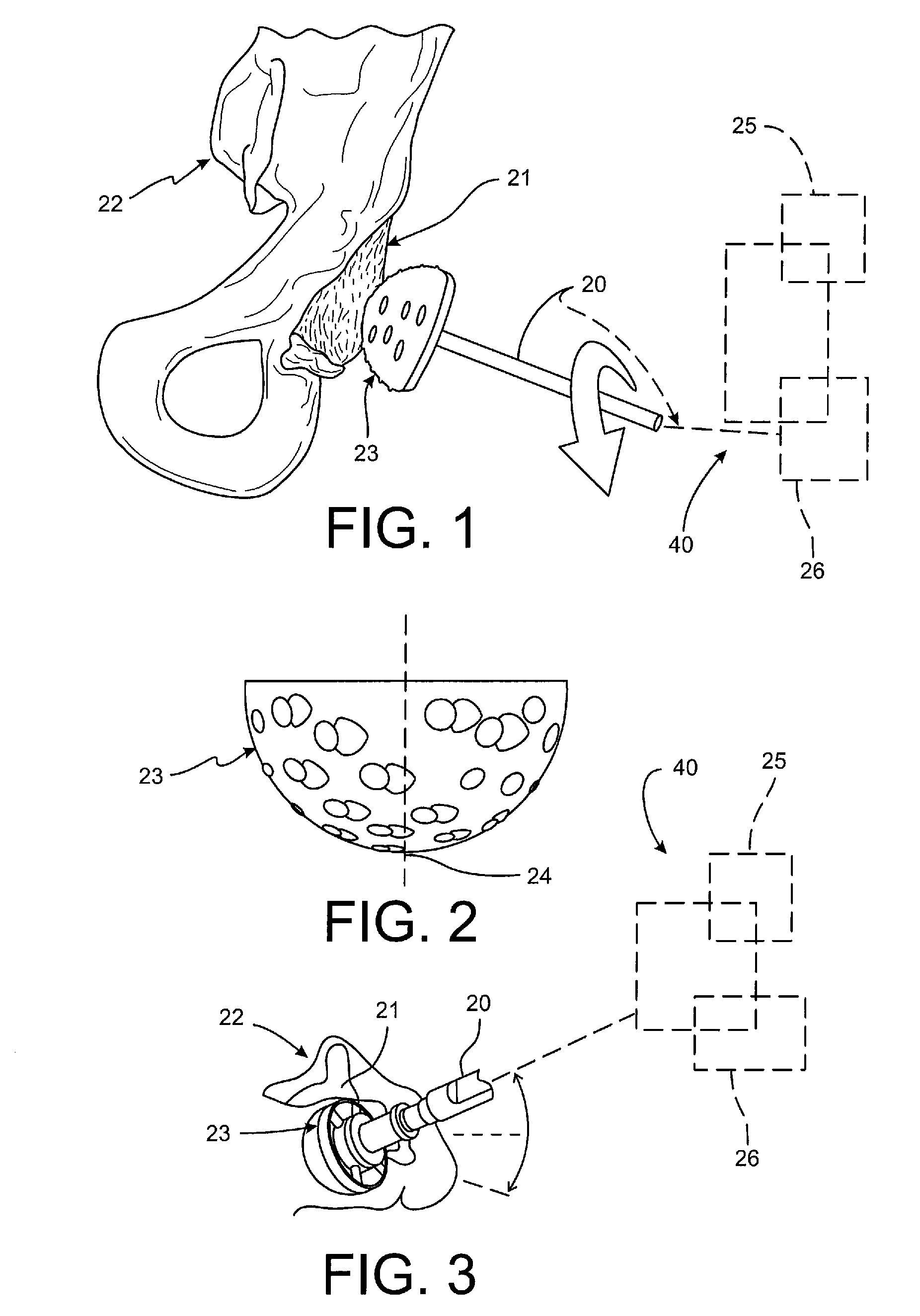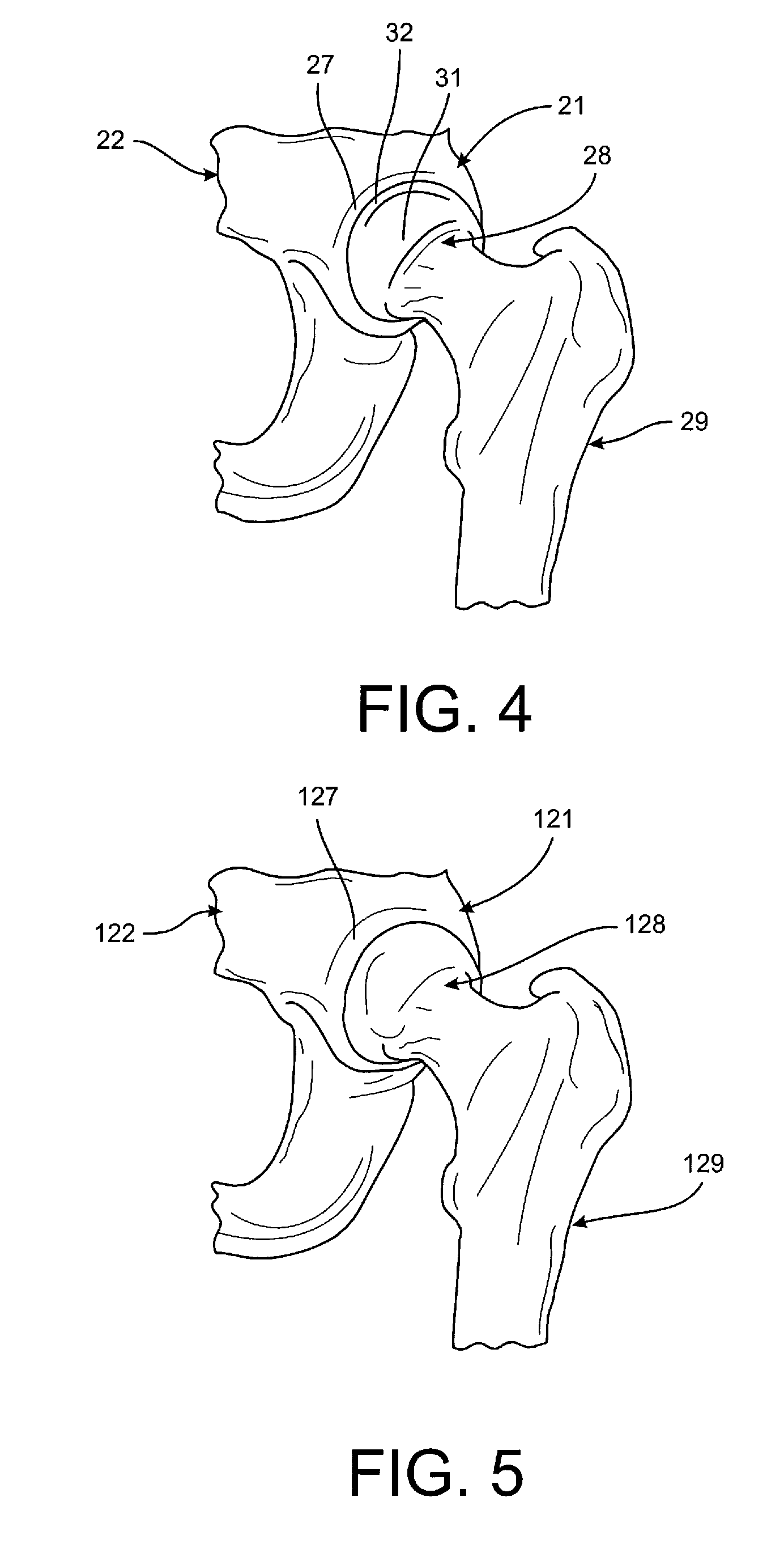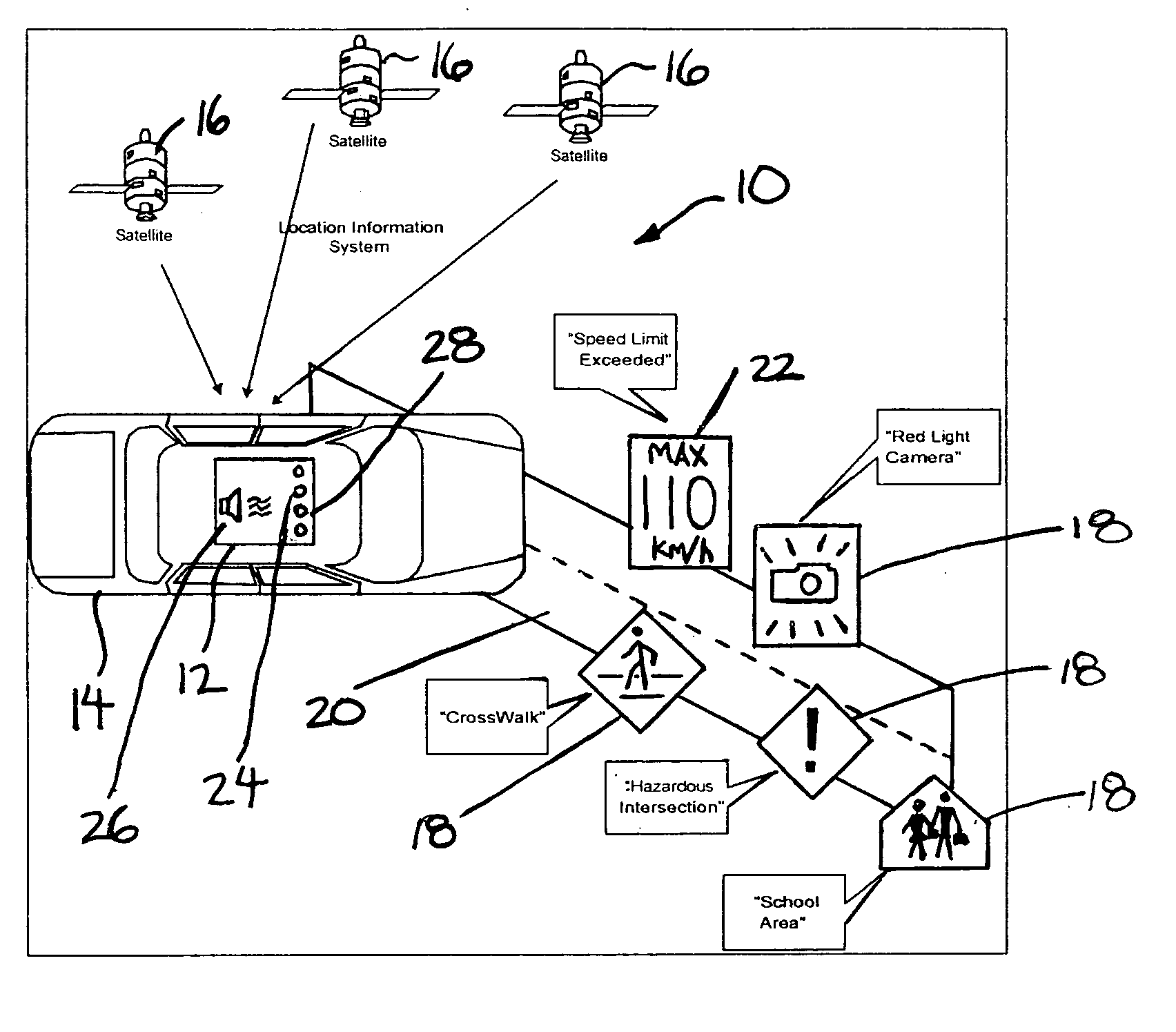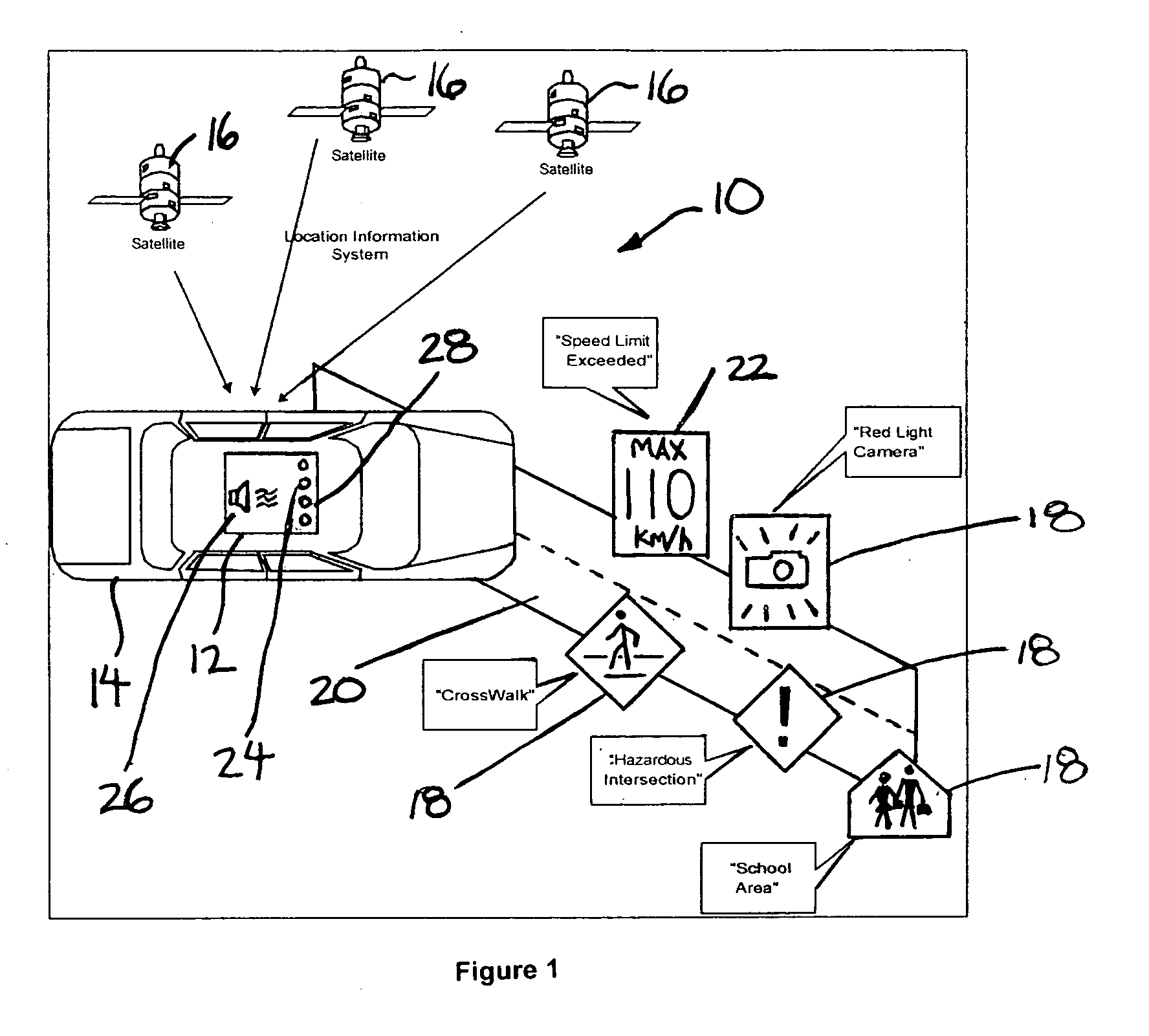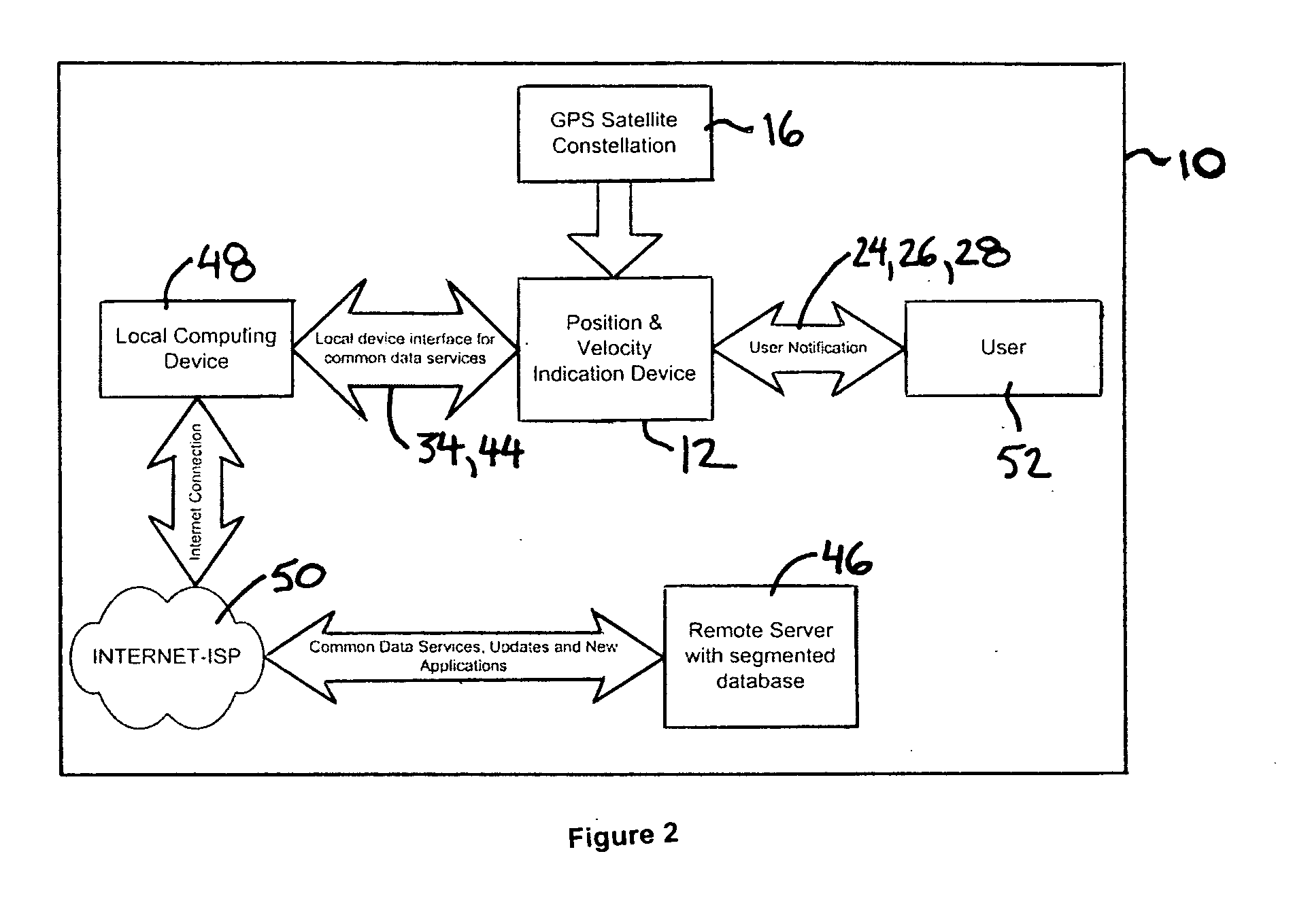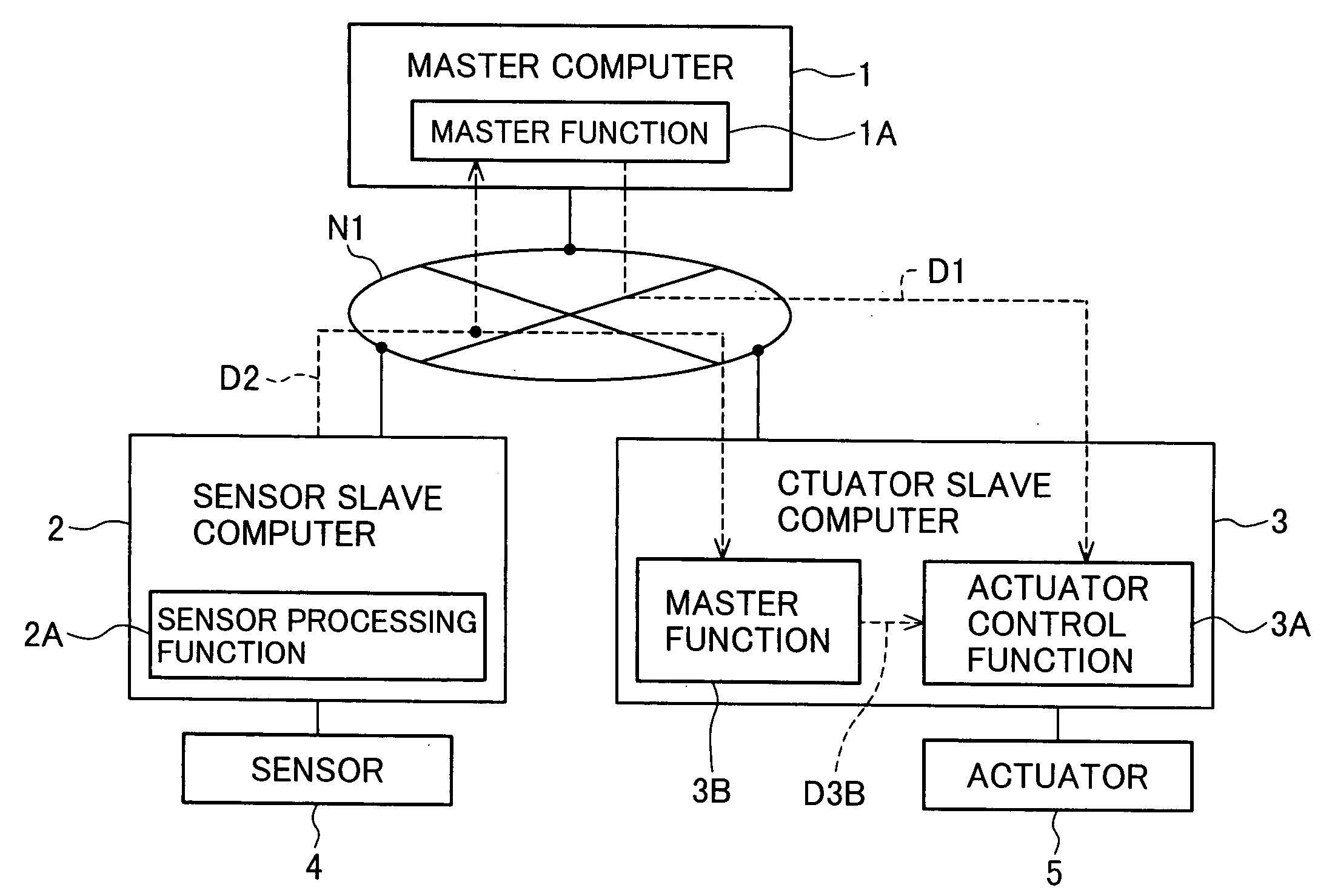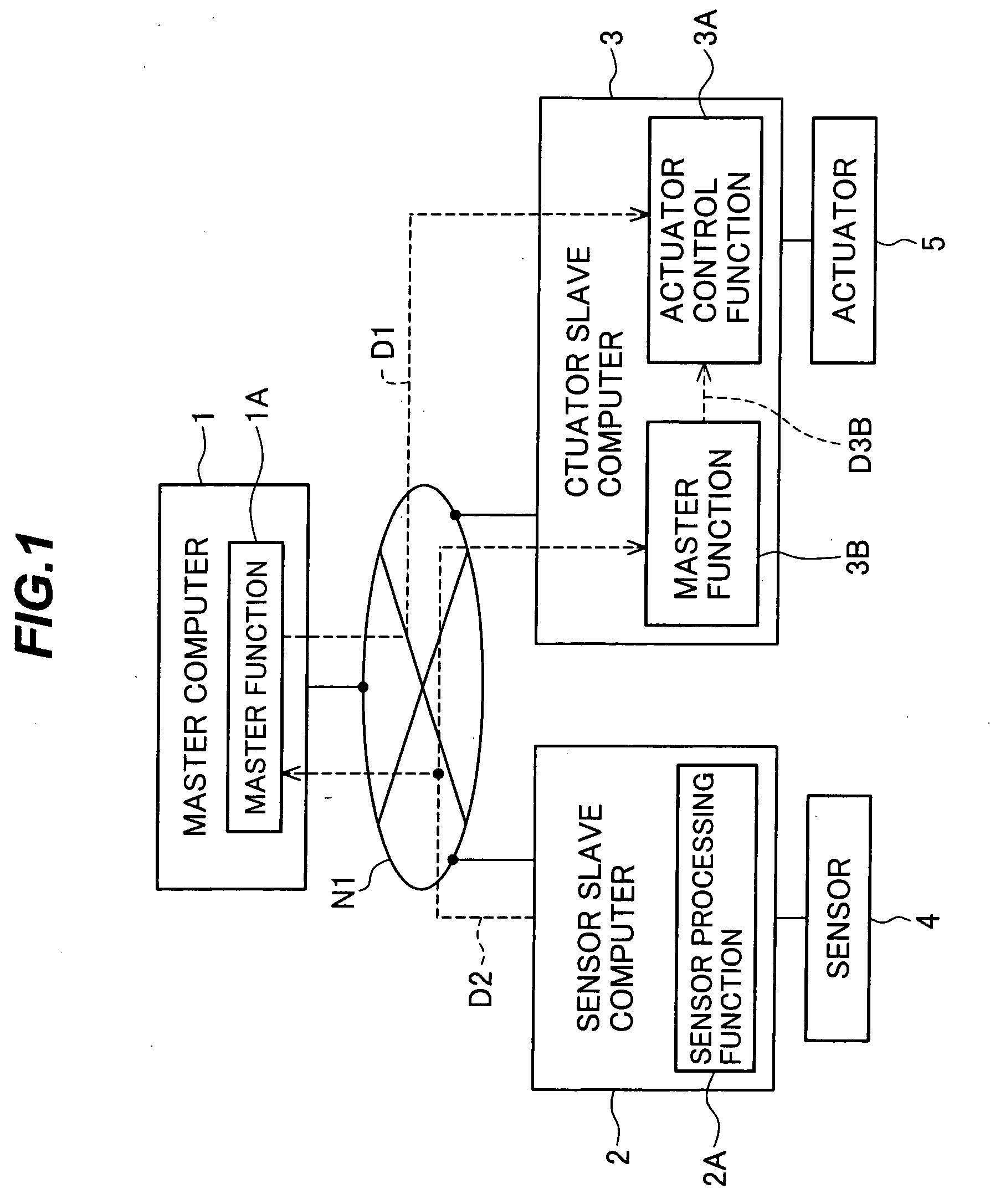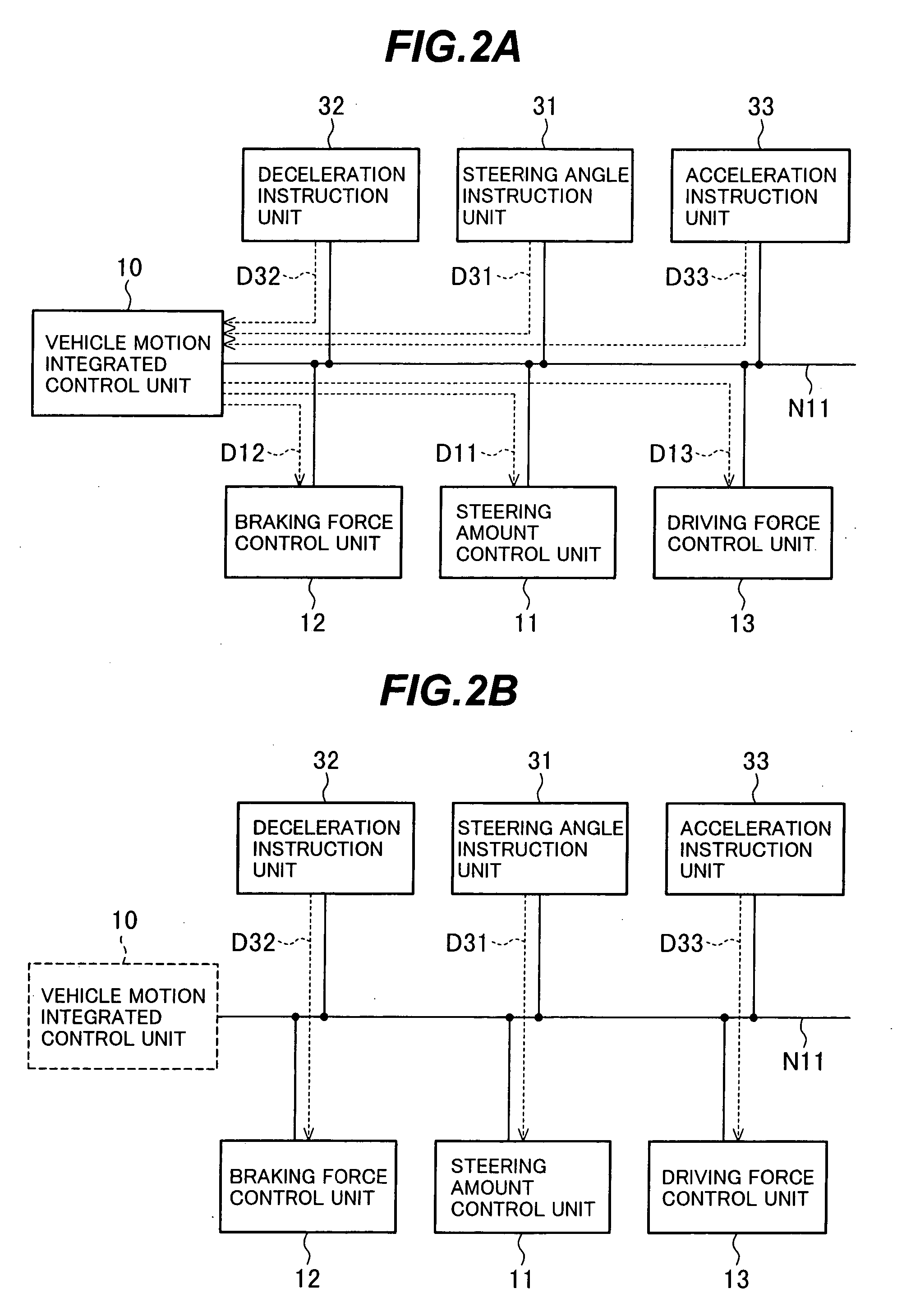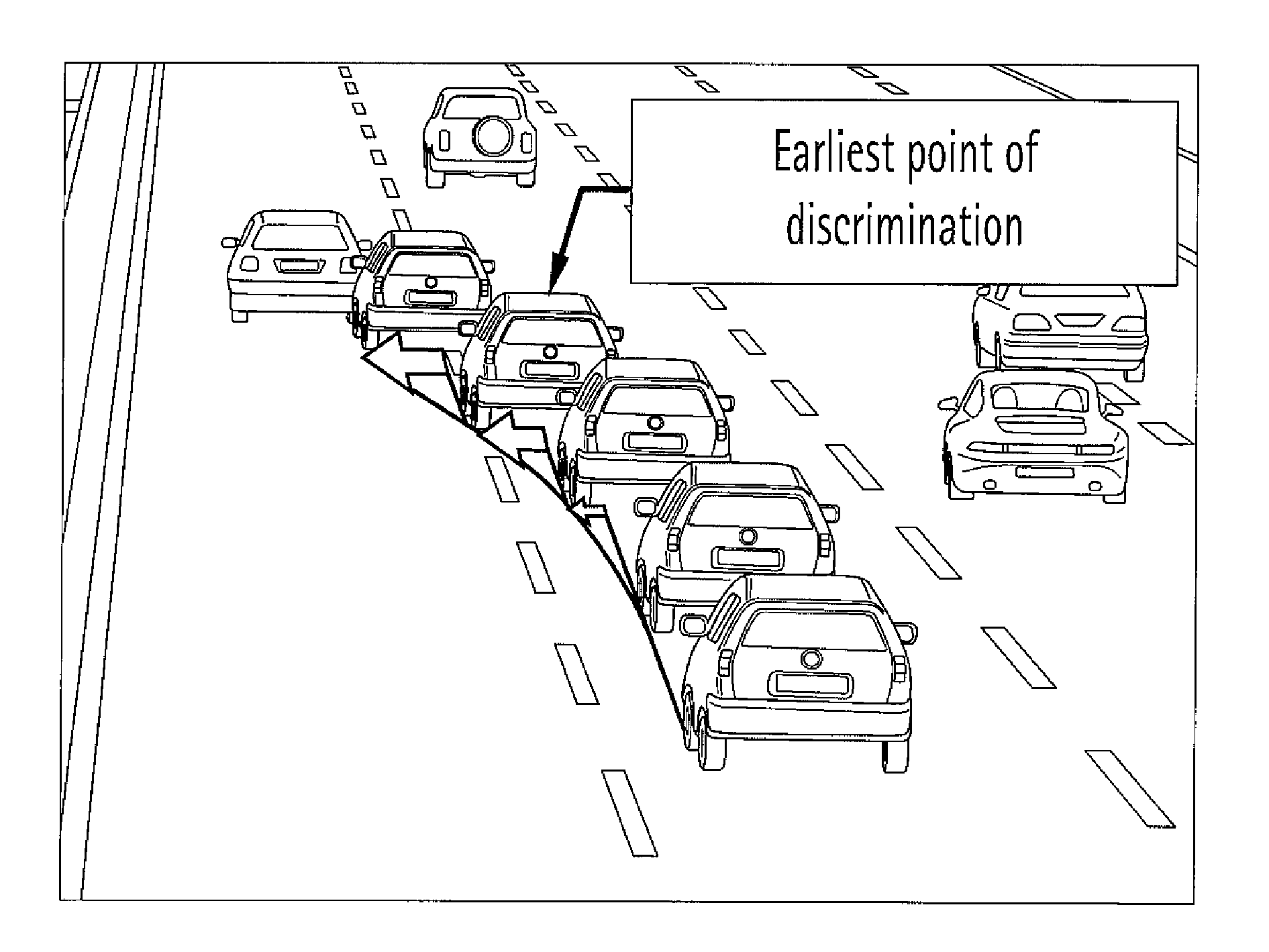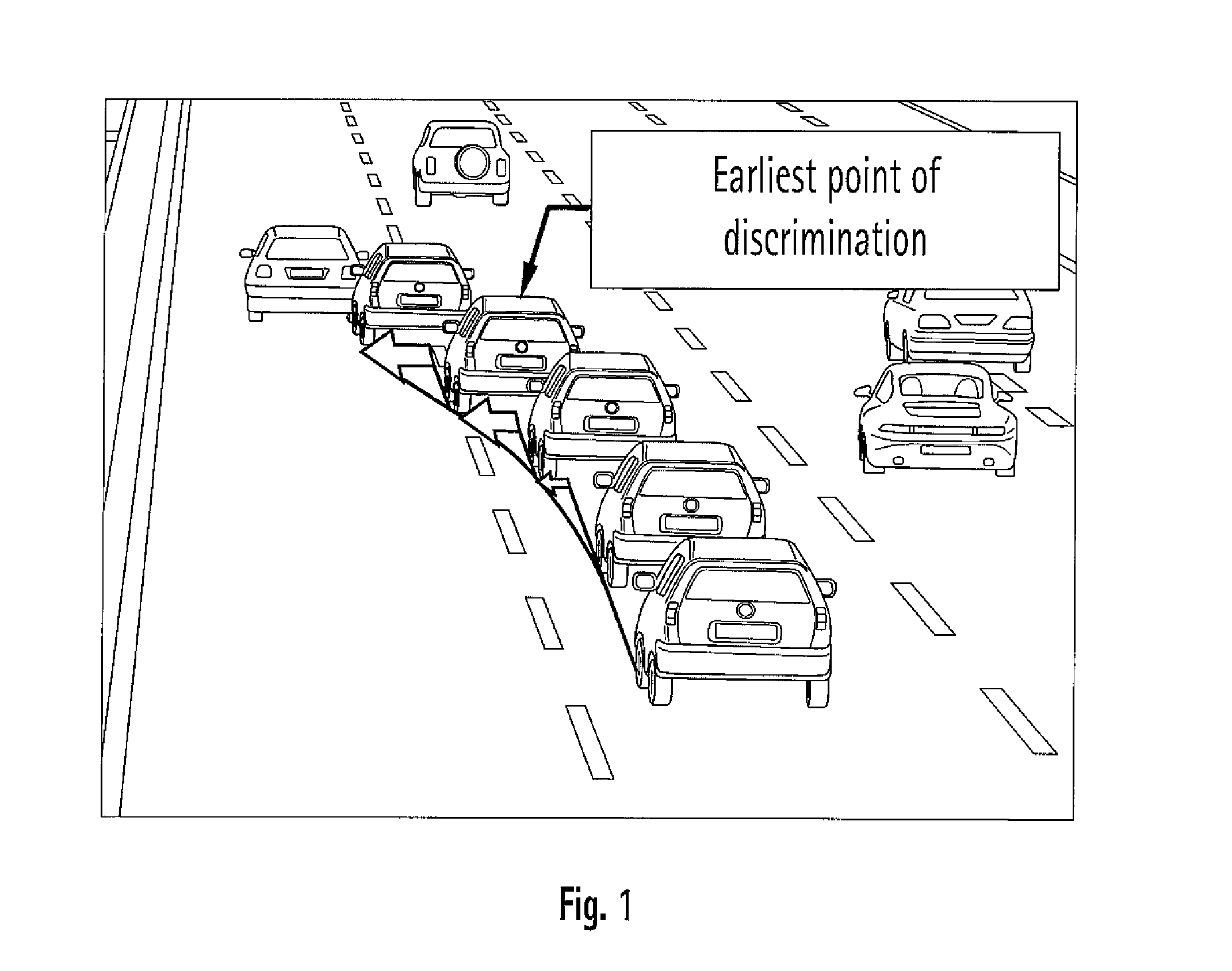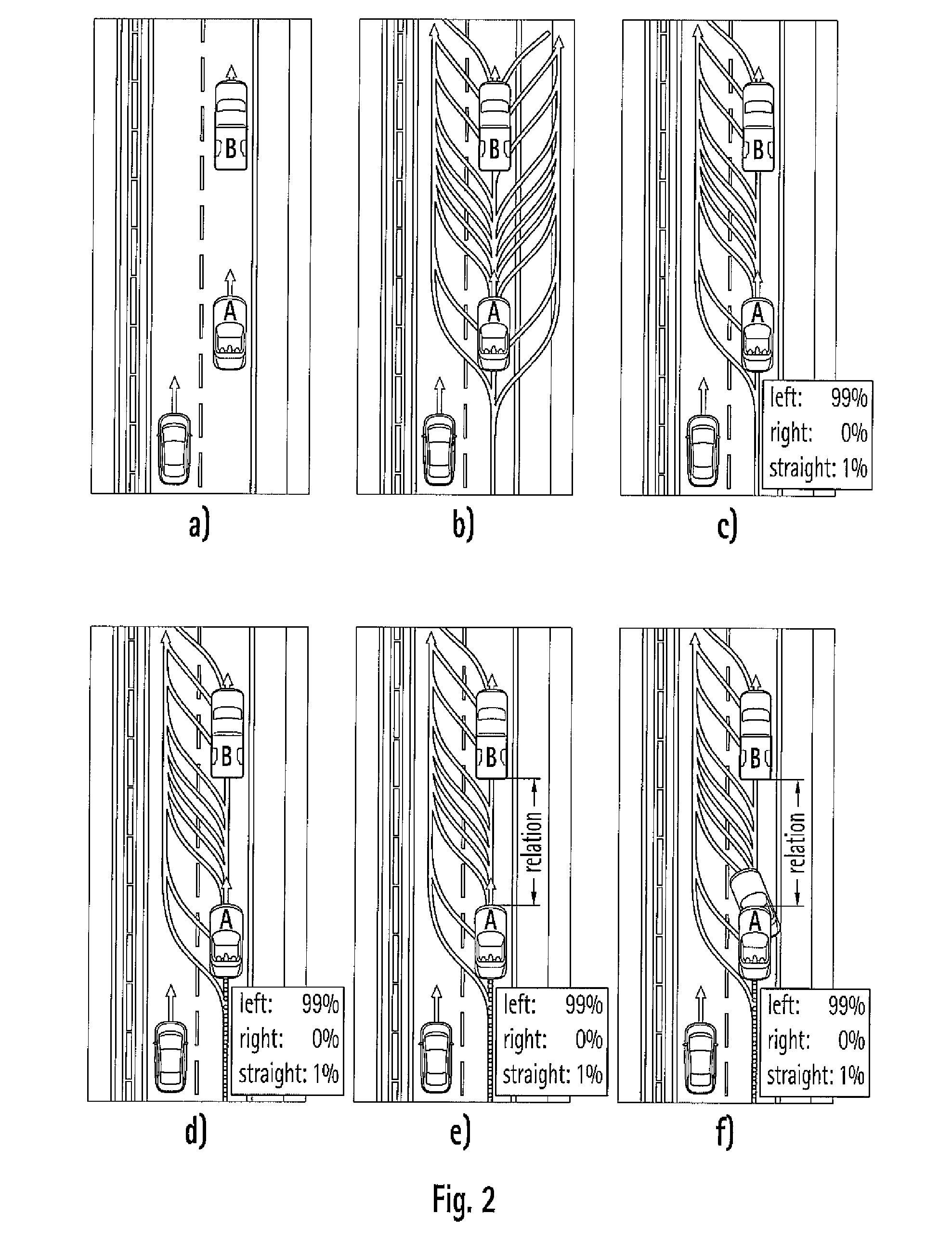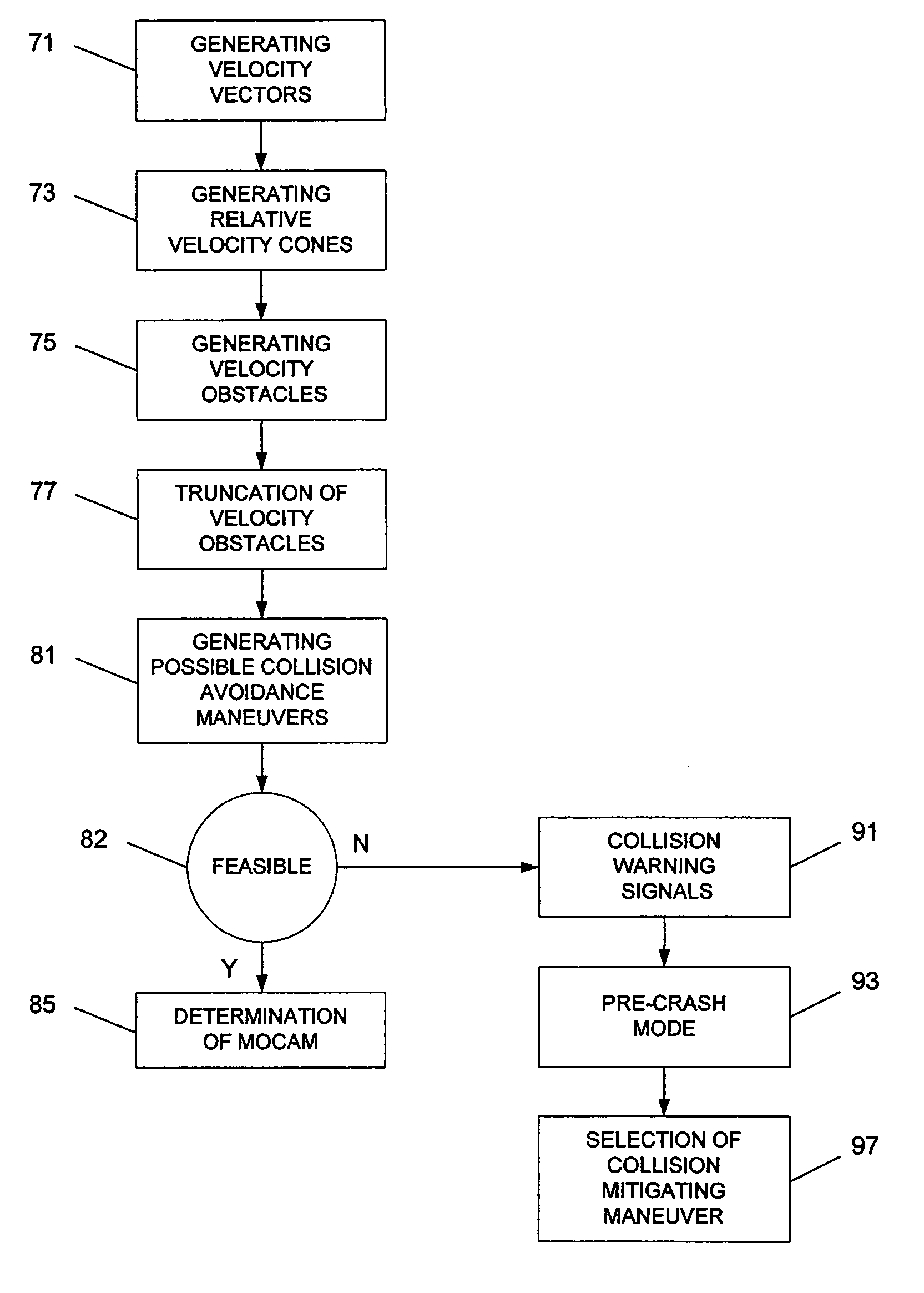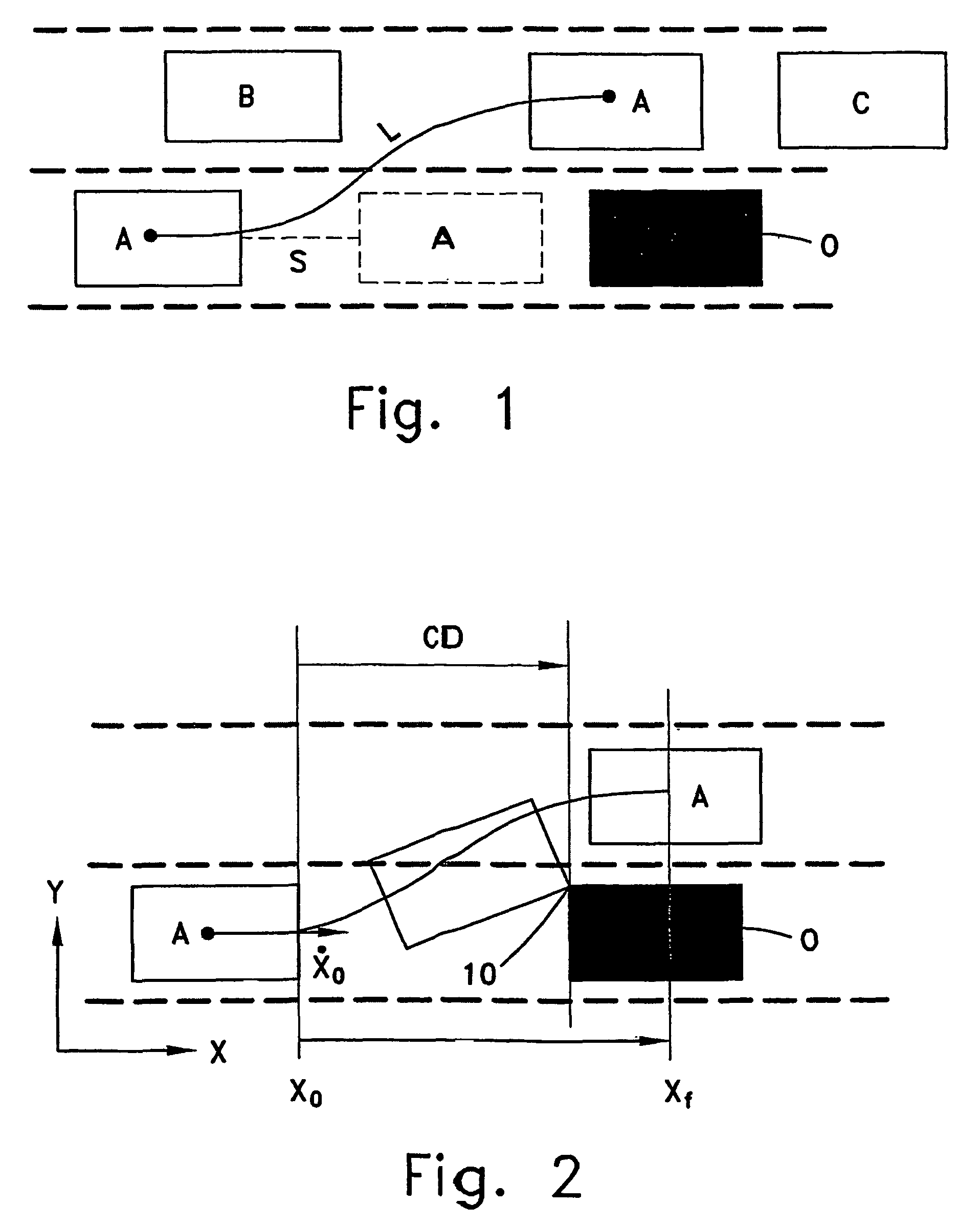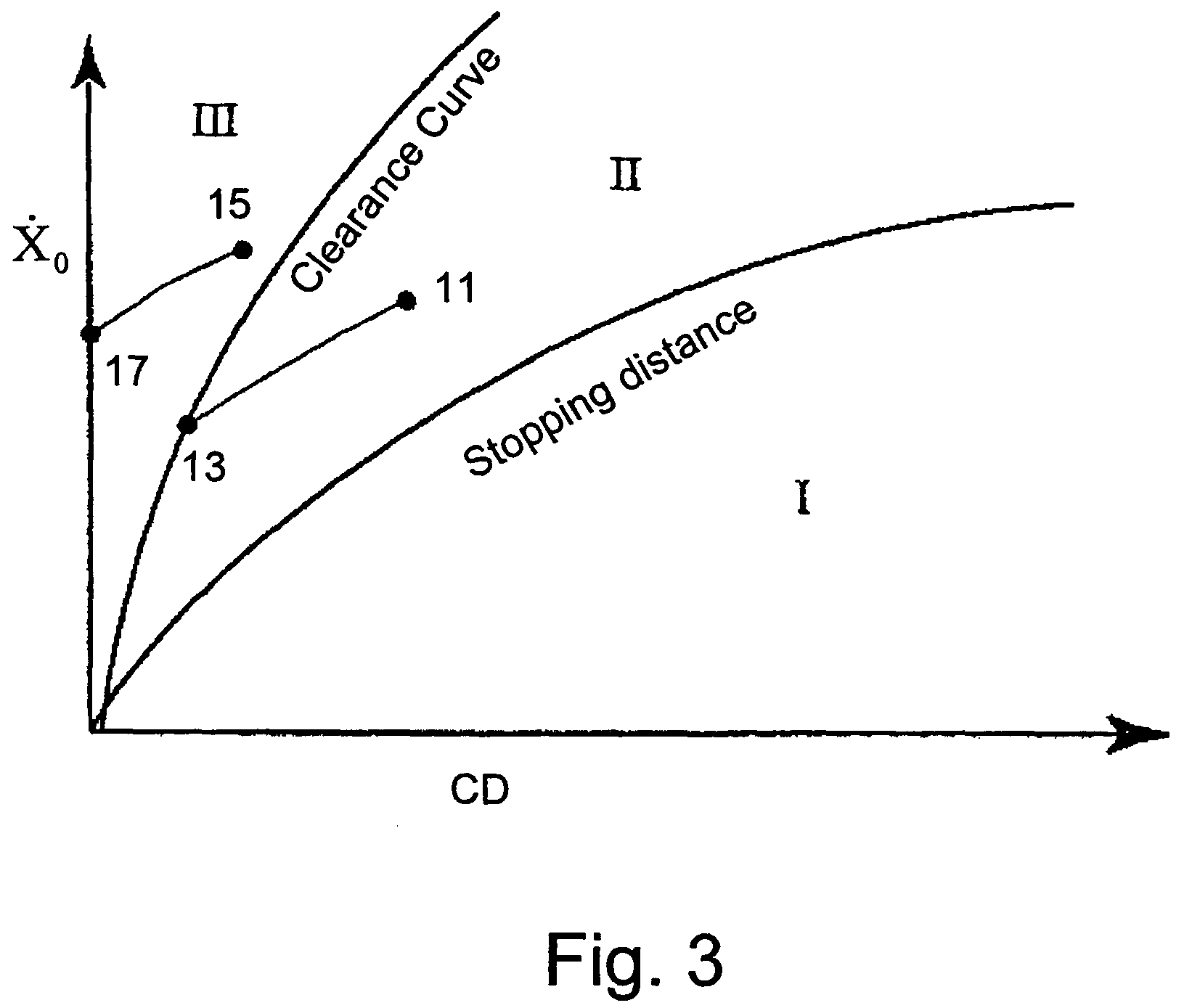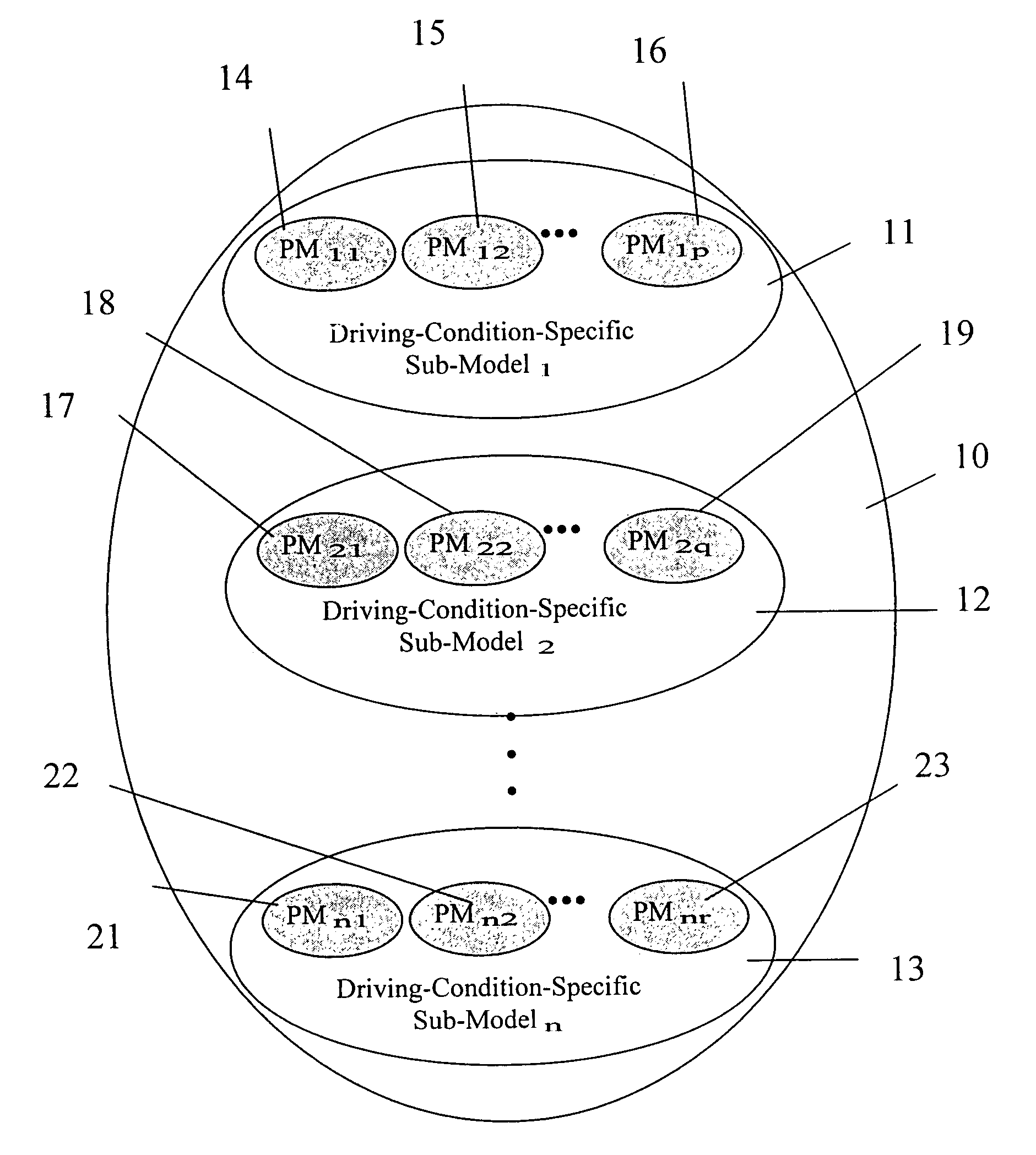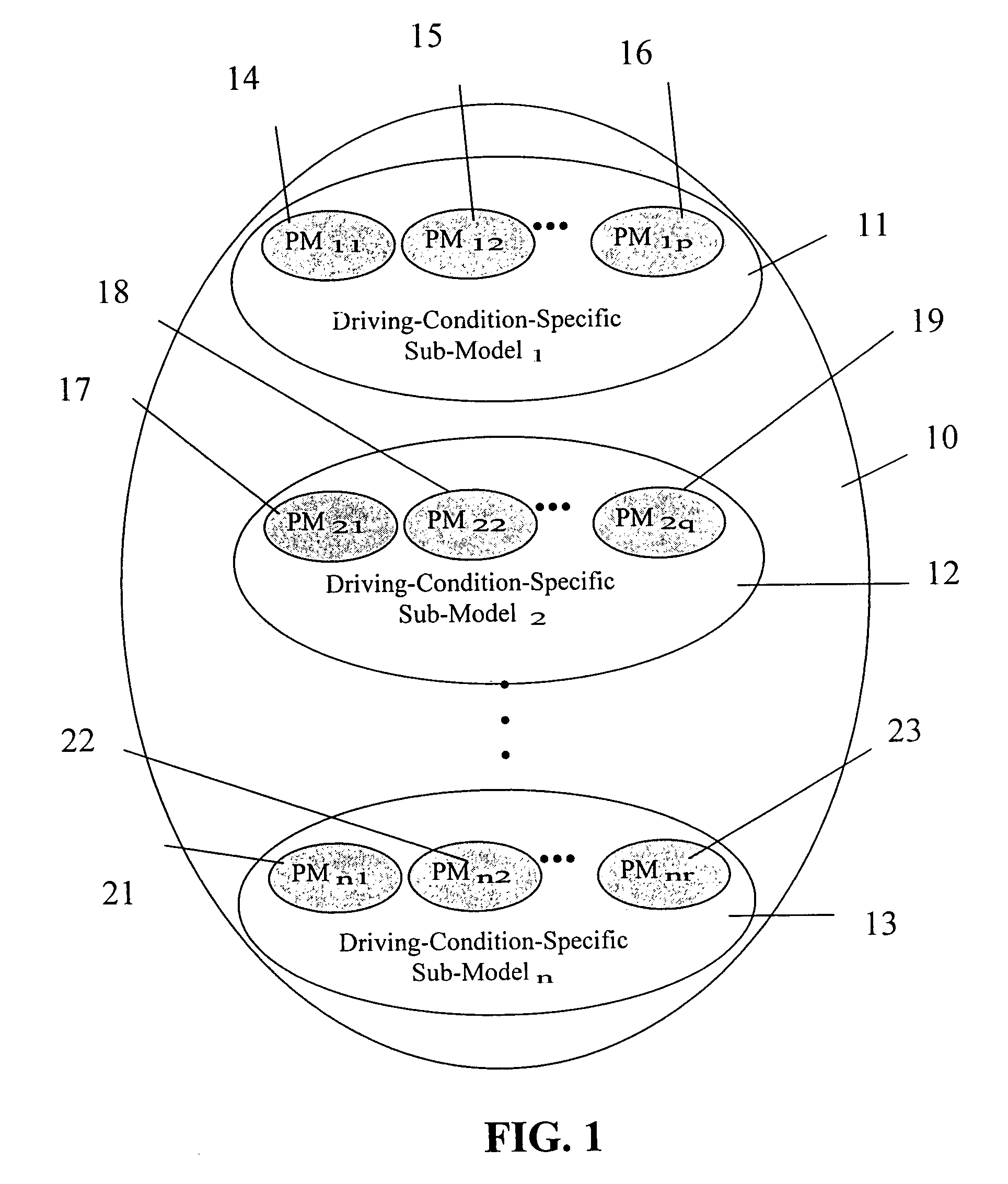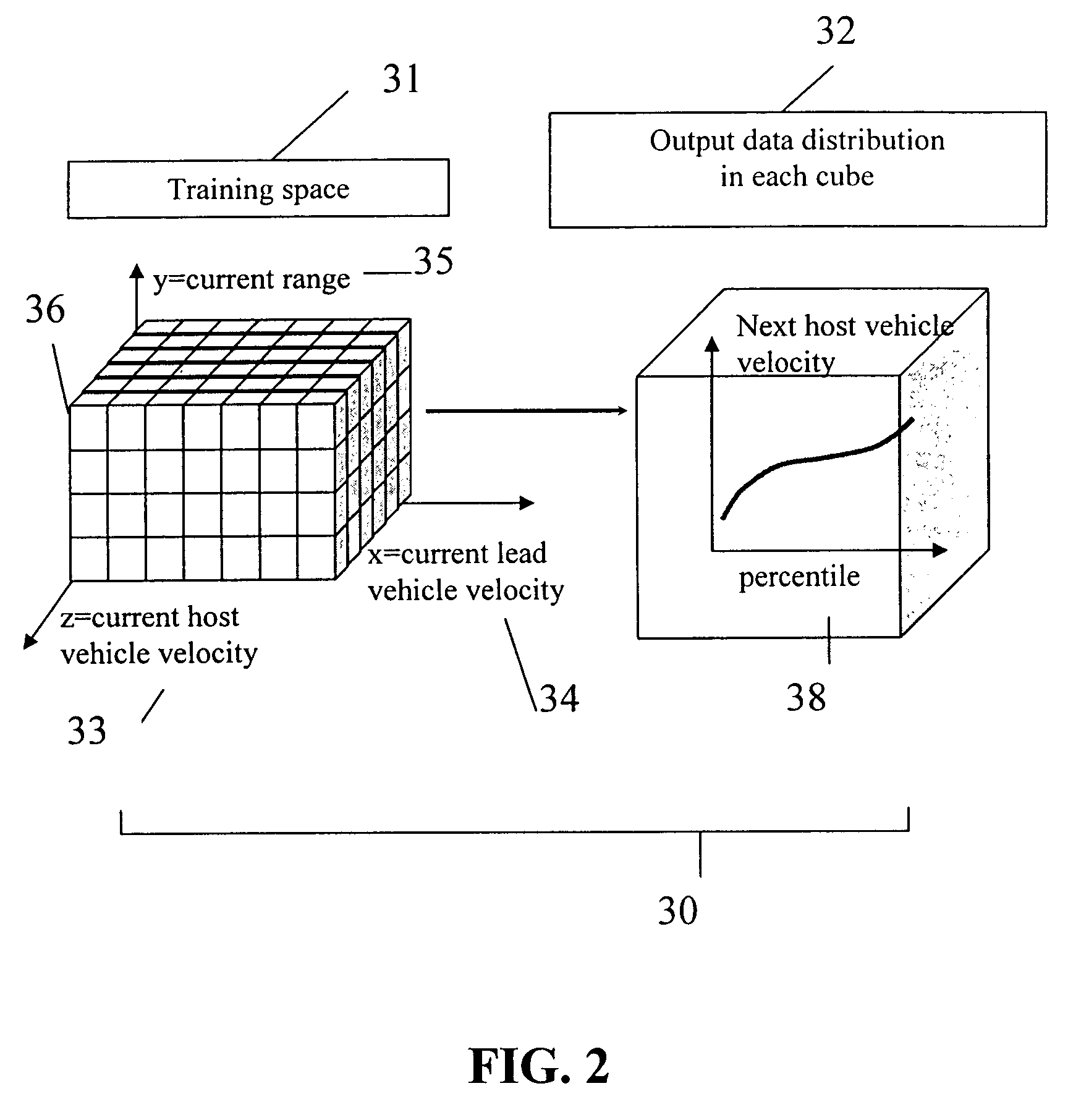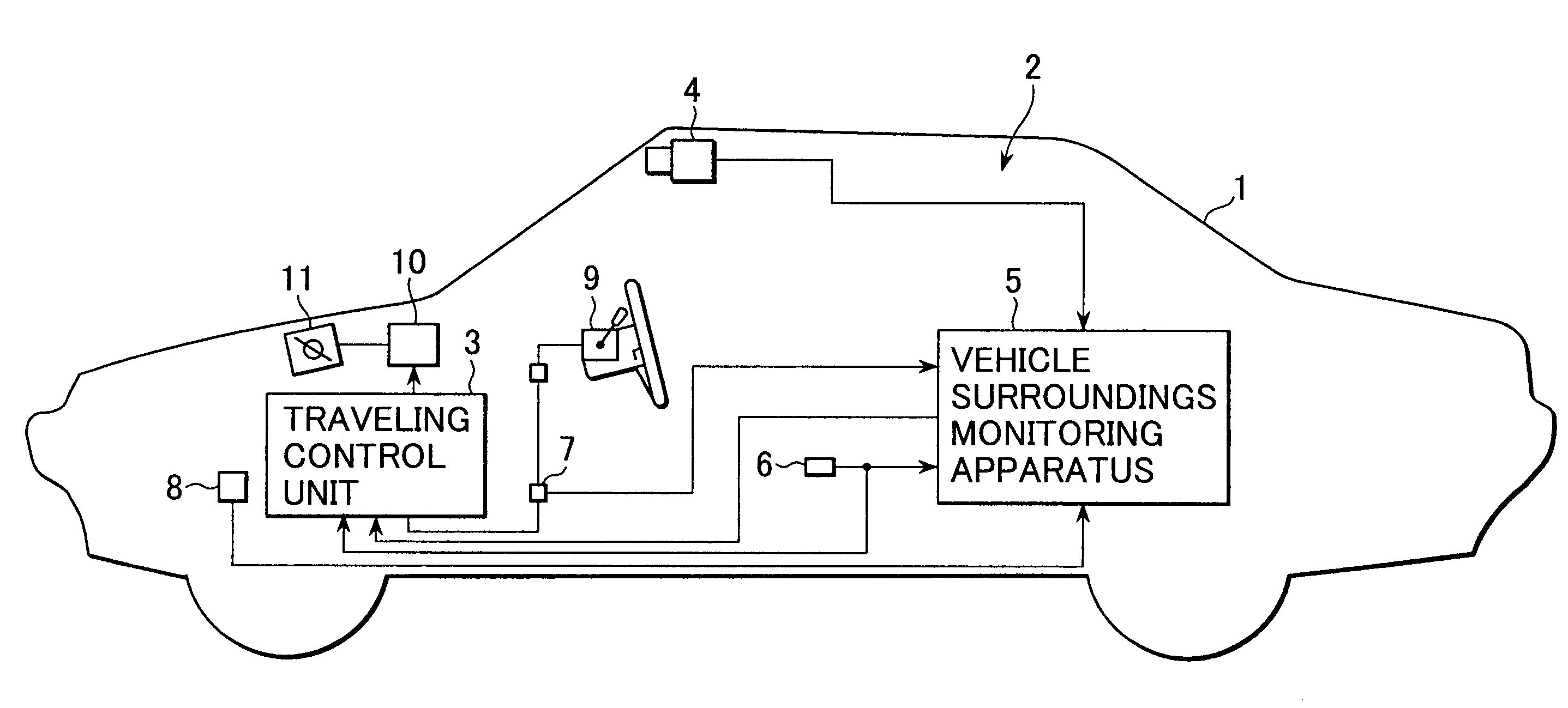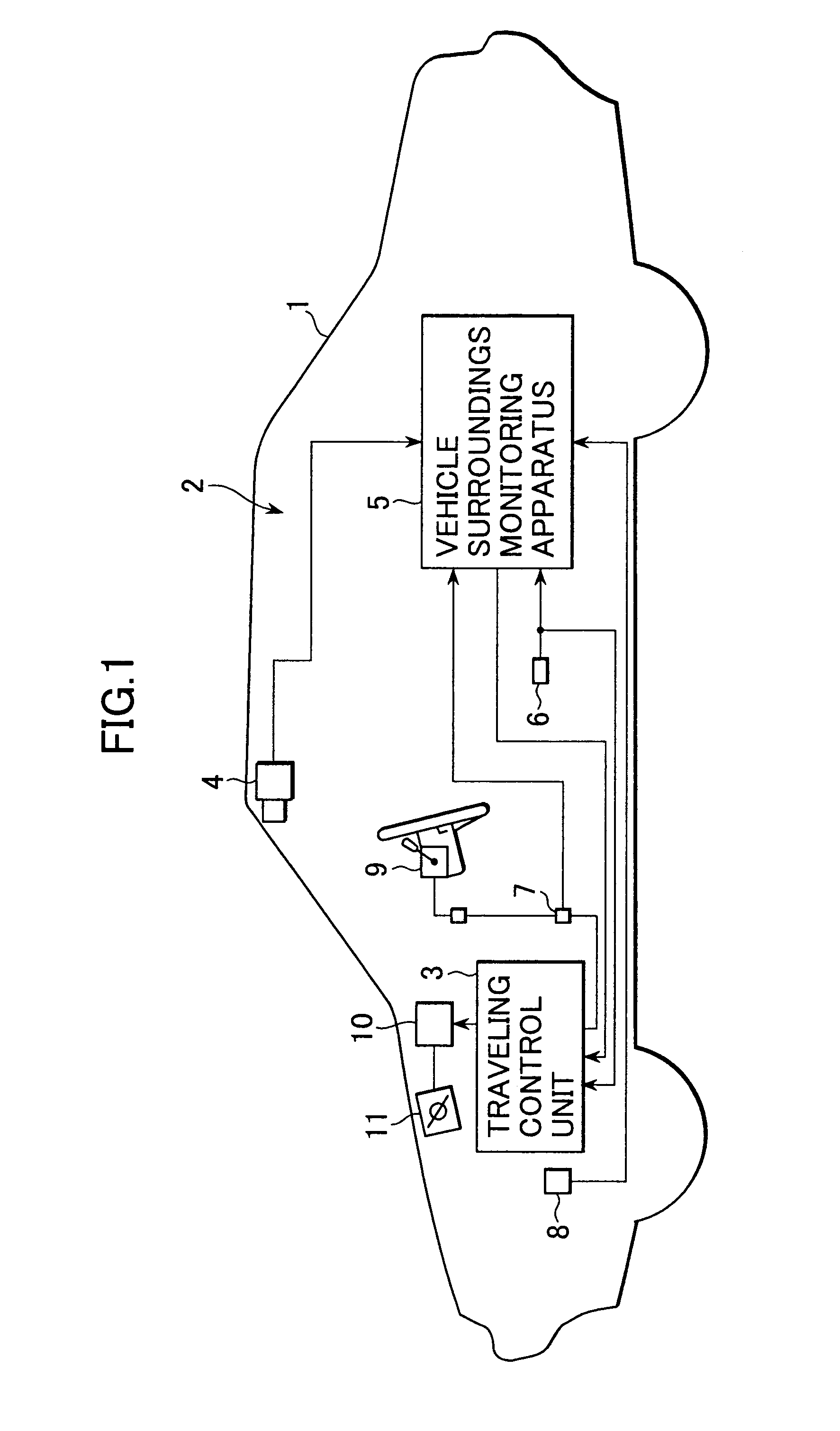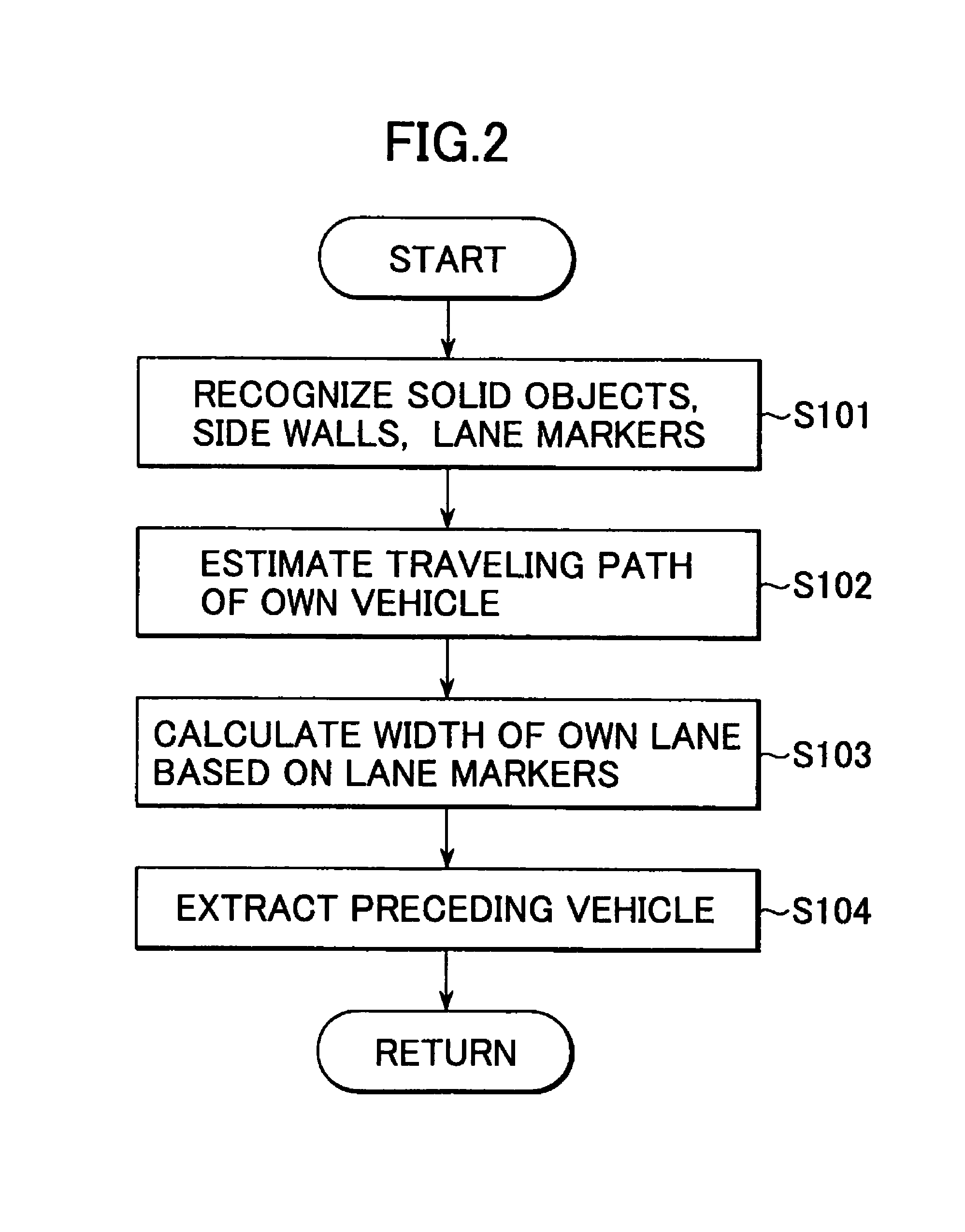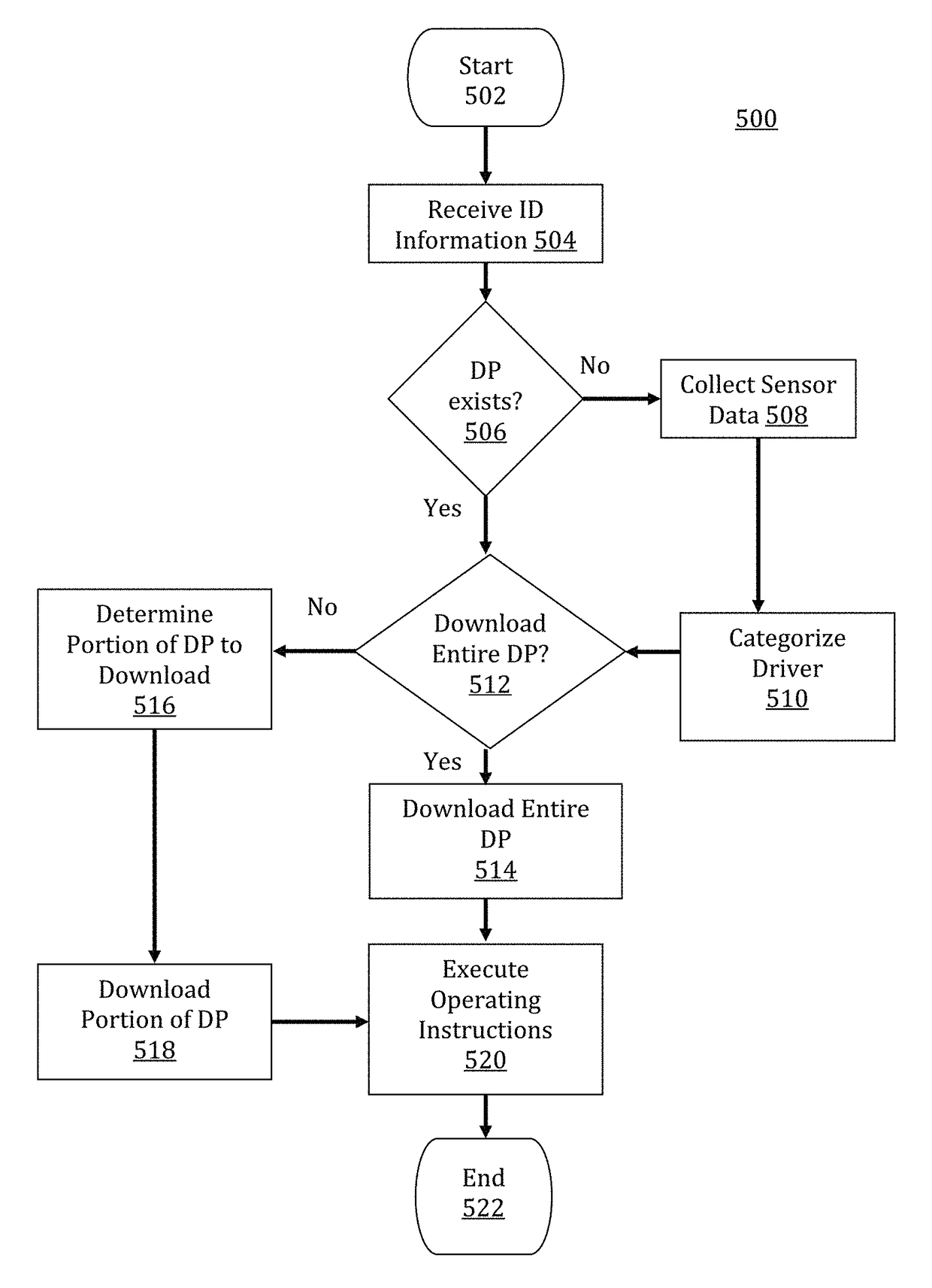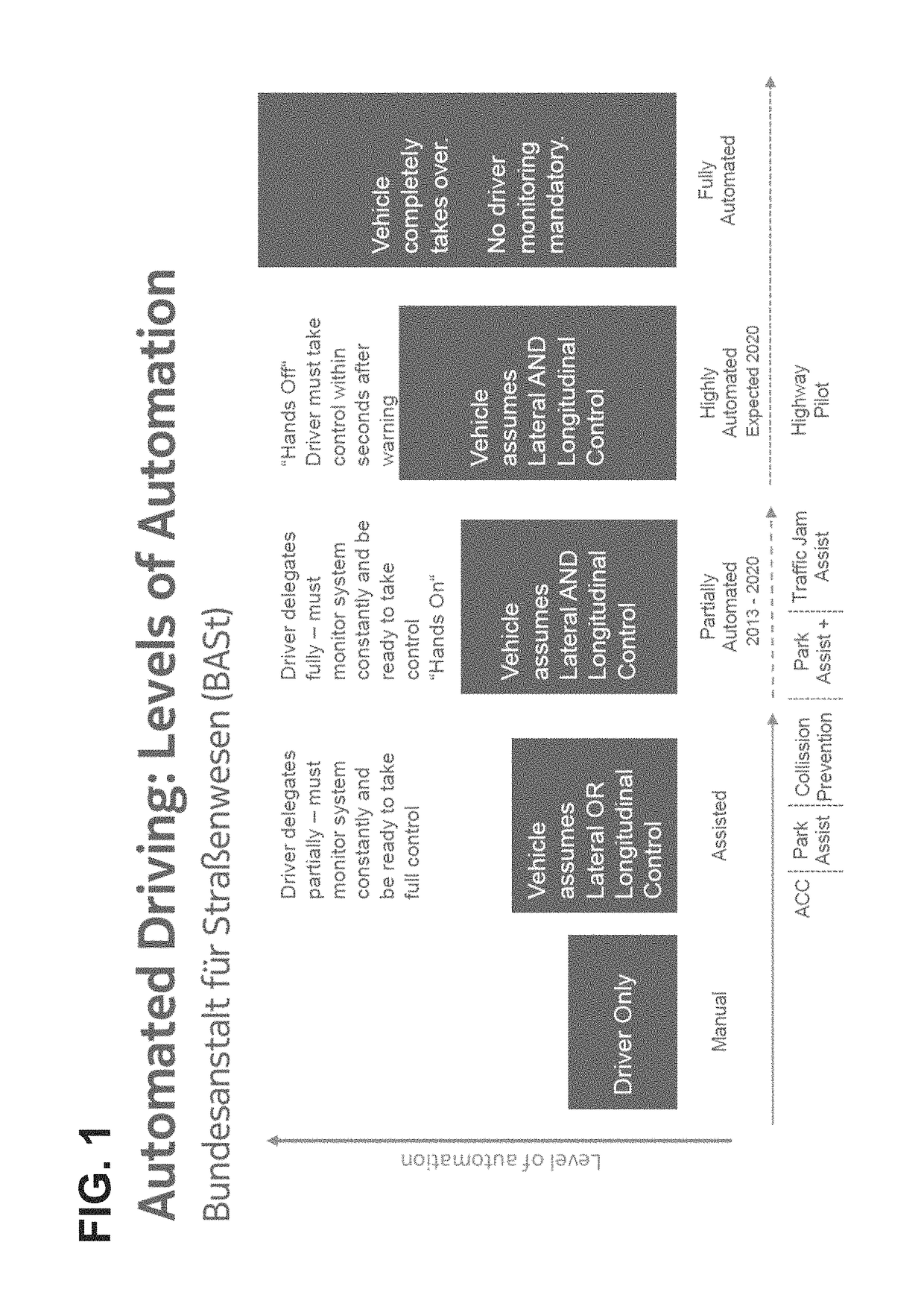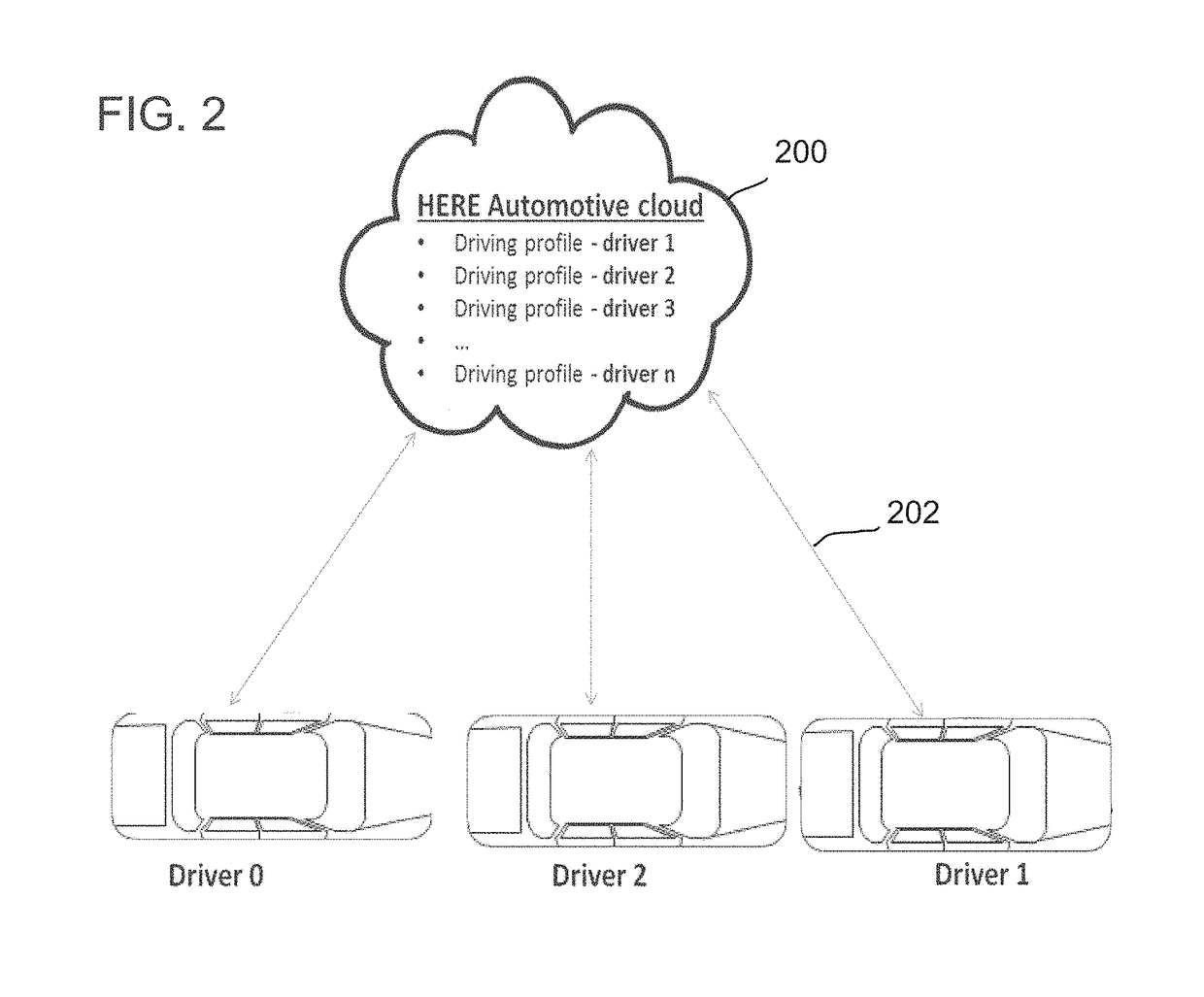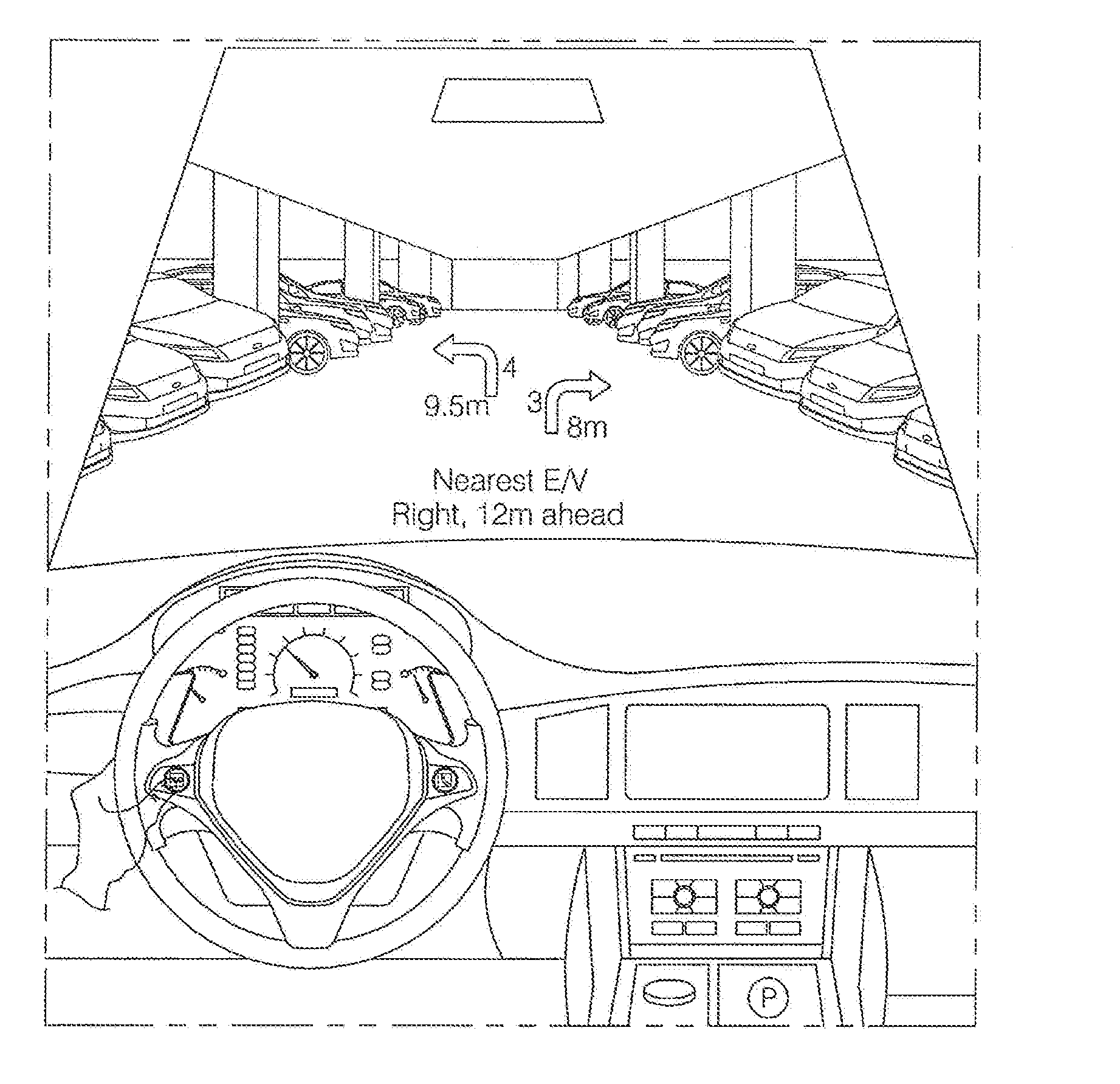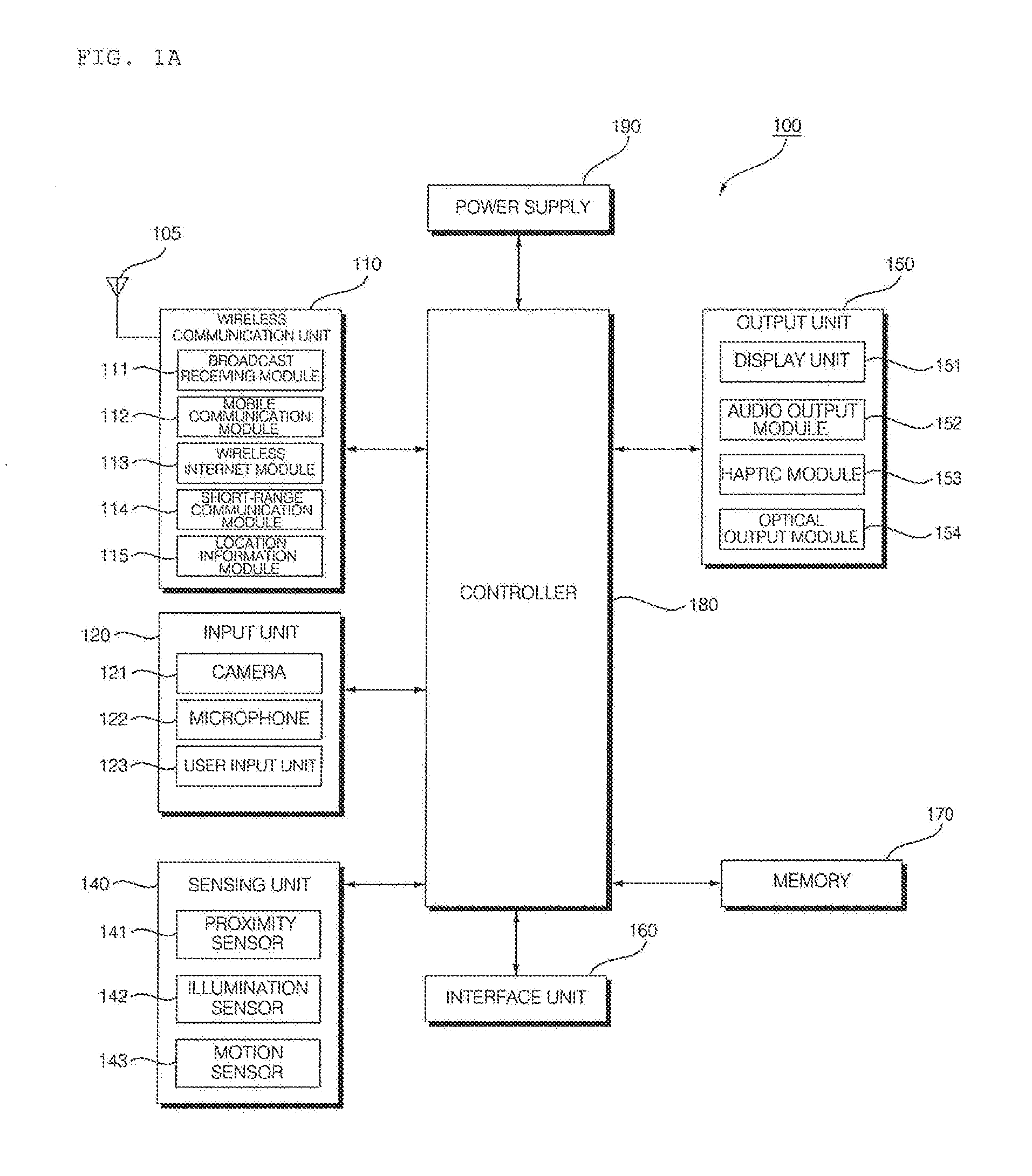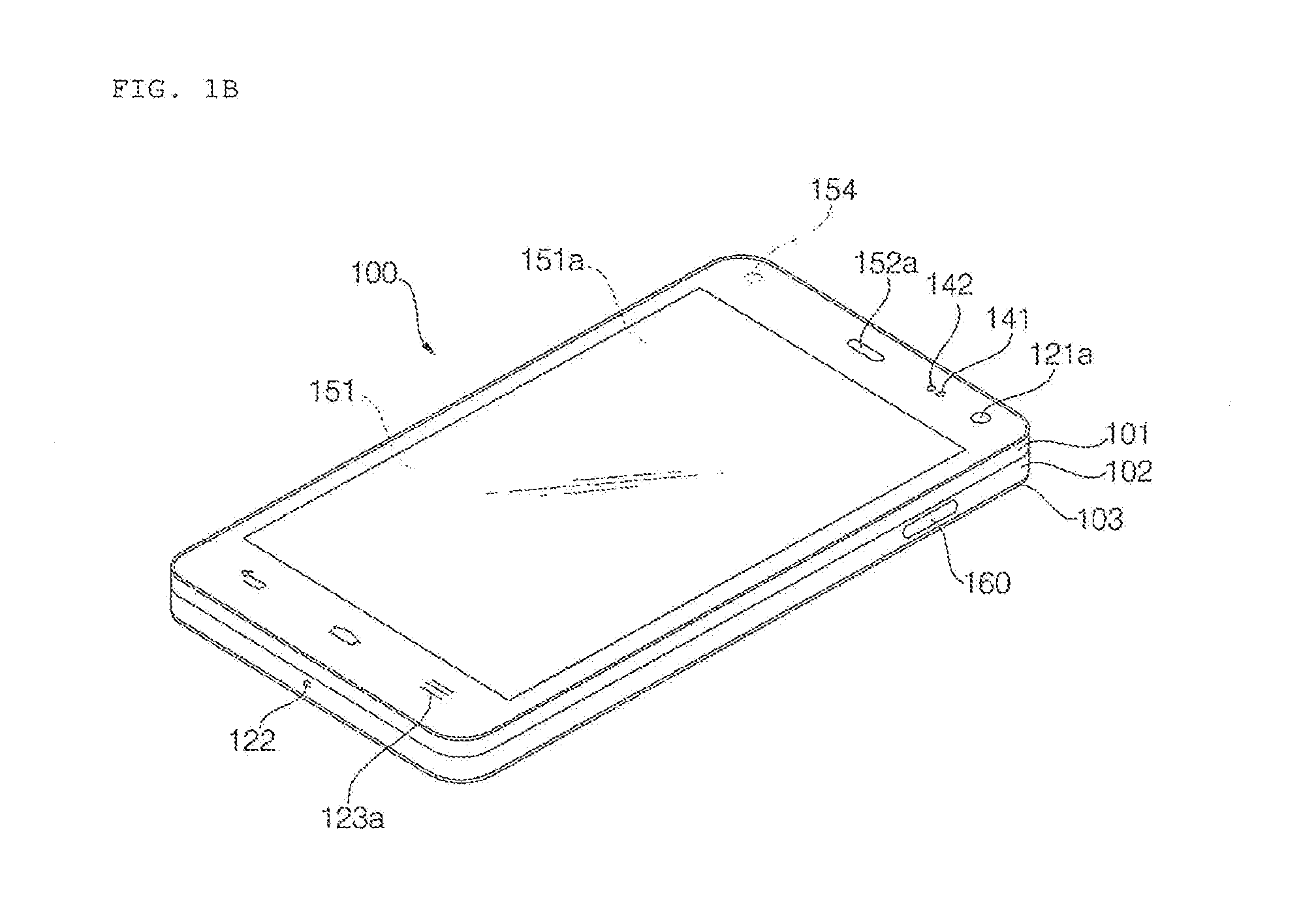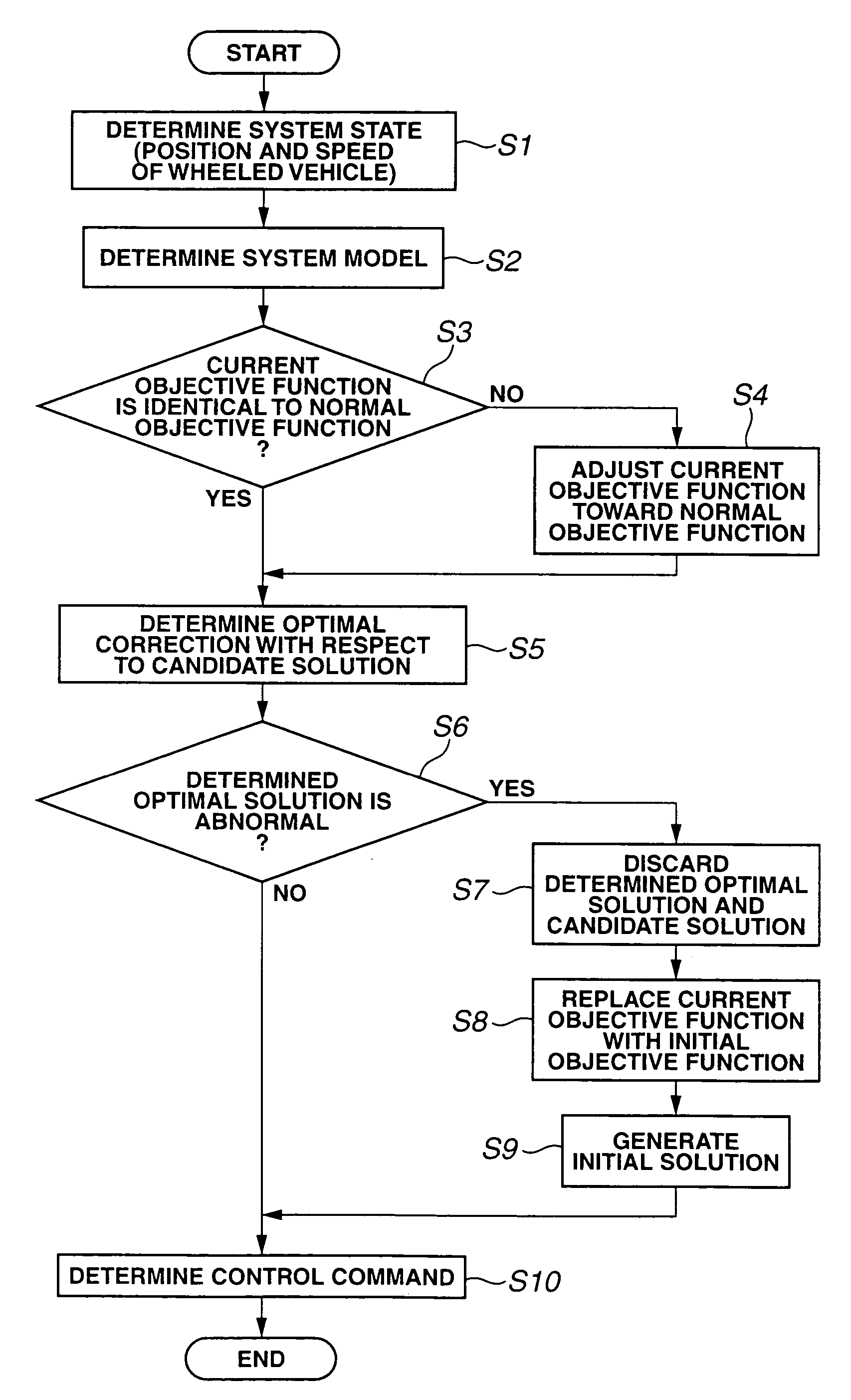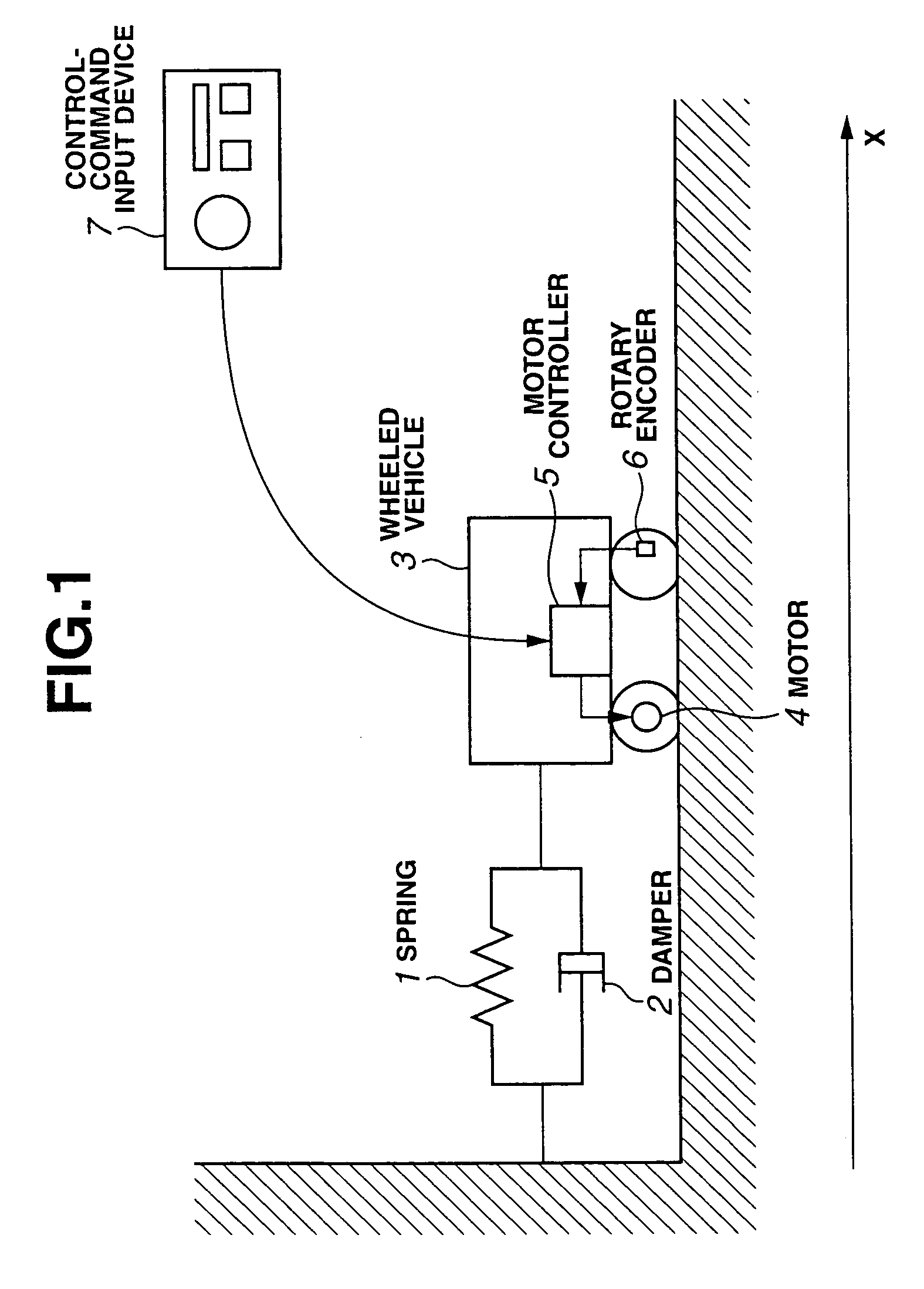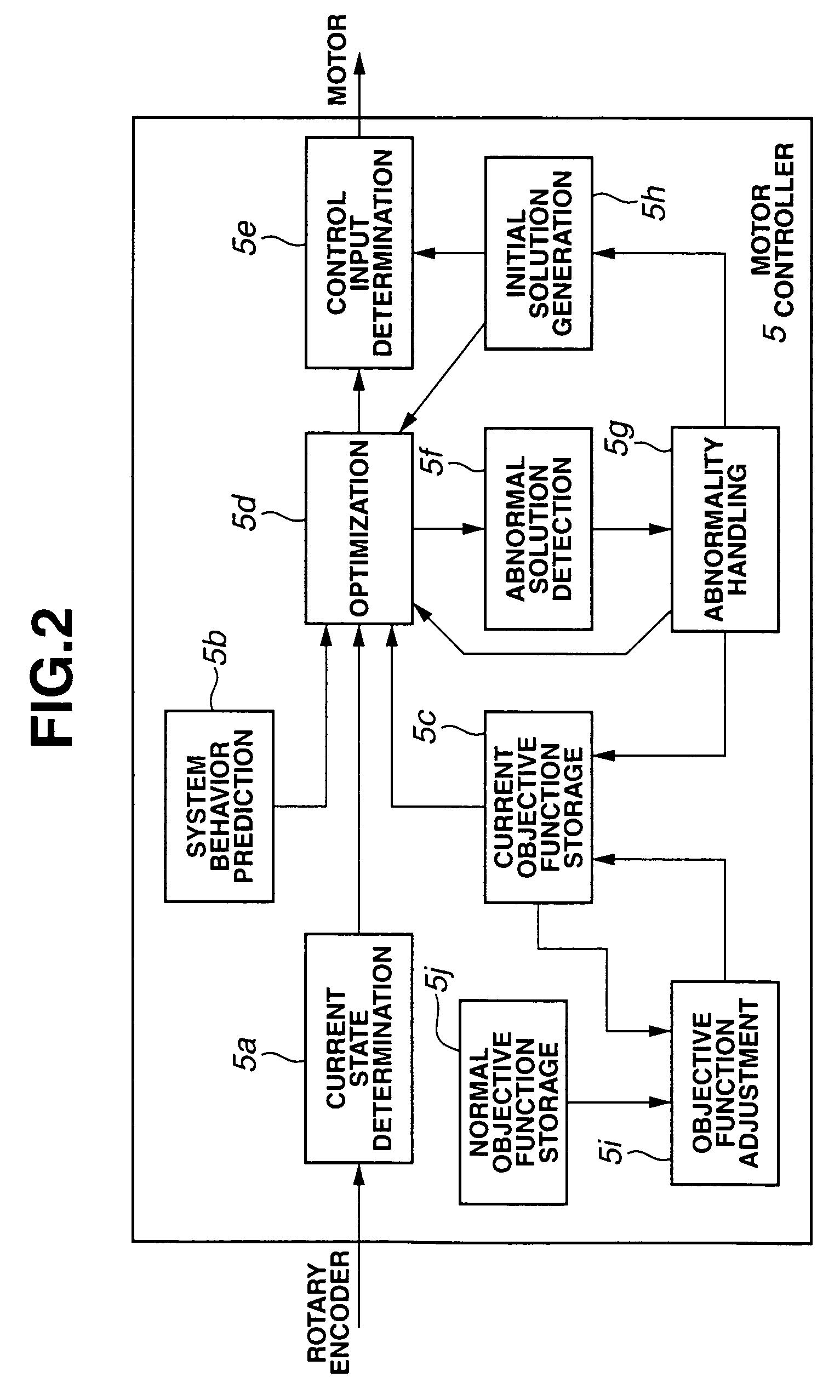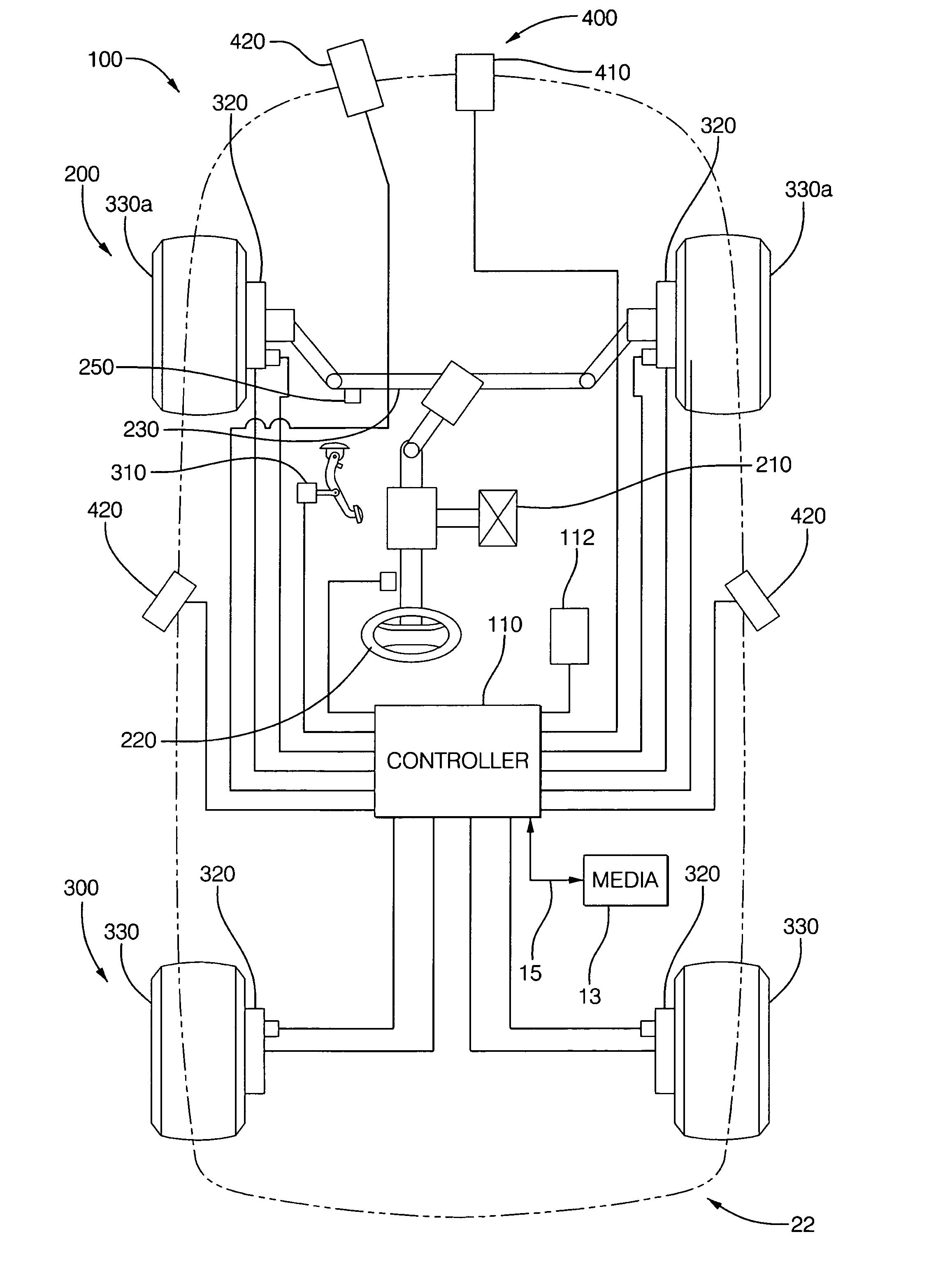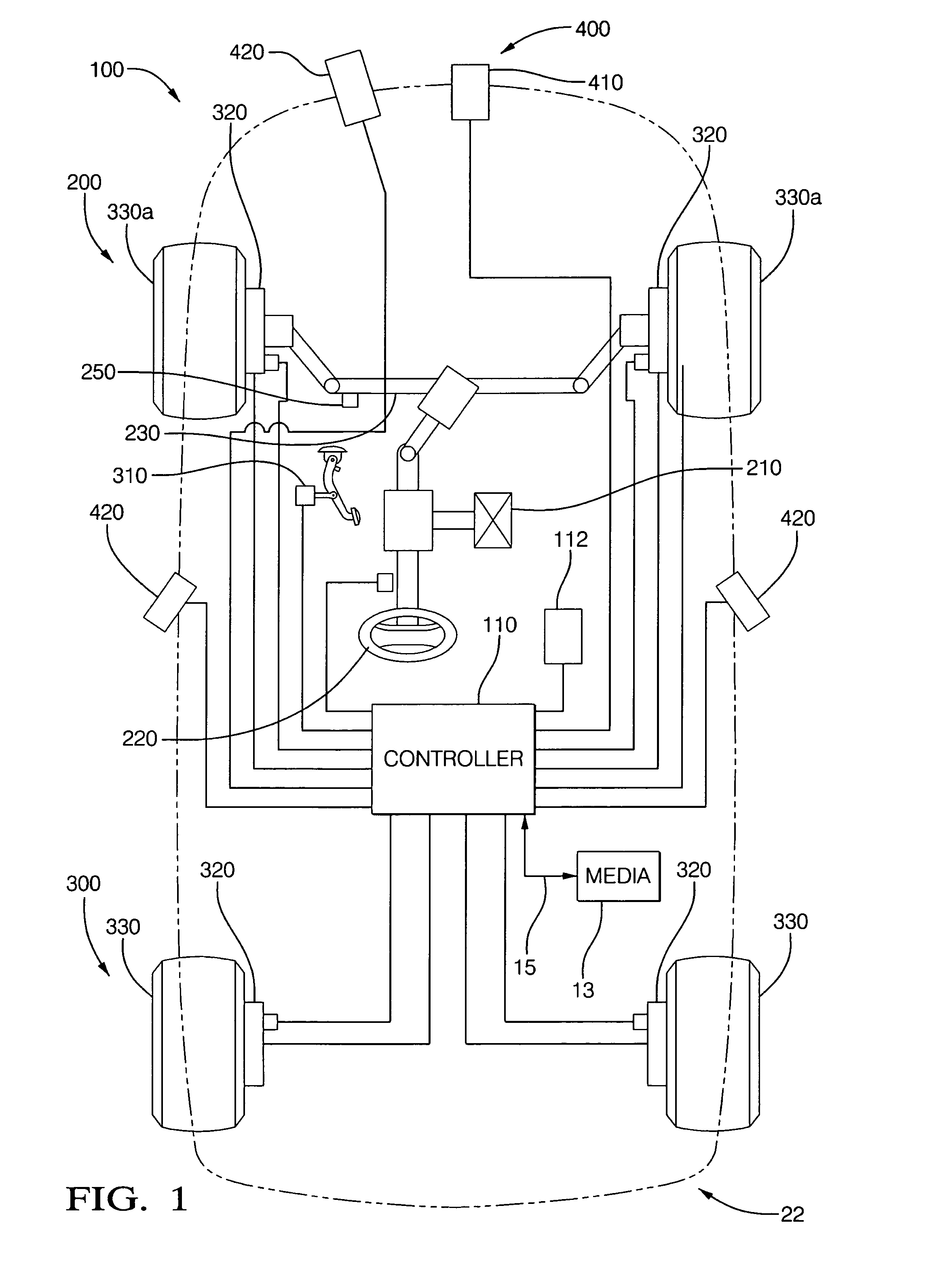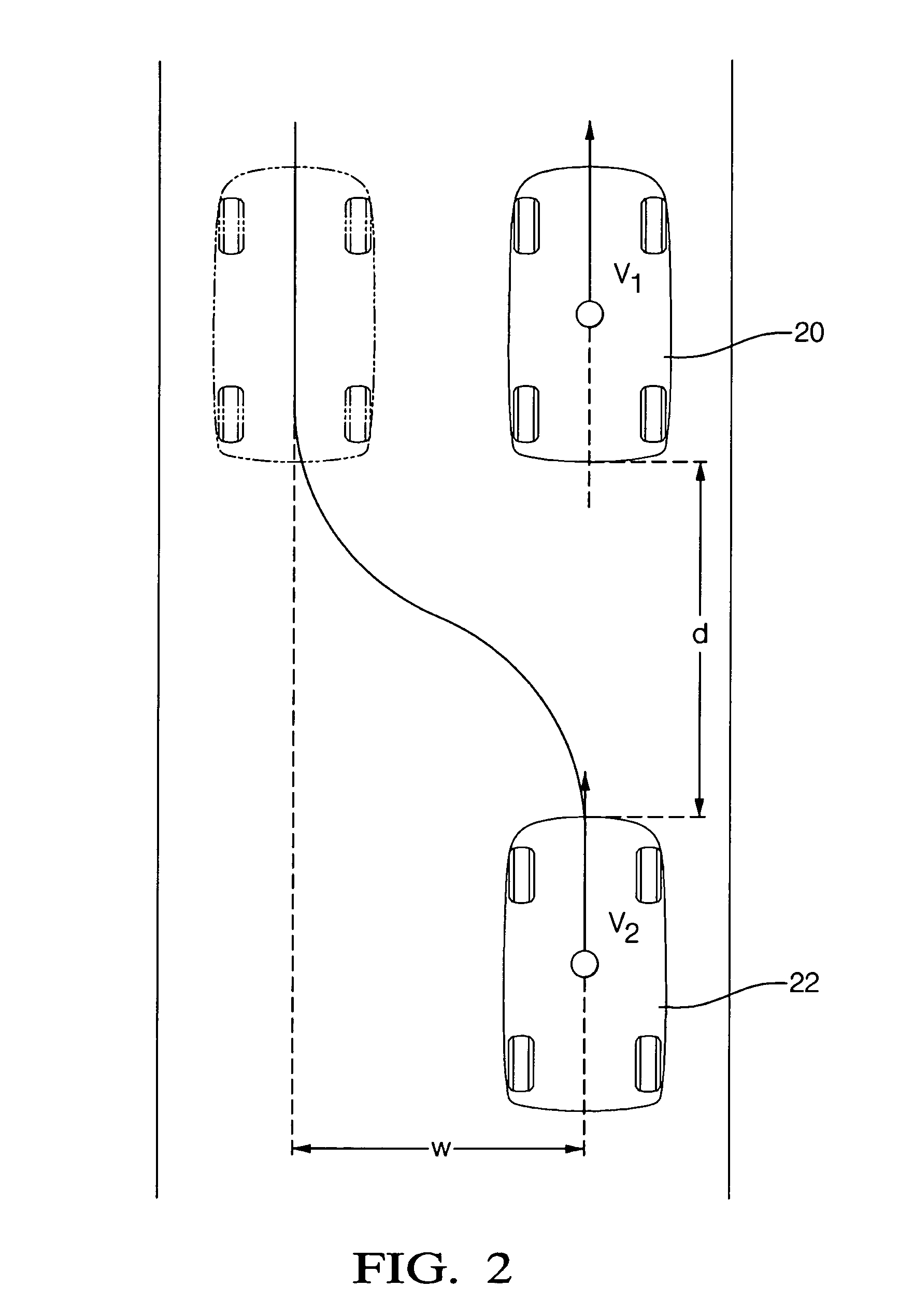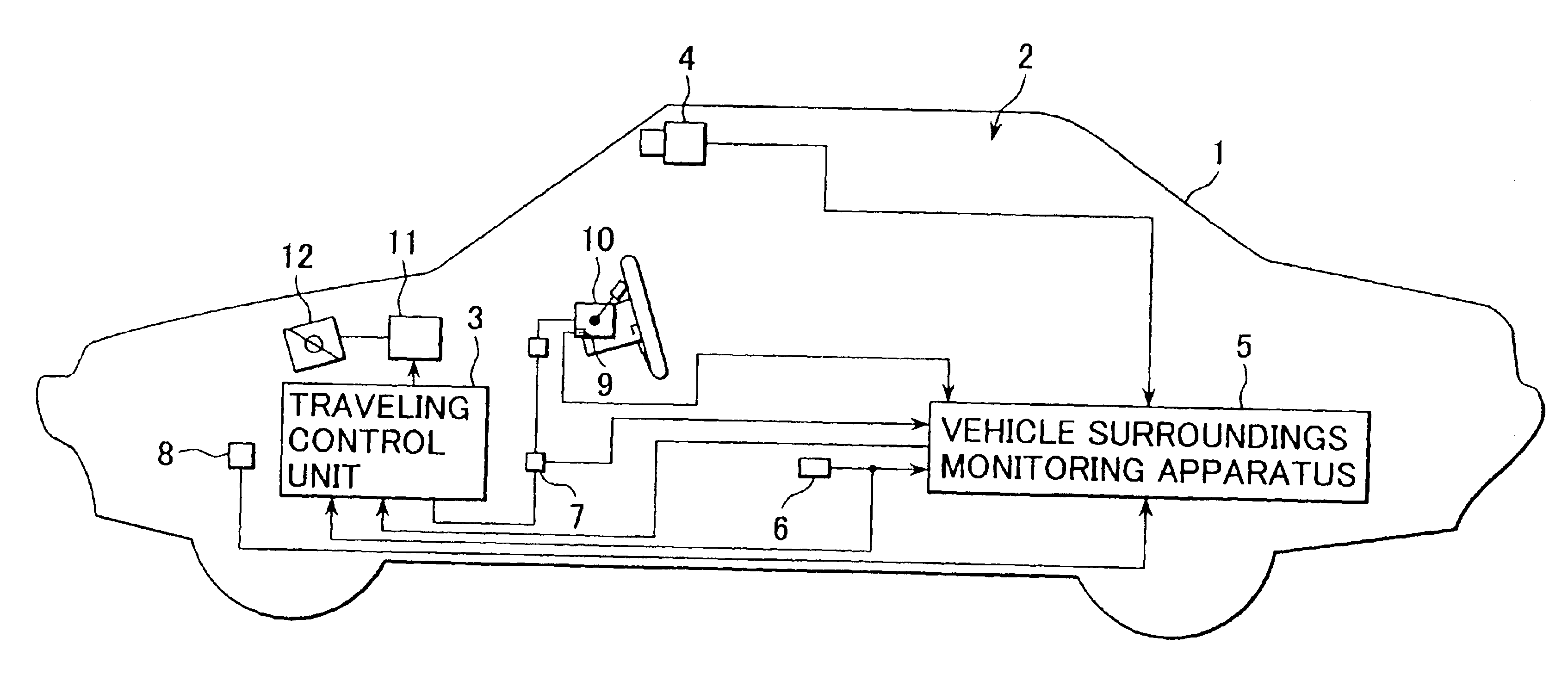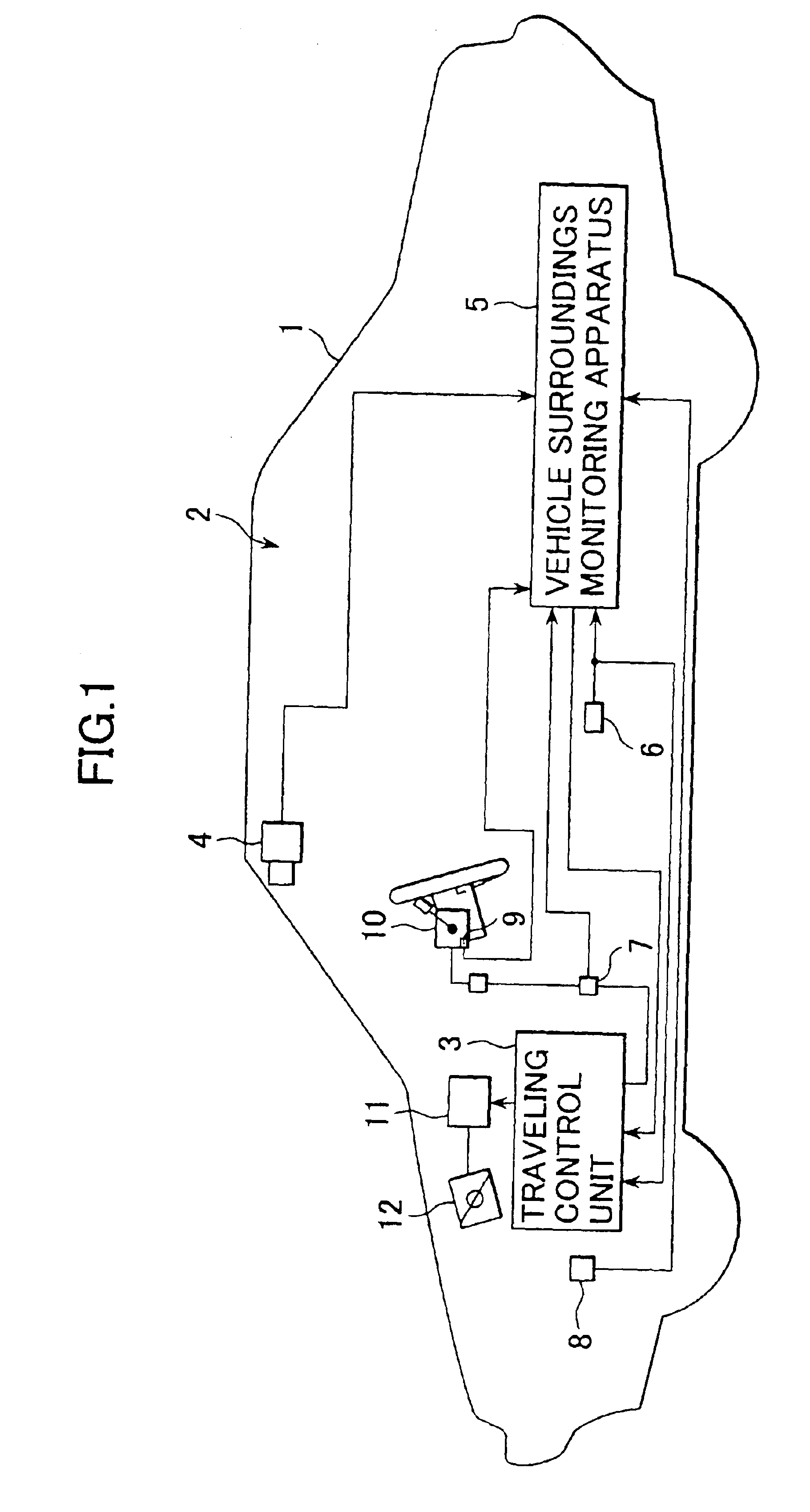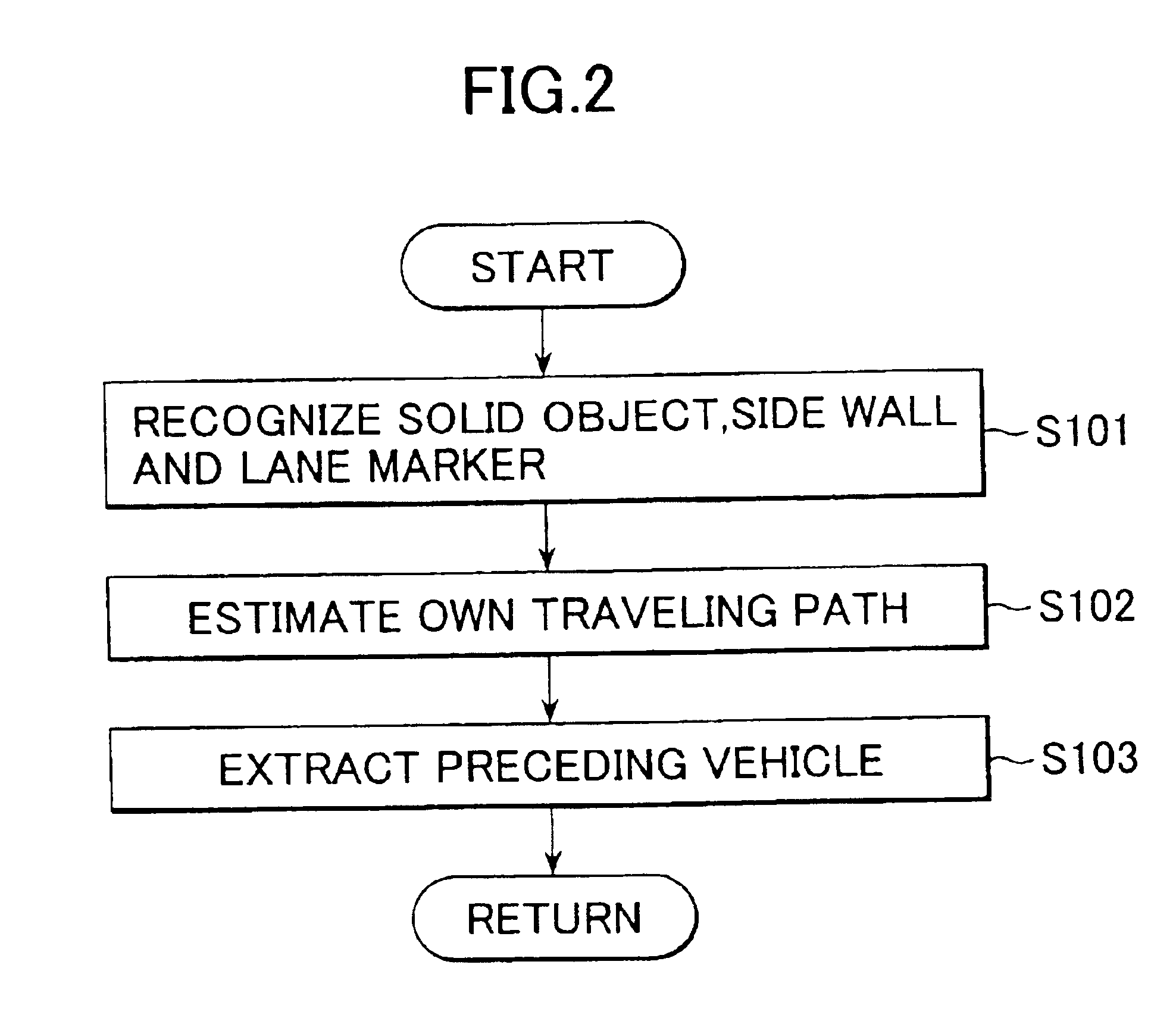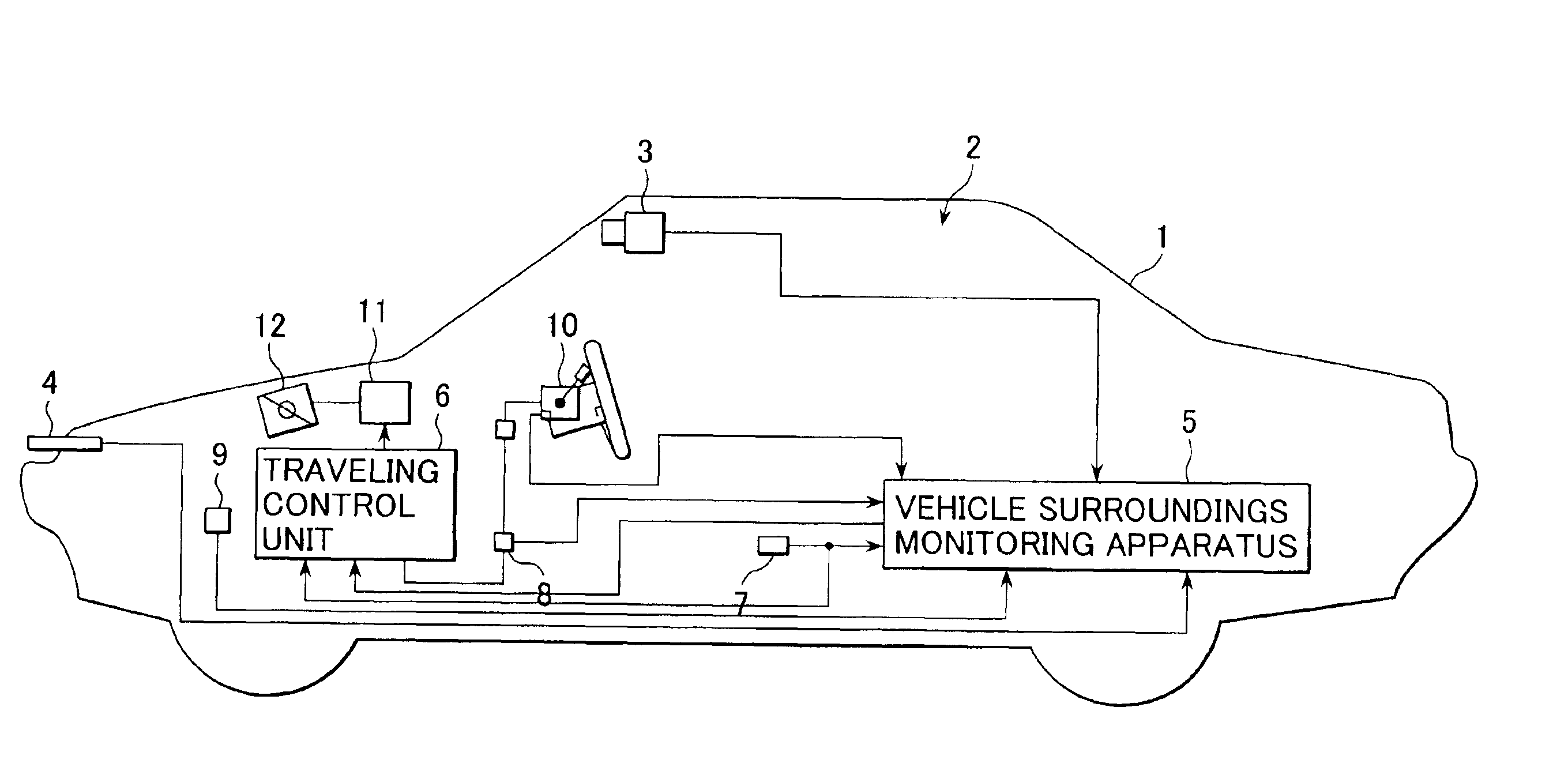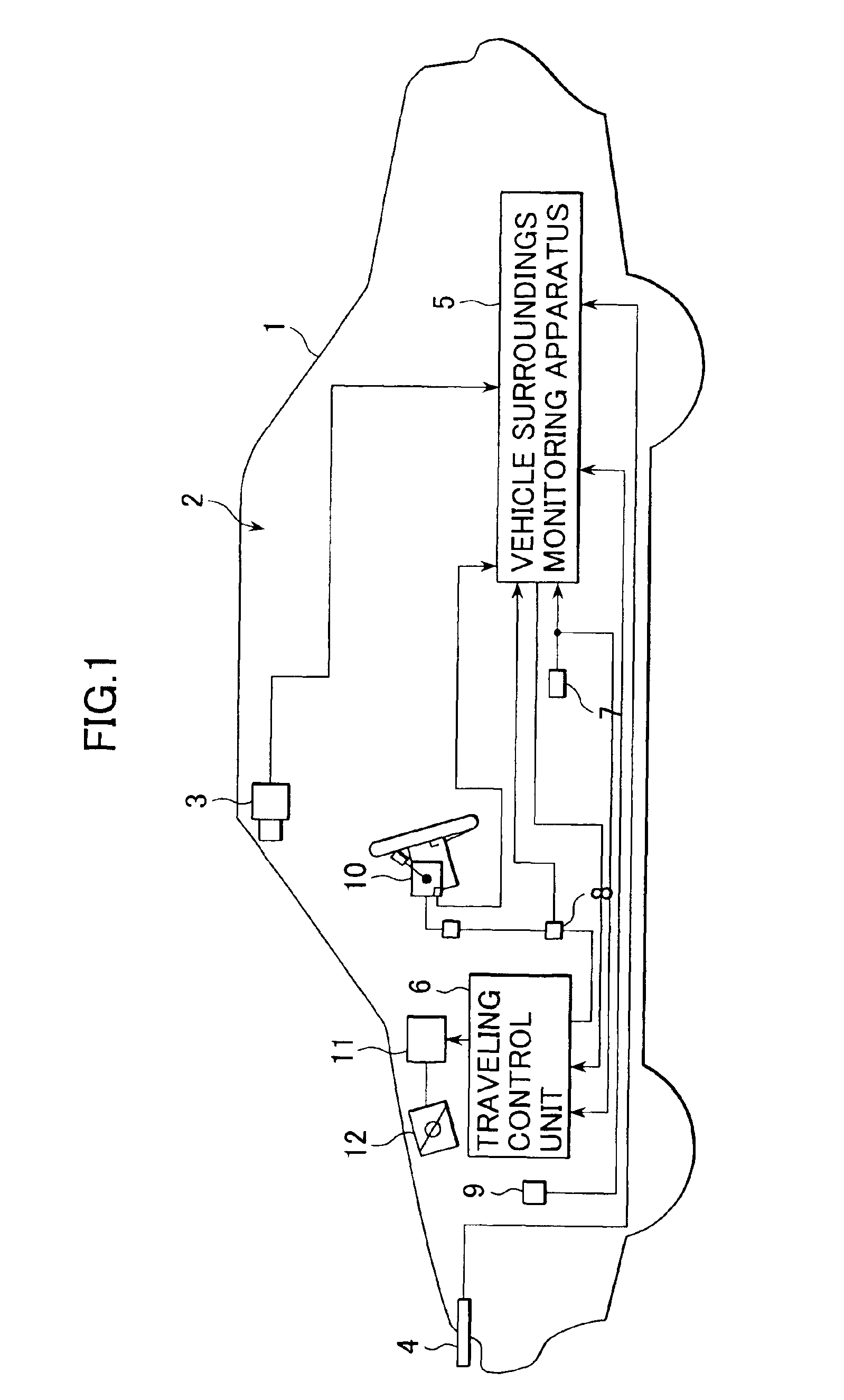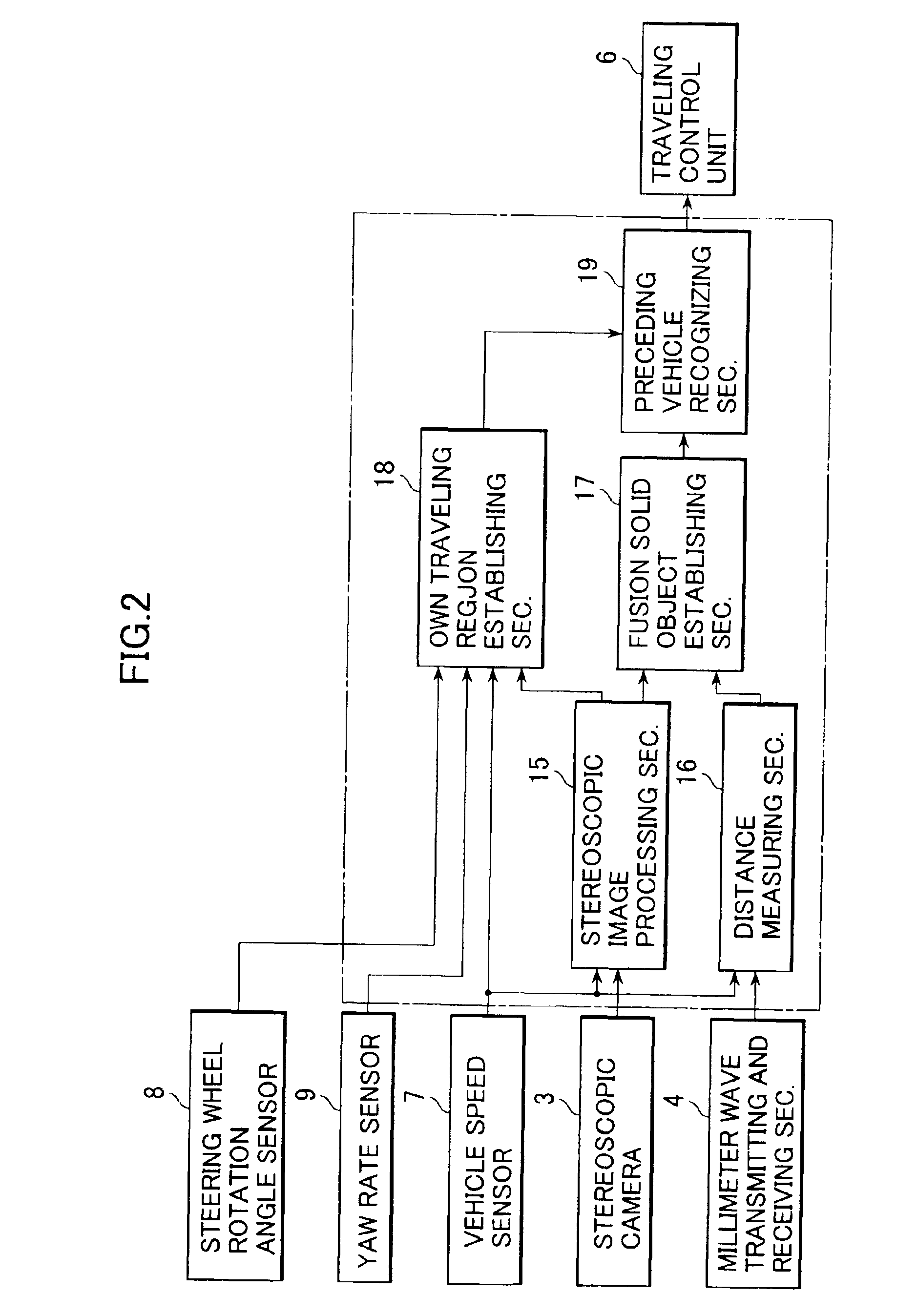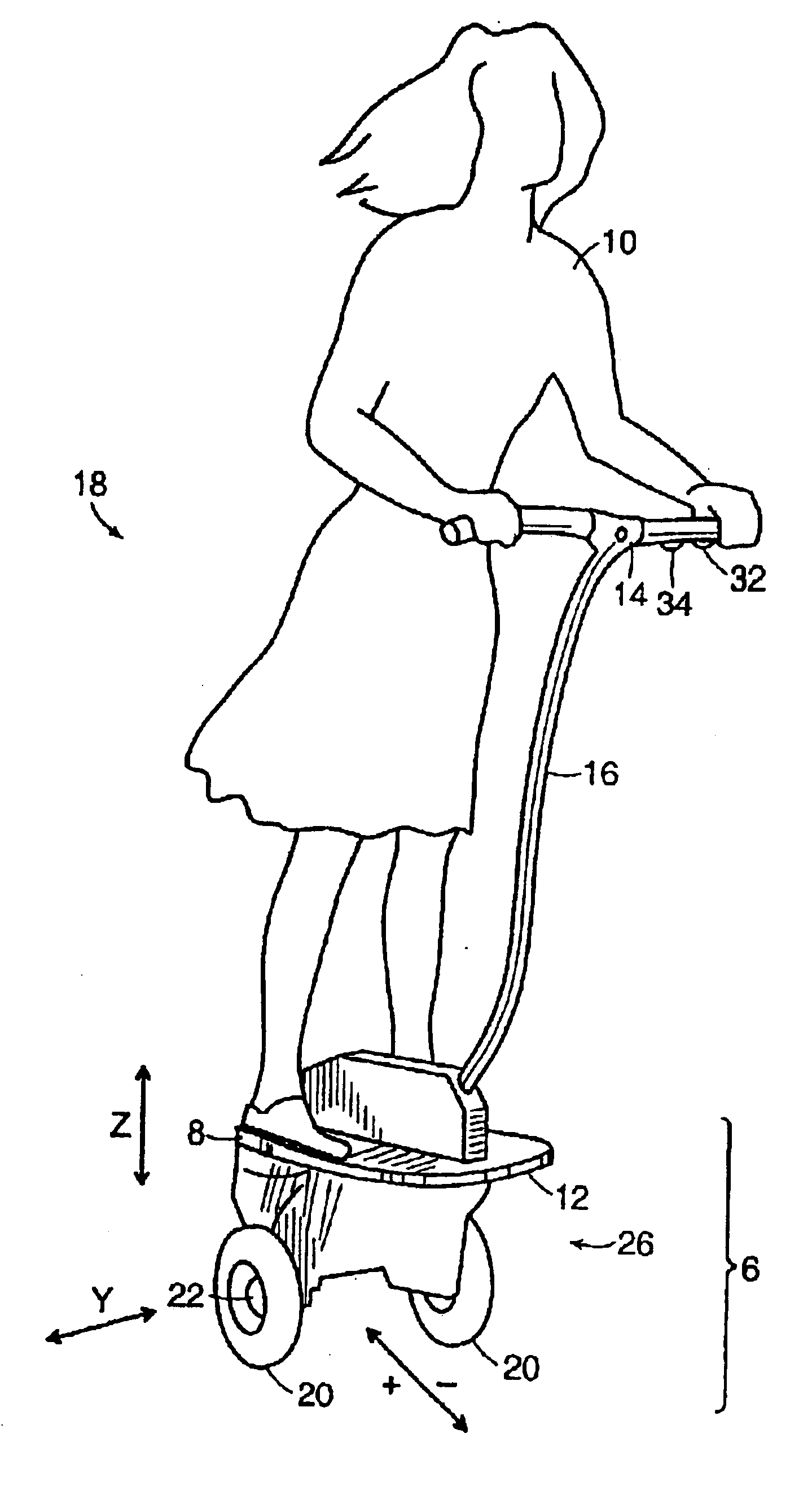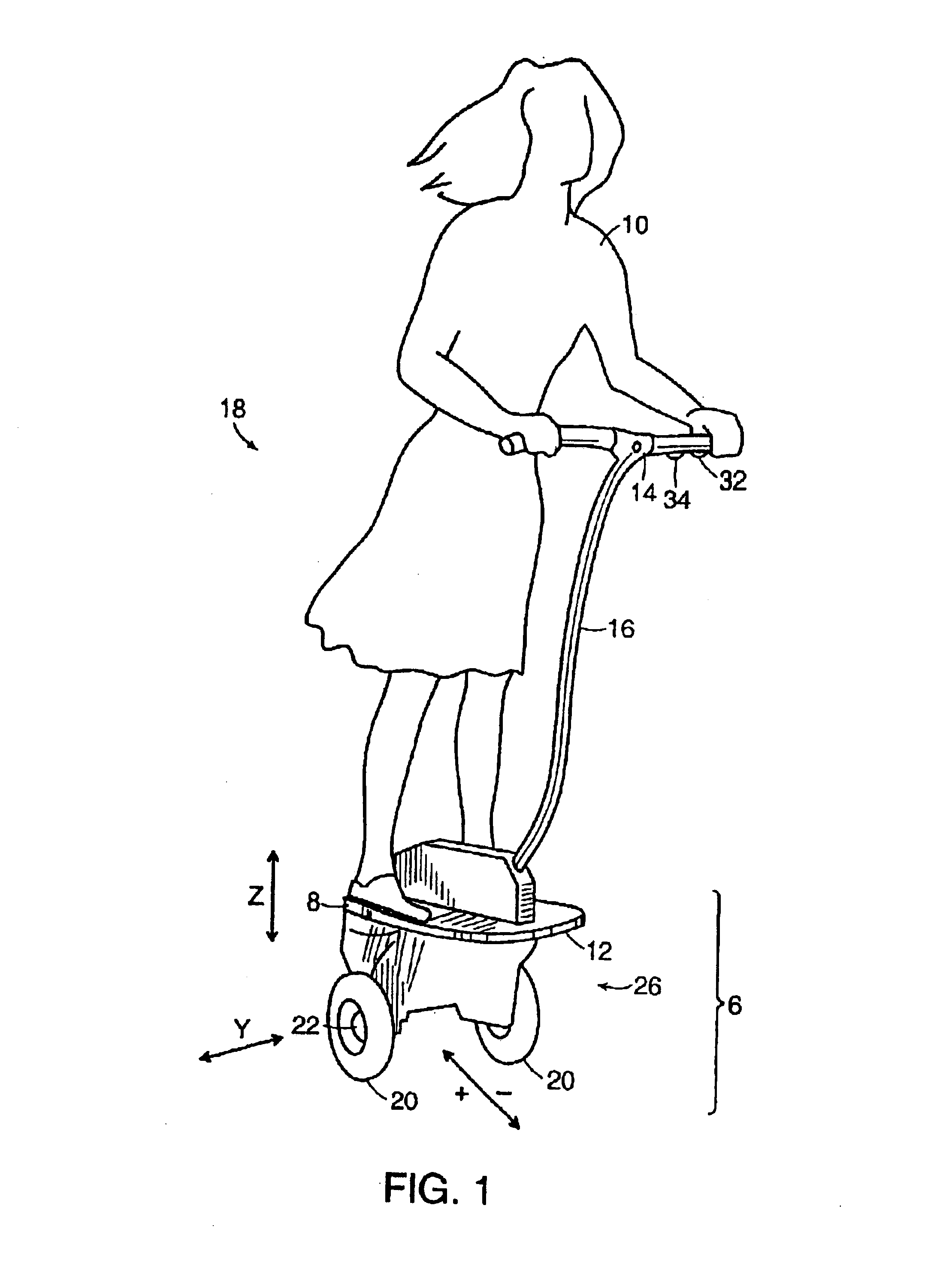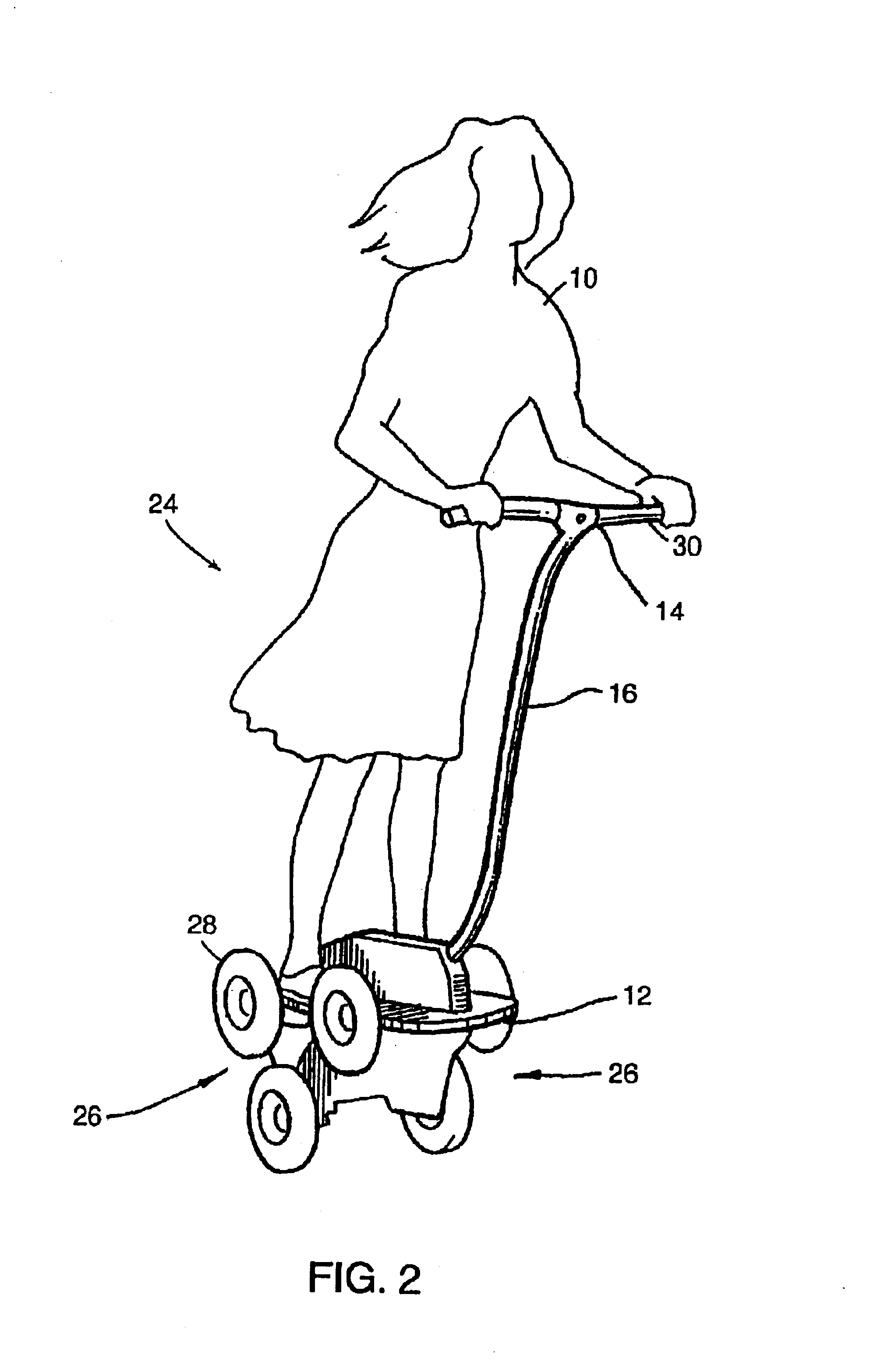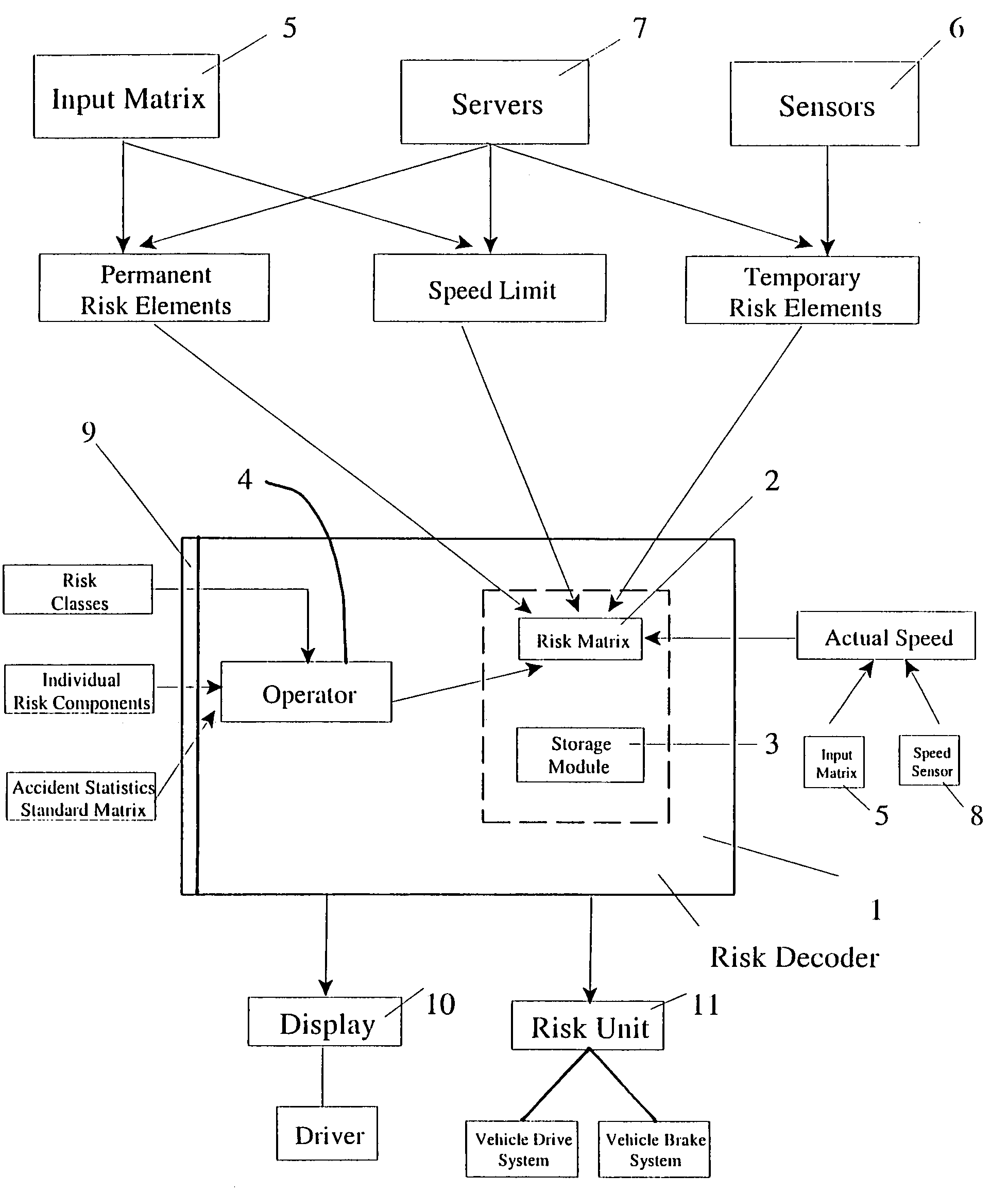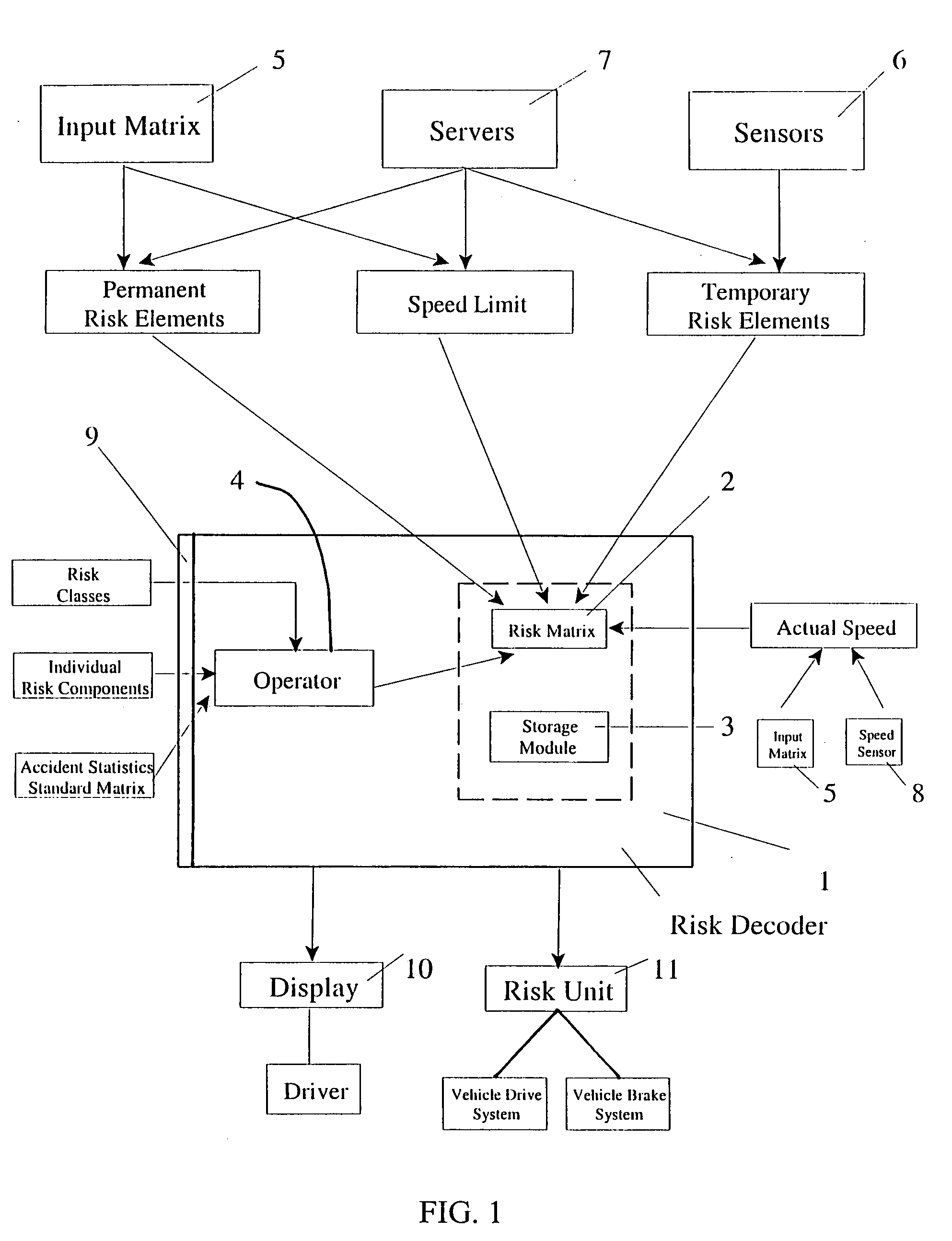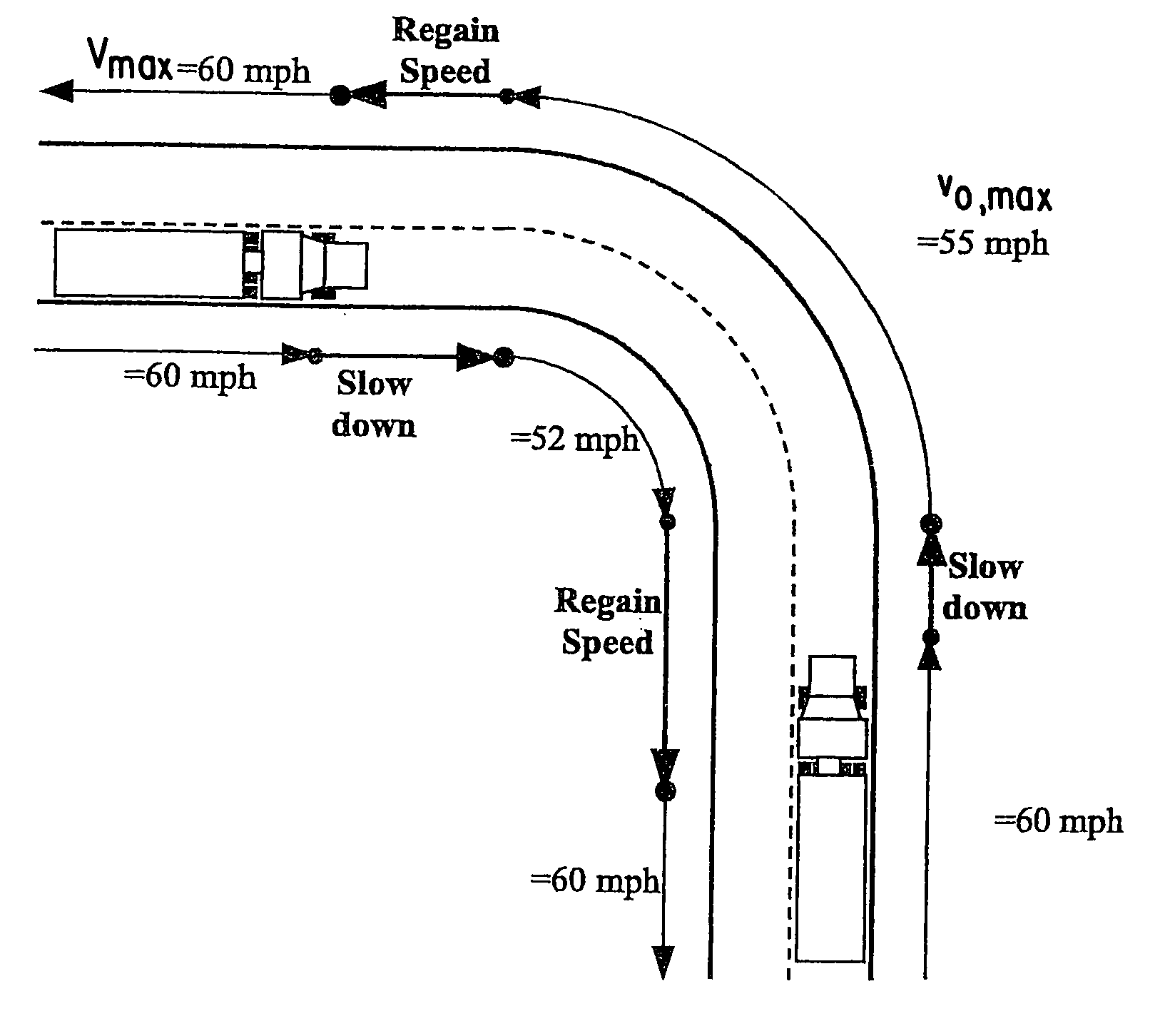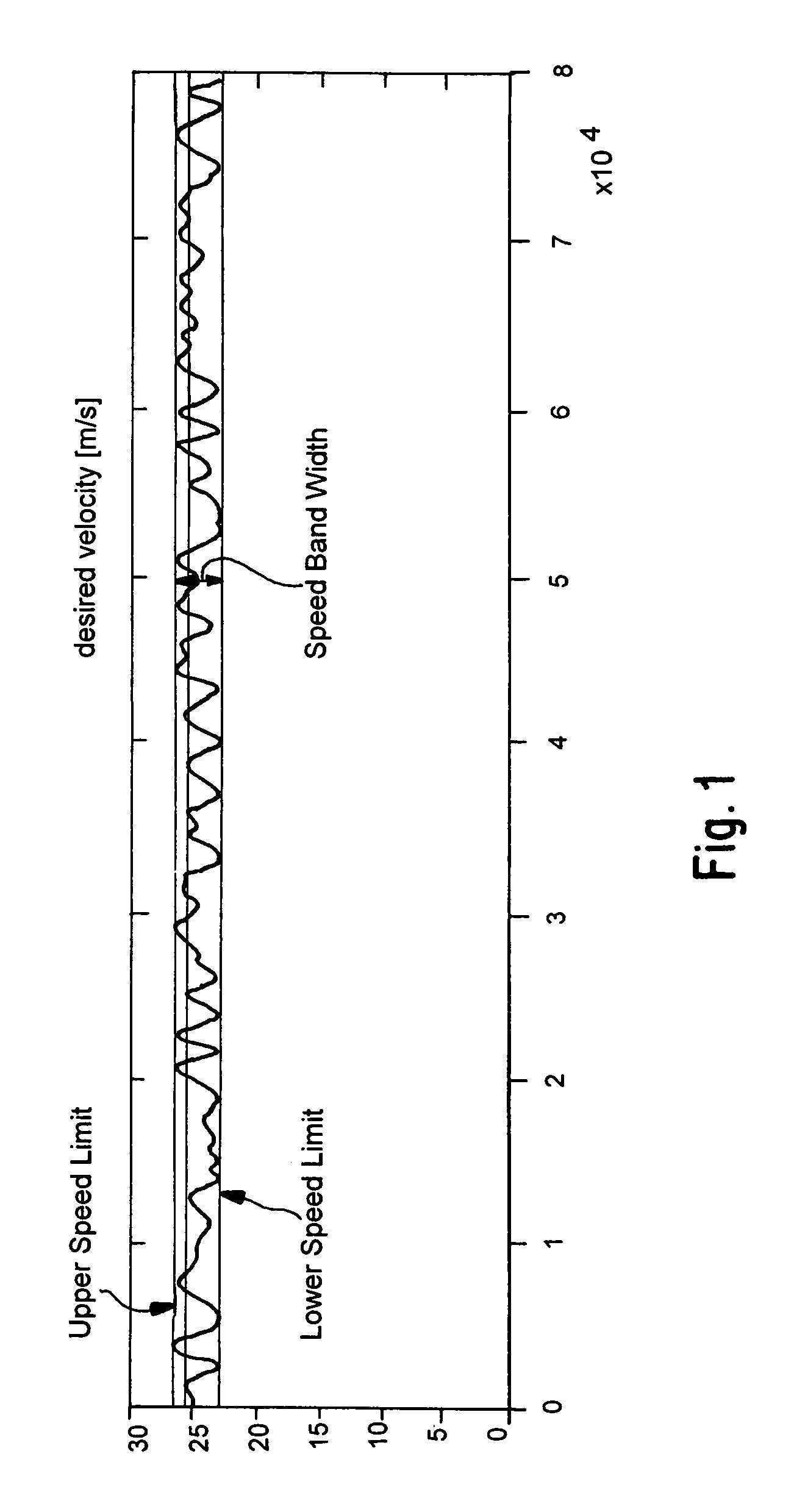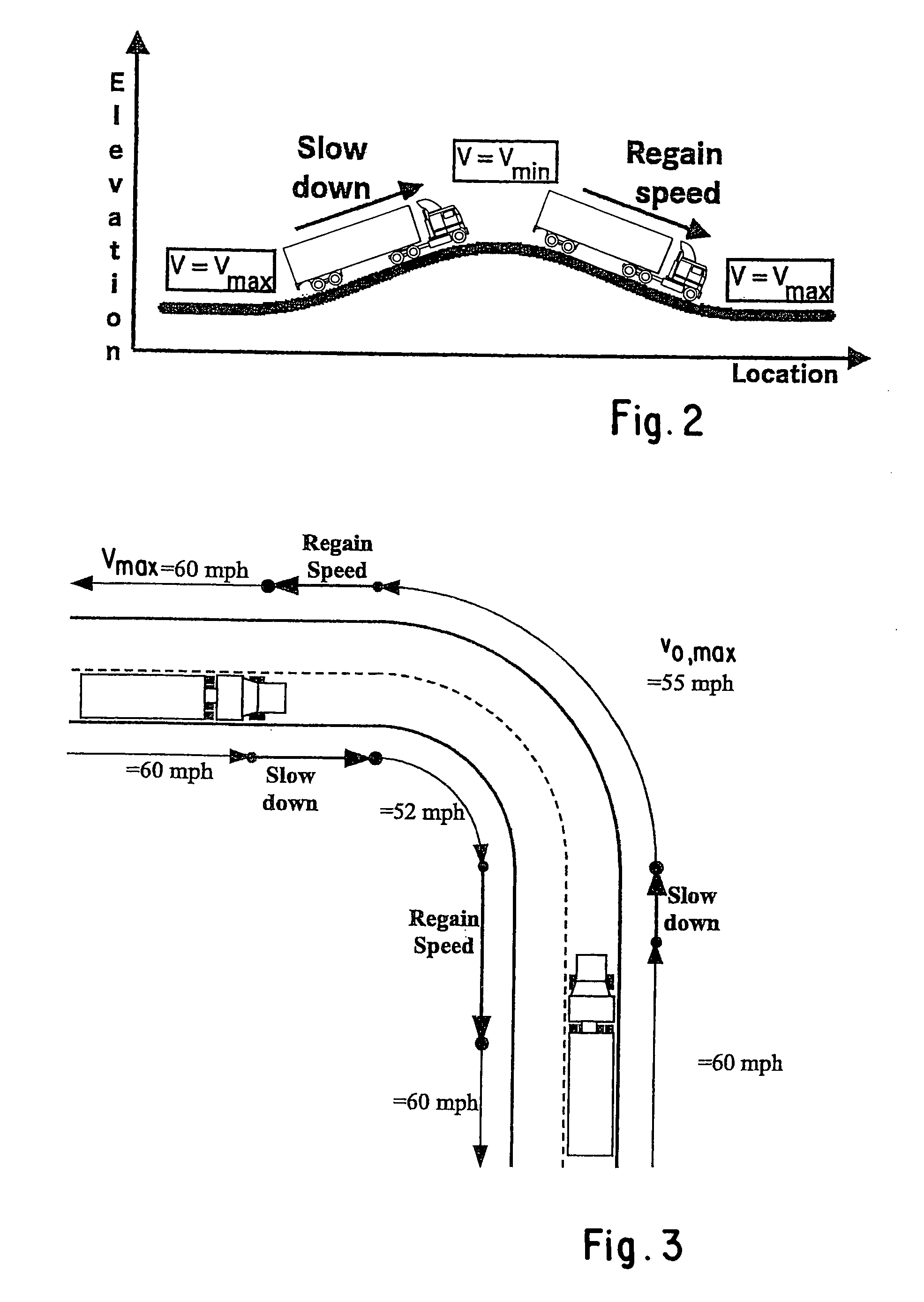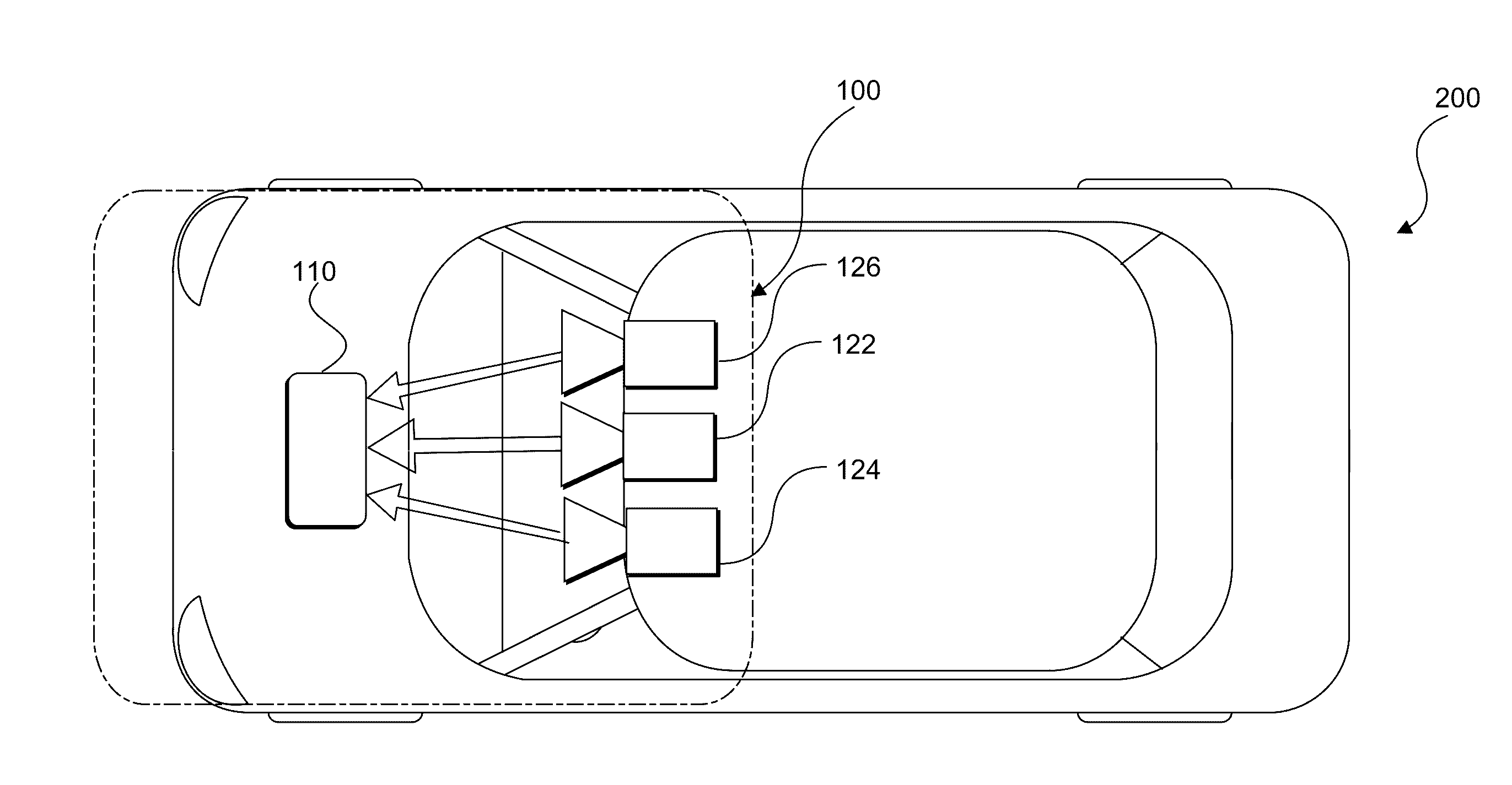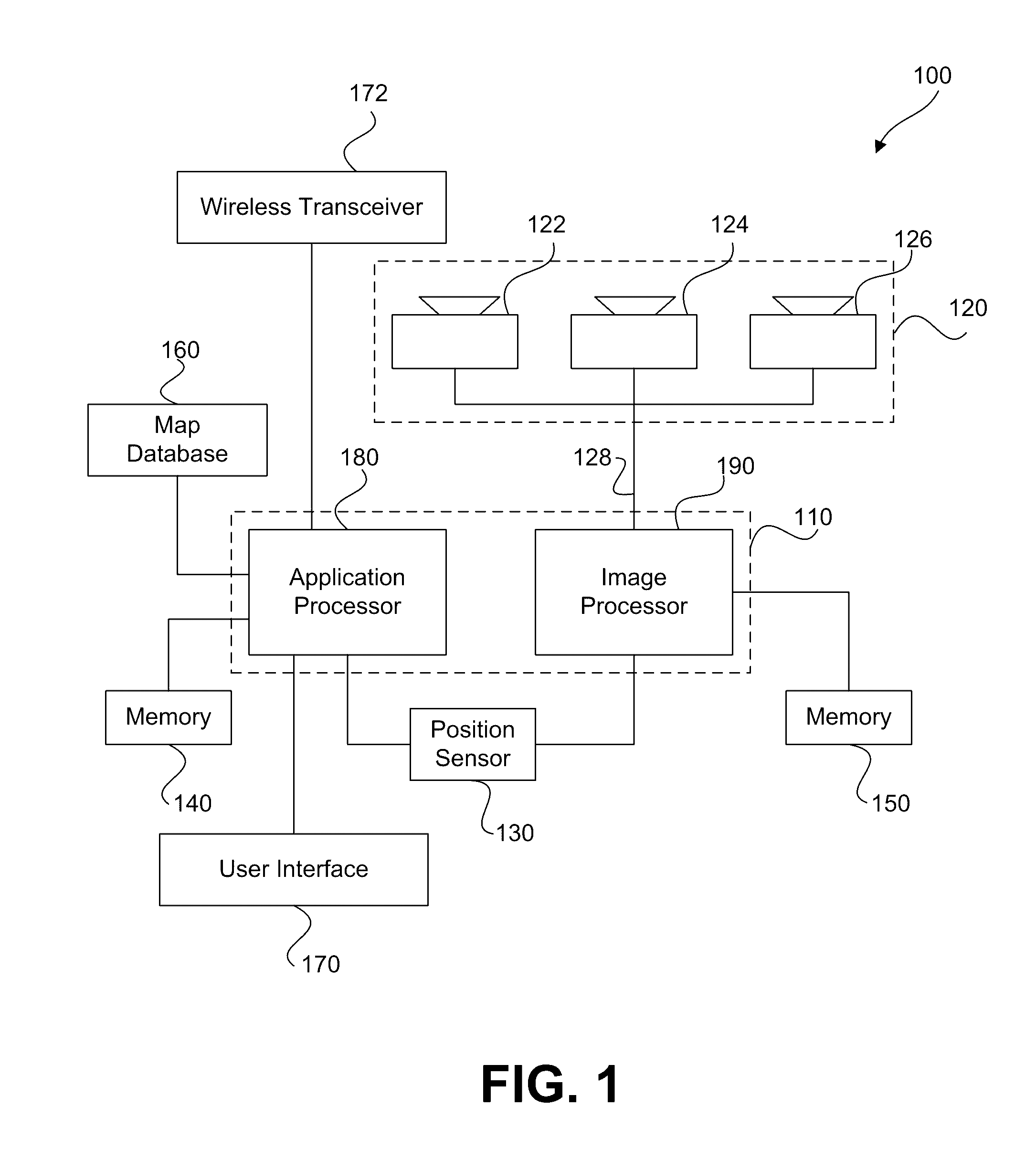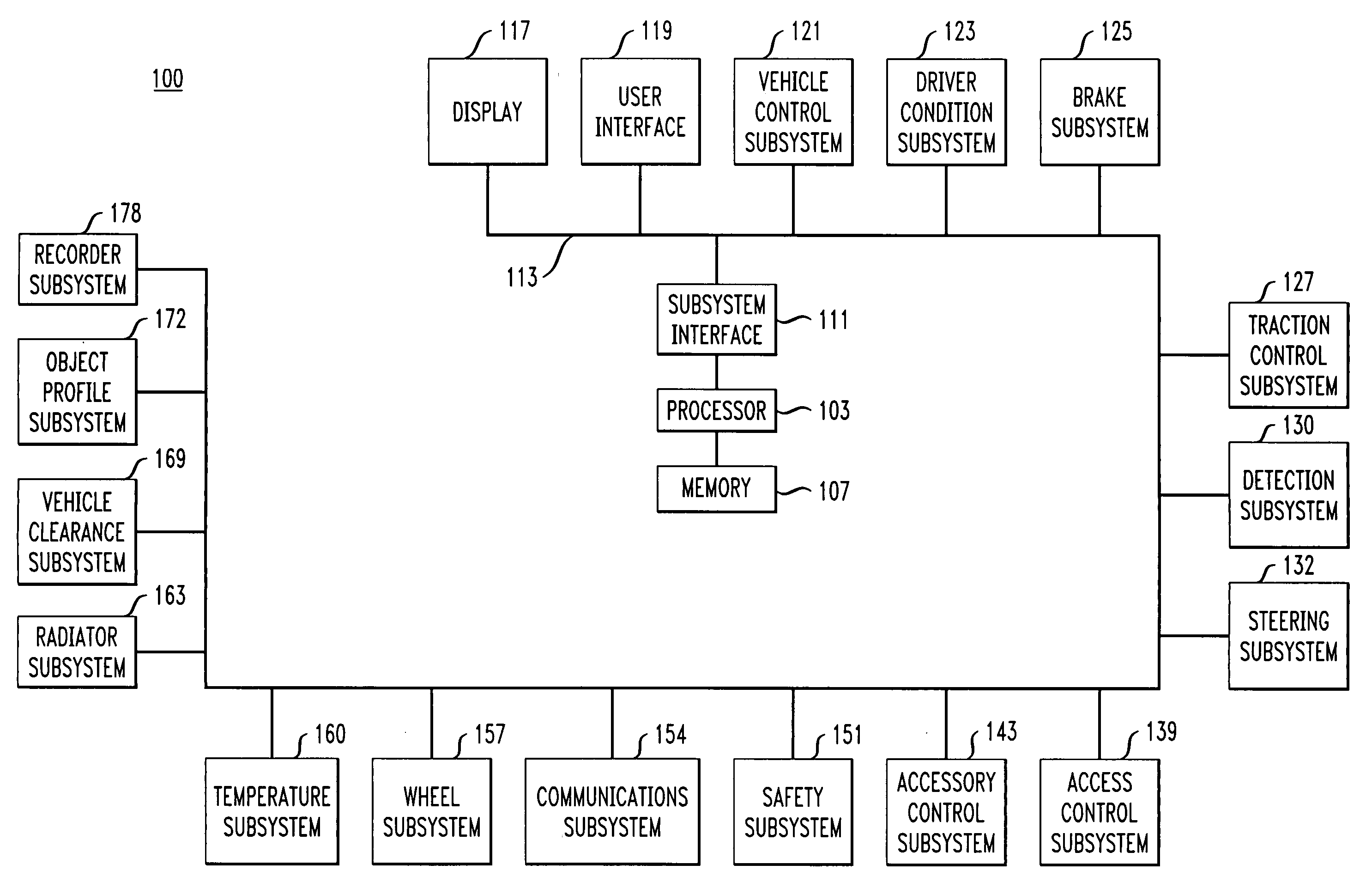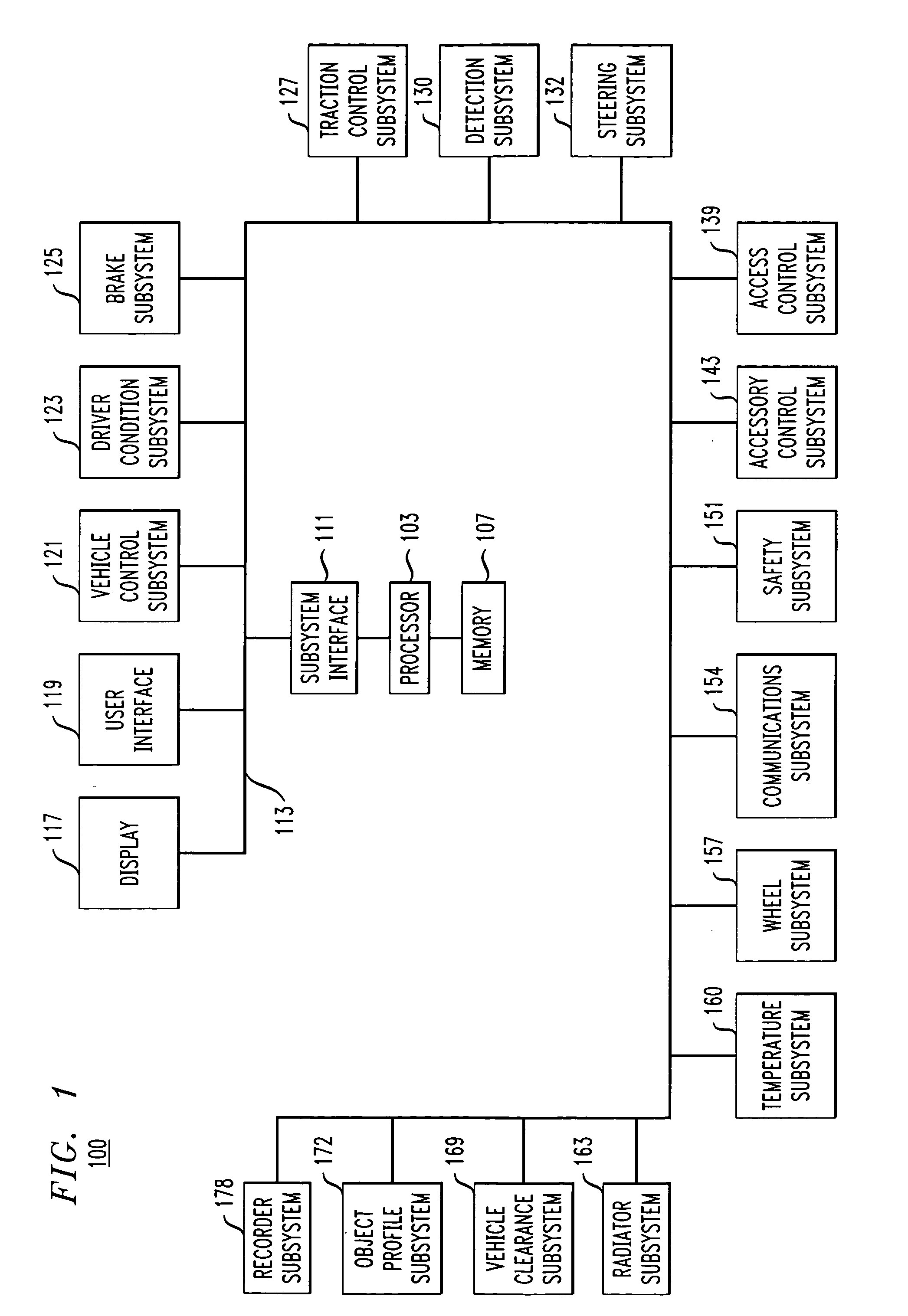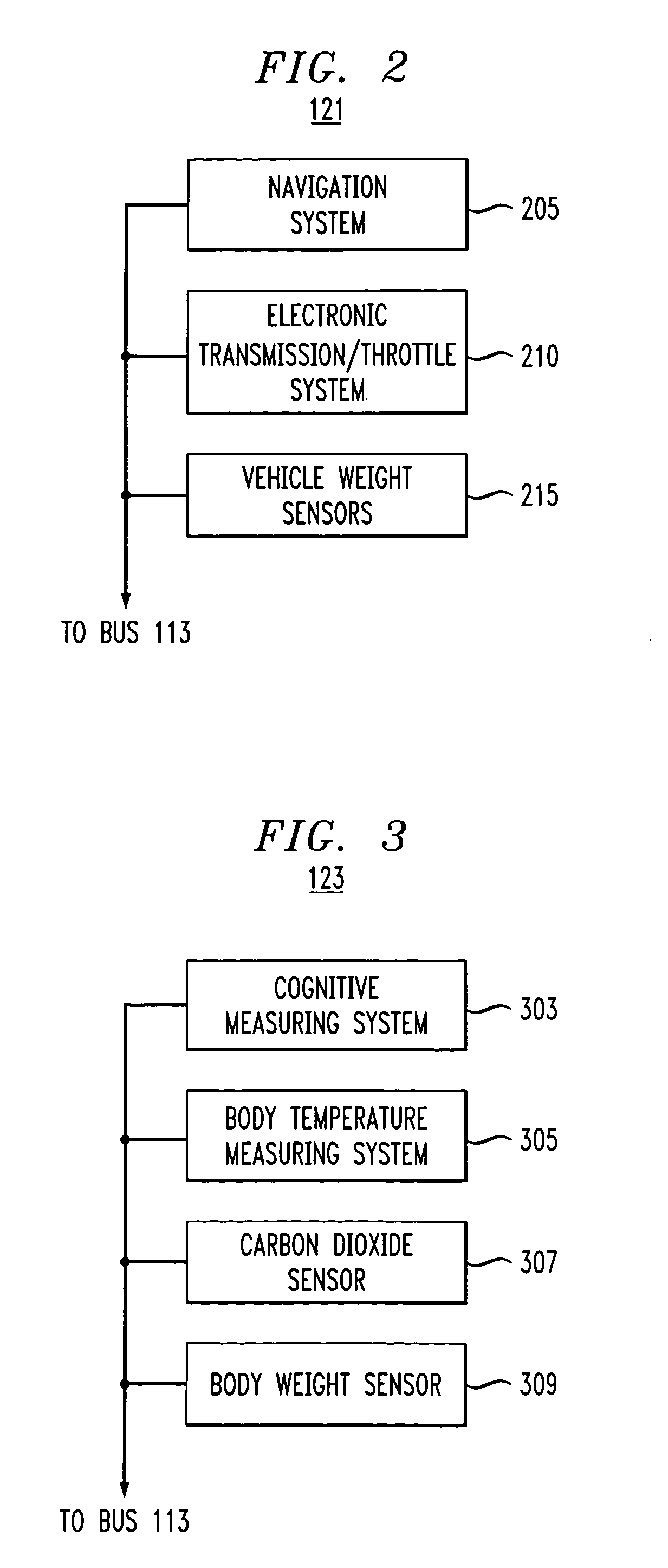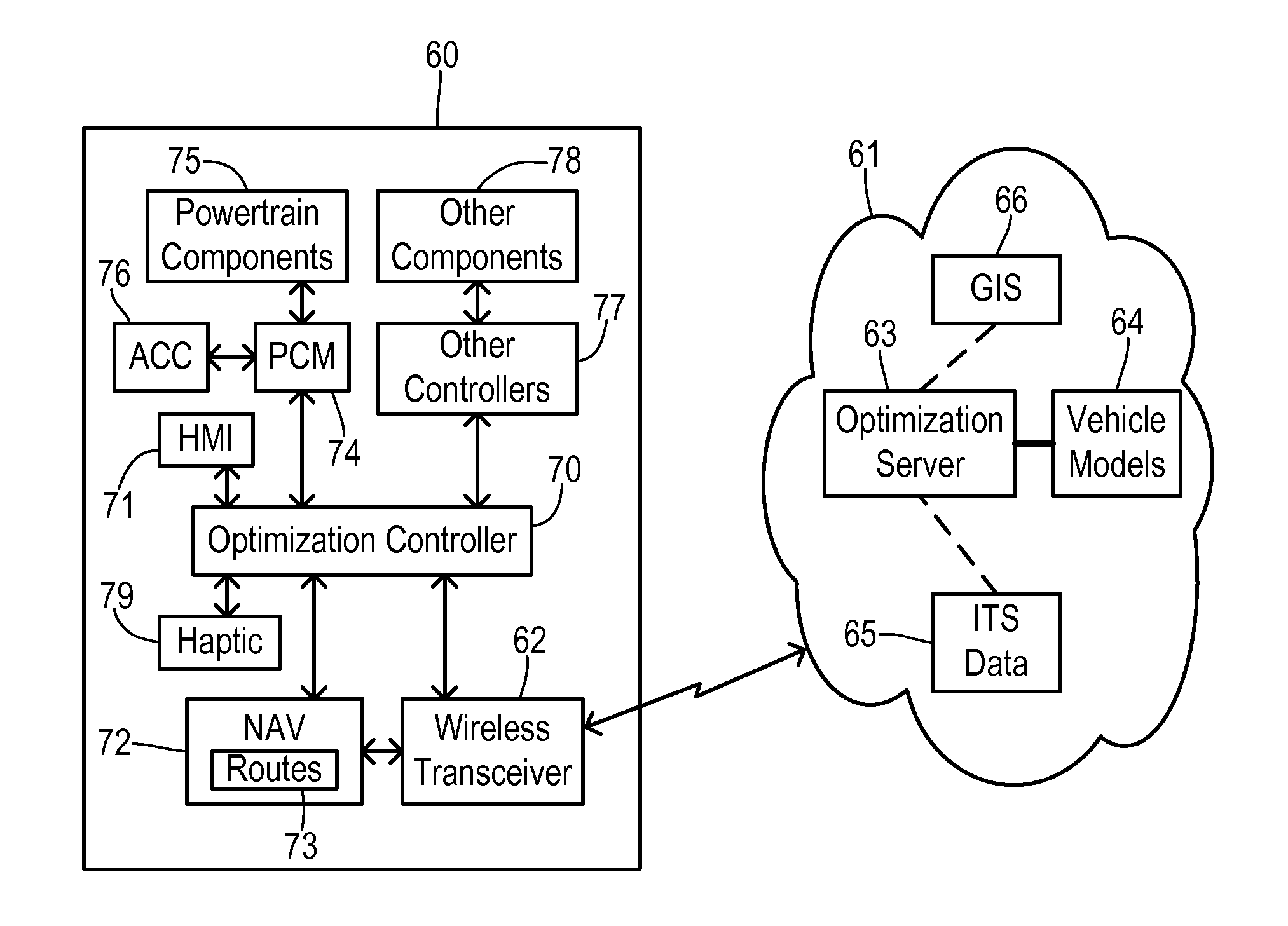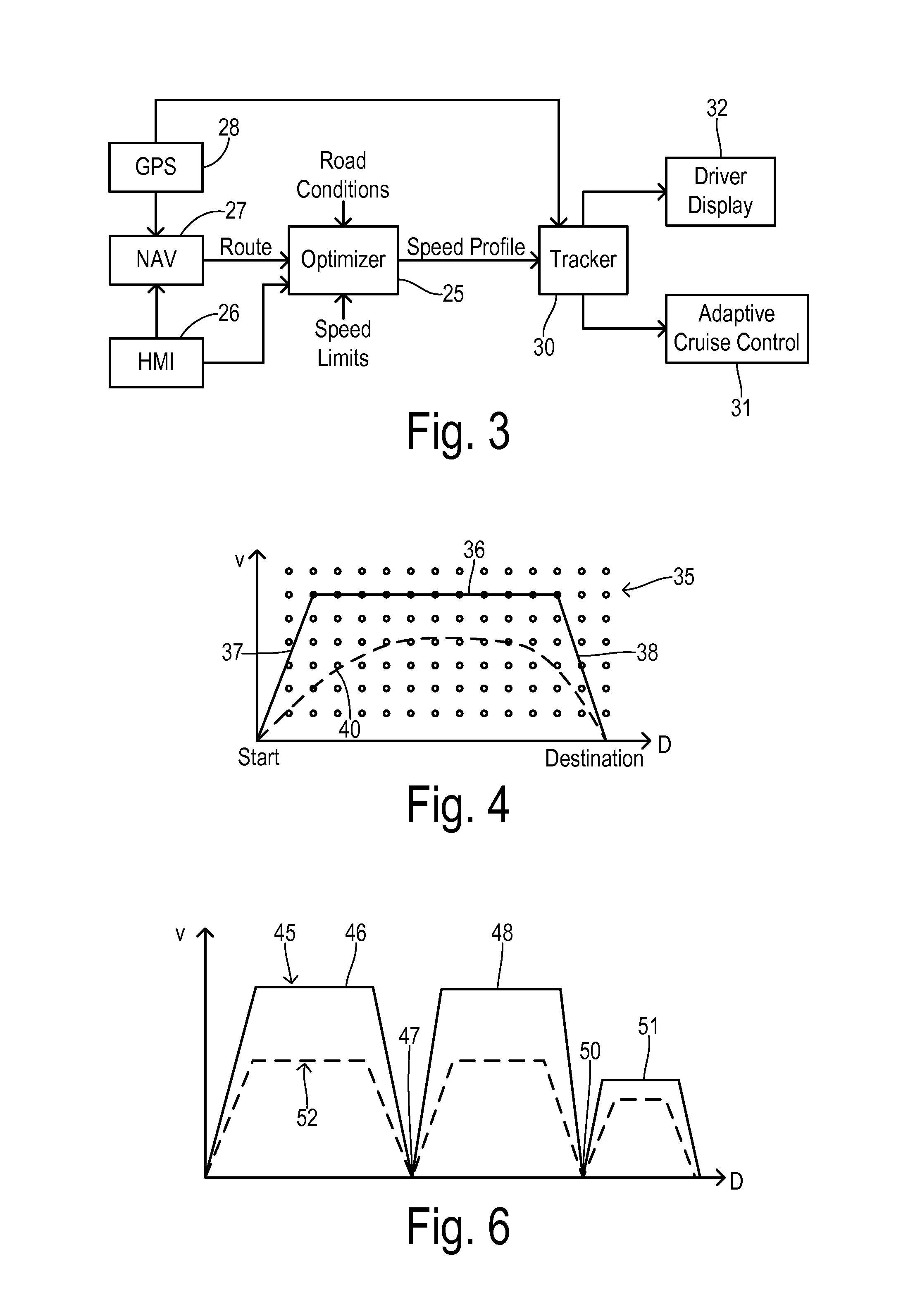Patents
Literature
Hiro is an intelligent assistant for R&D personnel, combined with Patent DNA, to facilitate innovative research.
2928results about "Vehicle fittings" patented technology
Efficacy Topic
Property
Owner
Technical Advancement
Application Domain
Technology Topic
Technology Field Word
Patent Country/Region
Patent Type
Patent Status
Application Year
Inventor
Electrically controlled automated devices to operate, slow, guide, stop and secure, equipment and machinery for the purpose of controlling their unsafe, unattended, unauthorized, unlawful hazardous and/or legal use, with remote control and accountability worldwide
InactiveUS20010056544A1The degree of freedom becomes largerElectrical controlVehicle fittingsRobotic systemsRobotics
This application describes completely in many unique ways and detail all the devices to reduce a vehicle's speed and / or reduce a machines RPM's and / or stop any piece of equipment's as well as guide it if mobile through automated controls. First to slow it down, and guide it and / or control it if necessary (i.e., other pieces of equipment). Secondly it discusses how to stop any piece of equipment completely. And thirdly, the invention secures it in a safe stationary position either entirely or any number of specific moving parts. Many of these systems are initially here described to slow, reduce speed, steer, stop and / or secure equipment functions. However, they also can be used to increase a piece of equipment's functions. In other words their variations are completely capable to serve any remote or automated controls on a vehicle in the future to provide full robotics systems, e.g., for automated transportation systems, automated manufacturing, etc., either through individually isolated remote control systems and / or interfaced with other off-board systems through communication links, gateway computers, computer networks and the world wide web for inexpensive long distance monitoring and remote control. The invention focuses on the automobile industry but as has always been maintained throughout all these applications these devices and systems are designed to control every piece of equipment. The invention includes various accountable protocols and commercial developments to control speed, brake and steering for an automobile shut down to be performed through automation to a safe controlled secured deactivated state to be considered as a basis for a standard in aggressive vehicle remote control and / or to control and guide a vehicle and / or piece of equipment through many different automated systems.
Owner:KLINE & WALKER
Method for recognizing a change in lane of a vehicle
InactiveUS6889161B2Accurate detectionReduce weightVehicle fittingsDigital data processing detailsImage resolutionAngular velocity
A method of detecting a lane change of a subject vehicle (20), having a locating device (10) which uses angular resolution for locating vehicles (VEH1, VEH2, VEH3) traveling in front, and a device (44) for determining the yaw rate (ω0) of the subject vehicle. The angular velocity (ωi) of at least one vehicle traveling in front relative to the subject vehicle (20) is measured using the locating device (10), and a lane change signal (LC) indicating the lane change is formed by comparing the measured angular velocity (ωi) to the yaw rate (ω0) of the subject vehicle.
Owner:ROBERT BOSCH GMBH
Collision avoidance with active steering and braking
A method for collision avoidance using automated braking and steering comprising: determining an actual distance to an obstacle in a path of a vehicle; determining a relative velocity between the obstacle and the vehicle; determining a first distance sufficient to avoid collision by braking only; determining a second distance sufficient to avoid collision by combined braking and steering around the obstacle. The method also includes: applying braking if at least one of, the first distance exceeds the actual distance and the first distance is within a selected threshold of the actual distance. If the actual distance exceeds the second distance and a lane change is permitted, steering control to affect a lane change is applied.
Owner:BWI +1
Method and arrangement for controlling vehicular subsystems based on interpreted driver activity
Method and arrangement for controlling a subsystem of a vehicle dependent upon a sensed level of driver inattentiveness to vehicle driving tasks. A variable characteristic is measured, on a substantially real-time basis, which correlates to the driver's inattentiveness. The level of inattentiveness is assessed based at least in part on the measurement. The performance of a subsystem of the vehicle, such as cruise control or lane keeping support, is tailored, based thereupon, to assure that behavior of the vehicle appropriately matches the driver's present level of inattentiveness. The subsystem's operation is controlled in an effort to avoid or prevent the establishment of driving conditions that become inherently more dangerous as the driver's level of inattentiveness increases.
Owner:VOLVO TECH
System and method for monitoring and updating speed-by-street data
ActiveUS20080252487A1Accurate trackingPrevent speedingAnalogue computers for vehiclesArrangements for variable traffic instructionsData systemIdentification error
System and method for identifying speeding violations, comprising determining a current speed and a current location of a vehicle, determining a posted speed limit for the current location from a speed-by-street database, comparing the current speed of the vehicle to the posted speed limit, and evaluating whether the current speed exceeds the posted speed limit. Errors are identified in the speed-by-street database by storing a plurality of speeding violation records, wherein the speeding violation records each include a speeding event location; analyzing the speeding violation records to identify one or more speeding event locations having multiple speeding violations; comparing a posted speed limit at the one or more speeding event locations having multiple speeding violations to corresponding speed limit data in the speed-by-street database; and identifying one or more speed limit entries in the speed-by-street database that do not match the posted speed limit.
Owner:IWI
Method and arrangement for controlling vehicular subsystems based on interpreted driver activity
InactiveUS7639148B2Vehicle fittingsDigital data processing detailsDriver/operatorVariable Characteristic
Owner:VOLVO TECH
Personalized Driving of Autonomously Driven Vehicles
ActiveUS20160026182A1Autonomous decision making processVehicle fittingsOperating instructionPersonalization
Owner:HERE GLOBAL BV
Detecting sensor degradation by actively controlling an autonomous vehicle
ActiveUS9274525B1Characteristic changeInstruments for road network navigationVehicle fittingsChannel state informationEngineering
Owner:WAYMO LLC
Vehicle speed monitoring system
A method for monitoring vehicle speed is provided. The method includes receiving a current speed of a vehicle and a current speed limit associated with a current location of the vehicle. A current speed range is calculated by comparing the current speed of the vehicle to the current speed limit. Operator alert preferences including a caution range and a warning range are accessed. An alert responsive to the current speed range and to the operator alert preferences is communicated to the operator of the vehicle. The alert includes one or more caution attributes when the current speed range of the vehicle is within the caution range. The alert includes one or more warning attributes when the current speed range of the vehicle is within the warning range. The alert includes one or more at speed attributes when the current speed range of the vehicle is not within the caution range or the warning range.
Owner:GM GLOBAL TECH OPERATIONS LLC
Vehicle interaction communication system
InactiveUS7382274B1Arrangements for variable traffic instructionsVehicle fittingsDriver/operatorTransceiver
The information available to a driver of a vehicle is greatly expanded using wireless communications (e.g., using Bluetooth wireless communication devices). In one embodiment, information regarding an adjacent vehicle such as a brake light, a turn light, speed, distance, direction, etc., is transmitted from one vehicle to a nearby or adjacent other vehicle. The received information is used in any appropriate manner, such as causing the receiving vehicle to change vehicle speed or brake, to turn to avoid a collision, etc. In a second embodiment, roadside wireless transceivers collect information regarding passing vehicles, and central database is compiled relating to a traffic conditions. The traffic condition information can be passed back to the passing vehicles for appropriate use, e.g., causing the driver to slow down, or even causing a navigation device in the receiving vehicle to manually prompt for or automatically recalculate a best route to an intended destination. In yet another embodiment, broadcast transmitters can be established at signs and other significant locations transmitting information to passing vehicles. The broadcast information may be as simple as indicating the existence of the sign, or depending upon the range of the particular wireless transmitter, the existence of a particular sign, bump in road, curve, etc., can be forewarned far in advance of when the driver will actually see the relevant object. Alternatively, the broadcast information may be quite detailed, e.g., containing a detailed itemization and directions to a large number of gas stations, restaurants, etc., reachable from a particular exit from a highway.
Owner:CARRUM TECH LLC
Moving subject recognizing system for automotive vehicle
InactiveUS6035053AReduce probabilityEasy to identifyControlling traffic signalsTelevision system detailsEngineeringPedestrian
A moving subject recognizing system for recognizing a subject, such as a pedestrian, moving toward a forward path of a vehicle to avoid a collision against the subject scans a field ahead the vehicle to detect a transverse velocity of a subject moving in a transverse direction and a longitudinal distance of the subject in a direction of the traveling path which are compared with a first and a second threshold value, respectively, and recognize that the subject is in danger of entering the traveling path and hit by the vehicle when the transverse velocity is greater than the first threshold value and the variation of the longitudinal distance is smaller than the second threshold value.
Owner:MAZDA MOTOR CORP
Surgical Robotic Systems with Manual and Haptic and/or Active Control Modes
ActiveUS20130006267A1Assisted movementProgramme-controlled manipulatorVehicle fittingsRobotic systemsEngineering
A surgical robotic system is disclosed that provides a combination of a programmed control, such as active control or passive control, when a high degree of accuracy is required and manual control when a high degree of accuracy is not required, such as during the removal of osteophytes, irregular bone growth and / or soft tissue. Manual resection may be completed by switching from the programmed control mode to the manual control mode and allowing the surgeon free control of the cutting tool. The manual resection may be carried out using some navigational features of the robotic system such as allowing the surgeon to visualize the position of the cutting tool thereby allowing accurate resection of osteophytes, irregular bone and tissue while having the unrestricted freedom to move the cutting tool. The programmed control mode may be reserved for procedures that require a high degree of accuracy, for example, the reaming of a bone and placement of an implant onto the bone.
Owner:MAKO SURGICAL CORP
Vehicle warning system
ActiveUS20050264404A1Easy to configureEasy to updateVehicle fittingsArrangements for variable traffic instructionsPersonalizationCommunication interface
A vehicle warning system is responsive to vehicle speed and position as determined by GPS or other location based system information to alert a vehicle operator of potentially unsafe conditions when either exceeding the speed limit on a given road segment or when approaching coordinates of a designated location alert point. The system comprises a portable device, a simple device personalization process using a single physical data communications interface to a local computing device connected to the Internet, and a remote server with a segmented database that provides access to common data services, positional data updates, and device personalization functionality.
Owner:PERSEN TECH
Vehicle control system
ActiveUS20060015231A1Reduce vehicle weightSimple designVehicle fittingsDigital data processing detailsControl systemActuator
A vehicle control system which can ensure high reliability, real-time processing, and expandability with a simplified ECU configuration and a low cost by backing up an error through coordination in the entire system without increasing a degree of redundancy of individual controllers beyond the least necessary level. The vehicle control system comprises a sensor controller for taking in sensor signals indicating a status variable of a vehicle and an operation amount applied from a driver, a command controller for generating a control target value based on the sensor signals taken in by the sensor controller, and an actuator controller for receiving the control target value from the command controller and operating an actuator to control the vehicle, those three controller being interconnected via a network. The actuator controller includes a control target value generating unit for generating a control target value based on the sensor signals taken in by the sensor controller and received by the actuator controller via the network when the control target value generated by the command controller is abnormal, and controls the actuator in accordance with the control target value generated by the control target value generating unit.
Owner:HITACHI ASTEMO LTD
Method and system for predicting movement behavior of a target traffic object
ActiveUS20130054106A1Easy to handleVehicle fittingsDigital data processing detailsContext basedData mining
A method for computationally predicting future movement behaviors of at least one target object can have the steps ofproducing sensor data by at least one sensor physically sensing the environment of a host vehicle, andcomputing a plurality of movement behavior alternatives of a target object sensed by the sensor(s).The context based prediction step uses a set of classifiers, each classifier estimating a probability that said sensed target object will execute a movement behavior at a time. The method can also include validating the movement behavior alternatives by a physical prediction comparing measured points with trajectories of situation models and determining at least one trajectory indicating at least one possible behavior of the traffic participant, estimating at least one future position of the traffic participant based on the at least one trajectory, andoutputting a signal representing the estimate future position.
Owner:HONDA RES INST EUROPE
Method and system for providing warnings concerning an imminent vehicular collision
Method for transmitting a warning signal to a driver of a driven vehicle regarding an impending collision with a moving and / or stationary object in the vicinity of the driven vehicle. The method comprises the following steps of providing the driven vehicle with means for obtaining updated data regarding, position, velocity vector and predicted moving path of the objects; selecting a series of one or more time horizons having decreasing or increasing duration; for the longest of the selected time horizons: generating a linear velocity object (LVO) and / or non-linear velocity object (NLVO) of each of the objects; selecting a sampling time interval Δt, during which an LVO and / or NLVO is generated; determining a range of feasible velocity vector changes for the driven vehicle that are attainable within a performance time interval ΔT; repeatedly providing the driver, after each Δt, with information regarding feasible velocity vector changes for the performance time interval; sensing, estimating or assuming dynamic changes parameters representing the movement of the driven vehicle within the performance time interval, and whenever required, generating a warning signal with an escalating severity level that reflects the relative imminence of collision with the objects and that corresponds to the longest time horizon; repeating the steps above, while each time generating an updated LVO and / or NLVO for a subsequent sampling time interval, until reaching another selected time horizon which is shorter than a previously selected time horizon and another selected time horizon, until collision is unavoidable.
Owner:SHILLER ZVI
Driver adaptive collision warning system
The present invention involves methods and systems for issuing a collision warning to a driver at timing based on the driver's attitude level. The methods involve the steps of determining the driver attitude level based on the driver's actions in a plurality of driving conditions, determining timing for issuing warning based on the driver attitude level, and issuing warning based on the determined timing. The systems include a first device for collecting data associated with driver attitude, and a second device connected to the first device for determining a driver attitude level. The second device includes a processor for processing the data by applying pre-determined algorithm to determine the driver attitude level. The systems may further include a third device connected to the second device for determining timing for issuing warning corresponding to the driver attitude level, and issuing a warning according to the determined timing. Alternatively or additionally, the third device may include a software for enabling a determination of the rate of change in terms of acceleration and deceleration, and a control for affecting the rate of change. Further, the third device may include a software for enabling a determination of a safety distance and a distance control.
Owner:SAMSUNG ELECTRONICS CO LTD
Vehicle surroundings monitoring apparatus and traveling control system incorporating the apparatus
ActiveUS7742864B2Smoothly and securely and quickly detectingVehicle fittingsDigital data processing detailsSteering wheelStereo camera
A vehicle surroundings monitoring apparatus inputs signals indicative of images from a stereoscopic camera, a vehicle speed, a steering wheel angle and a yaw rate and estimates a traveling path of an own vehicle according to vehicle forward information and traveling conditions of the own vehicle. The apparatus establishes a traveling region A according to this traveling path and further establishes a traveling region B based on at least either of the traveling region A and road information. It is judged whether a detected solid object is a preceding vehicle or a tentative preceding vehicle according to the state of existence of the object in the traveling regions A, B and the preceding vehicle is outputted to a traveling control unit.
Owner:SUBARU CORP
Personalized driving of autonomously driven vehicles
ActiveUS9766625B2Autonomous decision making processVehicle fittingsPersonalizationOperating instruction
Owner:HERE GLOBAL BV
Vehicle, mobile terminal and method for controlling the same
ActiveUS20160284217A1Convenient parkingAccurate locationVehicle fittingsDashboard fitting arrangementsComputer science
Owner:LG ELECTRONICS INC
Model predictive control apparatus
InactiveUS7418372B2Quick responseAnalogue computers for vehiclesVehicle fittingsModel predictive controlEngineering
A model predictive control apparatus includes an initial solution generation section, an abnormality handling section, and an objective function adjustment section. The abnormality handling section performs initial solution generation when it is determined that performed optimization is abnormal. The initial solution generation section generates an initial optimal value of a future time series control input in accordance with an initial objective function, without reference to a candidate value of the time series control input. The objective function adjustment section adjusts the current objective function so that the current objective function varies stepwise with time toward the normal objective function when it is determined that the current objective function is different from the normal objective function.
Owner:NISSAN MOTOR CO LTD
Collision avoidance with active steering and braking
A method for collision avoidance using automated braking and steering comprising: determining an actual distance to an obstacle in a path of a vehicle; determining a relative velocity between the obstacle and the vehicle; determining a first distance sufficient to avoid collision by braking only; determining a second distance sufficient to avoid collision by combined braking and steering around the obstacle. The method also includes: applying braking if at least one of, the first distance exceeds the actual distance and the first distance is within a selected threshold of the actual distance. If the actual distance exceeds the second distance and a lane change is permitted, steering control to affect a lane change is applied.
Owner:BWI CO LTD SA +1
Vehicle surroundings monitoring apparatus and traveling control system incorporating the apparatus
ActiveUS6961661B2Stably estimatingImprove accuracyVehicle fittingsDigital data processing detailsSteering wheelControl system
A vehicle surroundings monitoring apparatus inputs images taken by a stereoscopic camera, vehicle speeds, steering wheel rotation angles, yaw rates and ON-OFF signals of a turn signal switch. An own travailing path C is calculated from an own traveling path A obtained from lane markers and side walls and an own traveling path B obtained from yaw rates of the own vehicle. Further, a new own traveling path E is calculated from the own traveling path C and a trace of a preceding vehicle, in which case where there is no possibility of a lane change of the preceding vehicle and the turn signal switch is turned off and the absolute value of the steering wheel rotation angle is smaller than a specified value and a present own traveling path is calculated from the own travailing path E and a previous own traveling path. In other cases, the present own traveling path is calculating from the travailing path C and the previous own traveling path.
Owner:SUBARU CORP
Vehicle surroundings monitoring apparatus and traveling control system incorporating the apparatus
InactiveUS7030775B2Improve accuracyEfficient use ofVehicle fittingsDigital data processing detailsObject basedControl system
A vehicle surroundings monitoring apparatus comprises image solid object detecting means for detecting image solid objects based on image information outputted from a CCD camera, millimeter wave solid object detecting means for detecting millimeter wave solid objects based on signals outputted from a millimeter wave radar, fusion solid object establishing means for establishing fusion solid objects composed of single image solid objects, single millimeter wave solid objects and a combination of the image solid objects and the millimeter wave solid objects by fusing the image solid objects and the millimeter wave solid objects, first reliability judging means for judging a degree of reliability of the fusion solid objects based on a detecting situation of the respective fusion solid objects by the image solid object detecting means, second reliability judging means for judging a degree of reliability of the fusion solid objects based on a detecting situation of the respective fusion solid objects by the millimeter wave solid object detecting means and preceding vehicle selecting means for selecting a preceding vehicle from the fusion solid objects when it is judged that the fusion solid objects have a specified level of reliability according to either of the first reliability judging means and the second reliability judging means.
Owner:FUJI JUKOGYO KK
Speed limiting for a balancing transporter
InactiveUS6874591B2Limiting the speed of a transporterMaintain balanceVehicle fittingsUnicyclesGround contactPower flow
Owner:DEKA PROD LLP
Method for controlling the speed of a motor vehicle in accordance with risk and system for carrying out the method
InactiveUS20060052929A1Increase speedAnalogue computers for vehiclesInstruments for road network navigationMobile vehicleDriver/operator
A method controls the speed of a motor vehicle in accordance with risk. Each risk element of a road segment is evaluated for the specific risk potential thereof by taking into consideration the perils and the actual speed of the driver of the motor vehicle. An integral risk potential is calculated for the road segment on the basis of the sum of the specific risk potentials of all detected risk elements. A system is provided to carry out the method of the invention.
Owner:BASTIAN DIETER +1
Predictive speed control for a motor vehicle
InactiveUS6990401B2Minimizes vehicle operating costReduce operating costsVehicle fittingsInternal combustion piston enginesTerrainMobile vehicle
A predictive cruise control system utilizes information about the current vehicle position, and upcoming terrain to save fuel and increase driving comfort. A vehicle operating cost function is defined, based on a plurality of environmental parameters, vehicle parameters, vehicle operating parameters and route parameters. As the vehicle travels over a particular route for which route parameters, such as road gradient and curvature, are stored in a road map, sensors aboard the vehicle detect environmental and vehicle operating parameters, including at least vehicle speed and its position relative to the road map. As the vehicle proceeds, an onboard computer iteratively calculates and stores in a memory vehicle control parameters that optimize the vehicle operating cost function for a predetermined prediction horizon along the route ahead of the vehicle. The optimal vehicle control parameters for the Prediction Horizon are then stored, updated and used to control the vehicle.
Owner:DAIMLER AG
Systems and methods for causing a vehicle response based on traffic light detection
ActiveUS20160318490A1Autonomous decision making processVehicle fittingsImage captureReal-time computing
A traffic light detection system for a vehicle is provided. The system may include at least one processing device programmed to receive, from at least one image capture device, a plurality of images representative of an area forward of the vehicle, the area including a traffic light fixture having at least one traffic light. The at least one processing device may also be programmed to analyze at least one of the plurality of images to determine a status of the at least one traffic light, and determine an estimated amount of time until the vehicle will reach an intersection associated with the traffic light fixture. The at least one processing device may further be programmed to cause a system response based on the status of at least one traffic light and the estimated amount of time until the vehicle will reach the intersection.
Owner:MOBILEYE VISION TECH LTD
Technique for assisting a vehicle user to make a turn
InactiveUS6982635B2Vehicle conditionEffective controlVehicle fittingsDigital data processing detailsControl systemTraffic conditions
A control system is employed in a vehicle to assist a user to operate the vehicle effectively and safely. The system provides driving assistance to the user by taking into account the user's physical condition, the vehicle condition and the surrounding conditions. The surrounding conditions include, e.g., road, weather and traffic conditions, external to the vehicle. The vehicle condition concerns the conditions of the brakes, steering, tires, radiator, etc. of the vehicle. Signs of fatigue, stress and illness of the user are monitored by the control system to assess the user's physical condition.
Owner:AUTO DIRECTOR TECH
Route navigation with optimal speed profile
ActiveUS20140277835A1Reduce energy consumptionImprove carrying capacityInstruments for road network navigationVehicle fittingsEngineeringEnergy expenditure
Energy consumption of a vehicle is optimized while traveling a route assembled of road segments between a first position and a destination. A speed profile generator is located at least partially off of the vehicle and uses an energy consumption model of the vehicle together with road grade data corresponding to the route to calculate an optimal speed profile. The speed profile specifies target speeds for respective locations on the route for traversing the route with an optimized energy consumption. The speed profile generator compares energy consumption for a plurality of feasible speed profile trajectories between a maximum trajectory and a minimum trajectory in order to identify the optimal speed profile. A speed updater is responsive to a current position of the vehicle and the optimal speed profile to initiate the target speed for the current position.
Owner:FORD GLOBAL TECH LLC
Features
- R&D
- Intellectual Property
- Life Sciences
- Materials
- Tech Scout
Why Patsnap Eureka
- Unparalleled Data Quality
- Higher Quality Content
- 60% Fewer Hallucinations
Social media
Patsnap Eureka Blog
Learn More Browse by: Latest US Patents, China's latest patents, Technical Efficacy Thesaurus, Application Domain, Technology Topic, Popular Technical Reports.
© 2025 PatSnap. All rights reserved.Legal|Privacy policy|Modern Slavery Act Transparency Statement|Sitemap|About US| Contact US: help@patsnap.com



